Text
We’ve Moved
Hello, and thank you for visiting Swim Into The Sound.
As of April 2018 we have officially moved onto our own dedicated site through Squarespace. While this blog initially started as a hobby, it quickly ballooned into something with a life of its own. I kept telling myself that the content was more important than how it was displayed, but eventually small things about being locked into Tumblr began to grate on me.
This has been an incredible platform for us, but after three years we felt the need to have more control over the site, its contents, and everything that it’s connected to.
Long story short, you can still find us at www.swimintothesound.com, but if you followed an old link to this site, you can easily find the same article over at the new location.
You can also find us on Twitter, Instagram, or reach out to us via email if you have any questions or concerns. Thank you for your support, thank you for understanding, and thank you for bearing with us as we make this transition.
We’ll see you on the new site.
3 notes
·
View notes
Text
March 2018: Album Review Roundup

This is getting out of hand.
As I do my best to stay up on “the culture,” my monthly lists of notable releases seem to be growing longer and longer. While I’m trying to limit these roundups to fewer than ten albums per post, roughly thirty albums came out this month that grabbed my attention in one way or another. There’s so much new stuff I almost don’t know where to start, yet I must.
Here are some of the best/most notable releases from March of 2018.
Previous Roundups: January, February.
Soccer Mommy - Clean
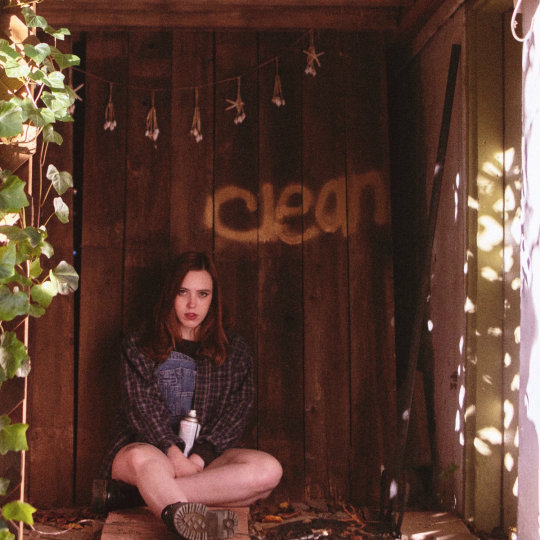
While she made some waves in 2017 with her career-spanning Collection, Soccer Mommy (whose real name is Sophie Allison) has arrived in full-force this year with her debut album Clean. This 2018 release finds Allison moving away from the solo bedroom recording of her previous work and into full-band indie rock territory. With sparkling guitars, a rumbling rhythm section, and of course Sophie’s passionately-delivered vocals, Clean is the raw emotion you’ve been waiting for. Sometimes spiteful and vitriolic (“Your Dog”), other times writhing in insecurity (“Last Girl”), and occasionally wholly-triumphant (“Scorpio Rising”), the tunes off this record have cemented Soccer Mommy as a well-deserved star of the indie circuit, and the voice of a million awkward people fumbling through their own relationships.
Camp Cope - How to Socialize and Make Friends

Fists clenched and voices raised, the outspoken Melbourne trio has returned with the follow-up to their much slept-on 2016 full-length. Striking while the iron’s hot, How to Socialize is an album for right now. Fraught with political commentary and much-needed callouts, this is less of an album and more of an open defiance. The catalyst for change and the soundtrack to a long-overdue rebalance, this record is a blunt and open dialogue giving words to a group that’s needed them most. The music itself is beautifully-goosebump-inducing. Exploding with unrestrained vocal takes, cresting guitar strums, bouncy basslines, and rocksteady drum patterns, Camp Cope is the exact type of band that the music industry needs right now.
Sorority Noise - YNAAYT

YNAAYT is a full-album reimagining of You’re Not As _____ As You Think that casts new light on last year’s landmark emo record. Not content to merely swap electric instruments out for acoustic ones, YNAAYT indeed is best described as a “reimagining.” With loving acoustic arrangements, beautiful orchestral flourishes, and a remixed tracklist, Sorority Noise transformed what could have been a one-off gimmick into a gorgeously-composed piece of art. The songs are reworked, shifted, and changed just enough that it’s almost unrecognizable from the LP upon which it’s based, making for a compelling back-to-back listen. Released alongside a hiatus announcement, this would be a graceful note for the band to go out on (as much as I hate to think about it). This album is concrete proof that there’s beauty, serenity, and eventual recovery in grief.
Jack White - Boarding House Reach

I’d describe myself as a “begrudging Jack White Stan.” For better or worse, White has played the single biggest role in the formation of my musical taste. The foundation for everything I like, and an artist that has loomed large in my library for a majority of my life. In spite of (or perhaps because of) his importance to me, his work post-White Stripes has been hit or miss for me. While I eventually came around to Blunderbuss, Lazaretto came across as the musical equivalent of jerking off while staring into a mirror. Perhaps feeling the need for a pivot himself, White described his 2018 album as "a bizarre one" that sounded like "good gardening music or roofing music or… back-alley stabbing music." The craziest thing is he isn’t wrong.
It seems that in between unearthing old music, sounding like an old man, and being hopelessly conceptual, Mr. White actually had time to cook up a decent record. I’ll admit that (of the two sides of Jack) I’m a bigger fan of his more thrashy garage rock half, so the fact that this album takes that distorted riffage and cranks it up to 11 makes me a very happy stan. There’s still a decent amount of jangly country Nashville sound, but “Rock” (with a capital R) is this record’s primary language. There are moments of unbridled weirdness, which are to be expected (ironically), but at its heart, Boarding House Reach is the best album that I can expect from Jack White in 2018.
Earthless - Black Heaven
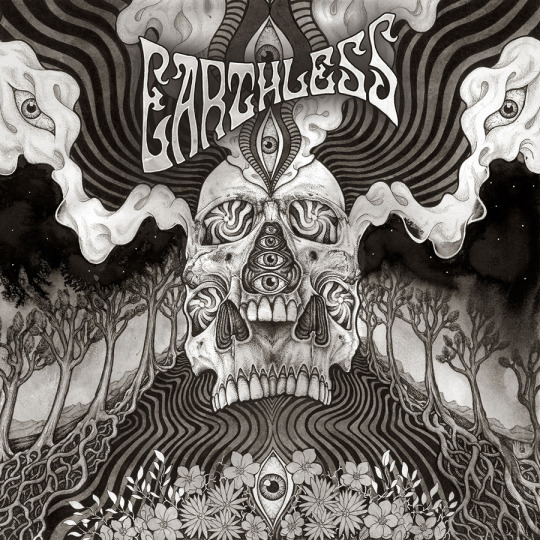
Speculate what you will about where music is “headed,” but there will always be room in my heart for a great rock album. On Black Heaven, the typically-instrumental Earthless gives us a collection of sprawling and hard-charging metal tracks. Their fifth album as a band, Black Heaven is a psychedelic heavy metal odyssey. 39 minutes of forward momentum and chest-inflating riffs that fire on all cylinders up until the final notes. An album for driving through the desert as fast as your car will allow while the sun is at its highest point.
Yo La Tengo - There's A Riot Going On

While Yo La Tengo may not be the biggest band in the world, their influence can be felt all over the indie rock sphere. Over the course of their thirty-plus-year career, they’ve hardly ever made a misstep, and There's A Riot Going On only adds another layer of greatness to their legacy. Half ambient, half traditional Velvet-Underground-Esque slow jams that they’re known for, Riot is best described as a pleasant album. A record you can devote yourself to entirely, or let run in the background, both to equally-enjoyable ends. A calm, relaxing, and chilled out hour of new material that will provide the soundscape for years of creativity to come.
Haley Hendrickx - I Need To Start a Garden
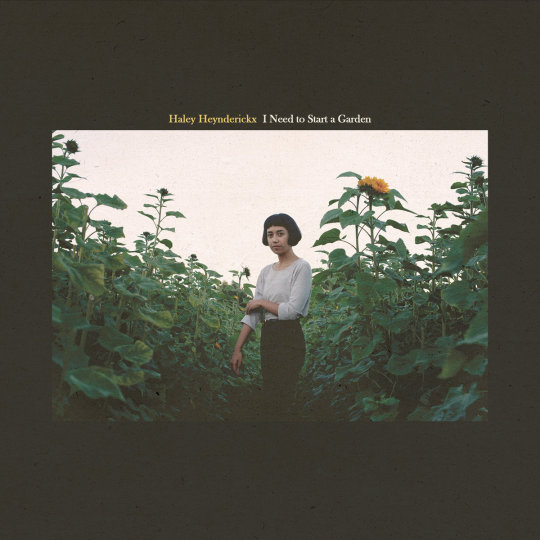
On I Need To Start a Garden we witness as Haley Hendrickx attempts to balance the cultivation of her soul with the well-being of those around her. With deeply-cutting lyricism, haunting, fragile vocals, and wonderfully-arranged instrumentals, Garden is a carefully-crafted record. At its best moments, the album’s minimalism serves Hendrickx’s style well as the songs crest from held-back whispers into full-blown explosions of sound and emotion.
Easily my biggest surprise of the month, and an early frontrunner for album of the year, Haley Hendrickx is a person to watch, with a record to love. For my full review of I Need To Start a Garden, keep your eyes on Hooligan Magazine in the coming weeks.
Quick Hits

Two Dozen albums from the past month. All summarized in one sentence.
Donovan Wolfington - Waves: Released posthumously following the band’s untimely demise, Waves is a textbook shredder of an album. Proof that it’s better to go out on top than not at all.
Disco Inc. - The Boredom Keeps me up at Night: Five forthright and punchy punk rock tracks stretched across 15 electrifying minutes. Equal to or greater than the energy received from a cup of coffee.
Titus Andronicus - A Productive Cough: Eschewing all previous conceptual frameworks and punk-leanings, A Productive Cough finds frontman Patrick Stickles embracing, emulating, and achieving a pitch-perfect version of the singer-songwriter music that he was brought up on.
The Breeders - All Nerve: As if the last two decades never happened, the Deal sisters are back alongside their primo ‘93 line-up. Together they deliver a collection of 11 beautifully-grungy tracks that prove the 90’s aren’t dead yet.
Superorganism - Superorganism: Eight pseudonym-clad bandmembers deep, this synth-laden indie pop group formed, and turned this record around within the space of a calendar year. Bright, vivacious, and charming as all get out, Superorganism have already made a name for themselves with this bubbly debut.
Lucy Dacus - Historian: Slow-moving and heavy-minded singer-songwriter moodiness for a rainy day or a broken heart.
Gulfer - Dog Bless: Tappin’ guitars, screamin’ vox, bombastic drummin’, Gulfer deliver emo revival goodness on their gleaming sophomore album.
Lil Yachty - Lil Boat 2: Coasting off the recognition of his breakthrough mixtape, Lil Yachty offers up 17 sleepy and unfocused tracks that only occasionally meander into genuine entertainment. Overall, it seems like Yachty has lost the plot.
Logic - Bobby Tarintino II: Rick and Morty skits aside, the latest Logic mixtape isn’t as cringy as the internet would have you believe. Packed with dense lyricism and hyper-technical bars, this release cuts out all the fat and gets straight to the rapping.
Young Father - Cocoa Sugar: Electronic, unpredictable, and utterly new, Cocoa Sugar is future music.
Vile Creature - Cast of Static and Smoke: Optimistic queer black metal from the fantastical Canadian duo.
Remo Drive - Pop Music EP: A trio of fresh tracks from the breakthrough pop-punk band. Aptly-titled, this 8-minute release is catchy, bright, and colorful. Essentially the musical equivalent to fructose-laden soda.
Of Montreal - White Is Relic/Irrealis Mood: A groovy, dancy, funkwave inferno of radiant two-sided indie tracks.
Nap Eyes - I’m Bad Now: Indie rock with Lou-Reed-esque vocals that display resolve, even while in the calamitous eye of the hurricane.
Mooseblood- I Don’t Think I Can Do This Anymore: The UK pop-punks offer up a vague and uniform 36-minutes of relationship strife on this blue follow-up to Blush.
Mount Eerie - Now Only: Another long-form meditation on the death of a loved one. Heartwrenching and spell-binding.
The Decemberists - I’ll Be Your Girl: The Portland, Oregon five-piece return with a mixed bag of brightly-colored election reaction tracks.
Preoccupations - New Material: sharp and bombastic post-punk from a future that almost didn’t exist.
Citizen - Live at Studio 4: Live in-studio versions of three of the best cuts off 2017’s As You Please.
Hot Mulligan - Pilot: Chicken soup for the modern emo’s soul.
Blessthefall - Hard Feelings: Neon-lit metalcore with a hyper-clean and poppy approach.
The Sword - Used Future: Equal parts jammy, psychedelic, stoner, and riffy. This is a chill and laid-back album that’s perfect for the outdoorsy metalhead.
Trace Mountains - A Partner to Lean On: Chilled-out Alex G-esque Americana with an electronic slant.
The Voidz - Virtue: An hour of political indie rock from the outspoken and leather-clad Julian Casablancas.
Frankie Cosmos - Vessel: Verbose (professional) bedroom folk from the Princess of Bandcamp.
Czarface x MF DOOM - Czarface Meets Metal Face: Bars. Just. Bars.
Casey Musgraves - Golden Hour: Lovely, lovesick, loveless country music made for sun-drenched valleys and porch-lit beers.
The Weeknd - My Dear Melancholy,: Six smutty, spacy breakup songs from the void of heartbreak.
Plus singles from The Voidz, Gucci Mane, The Wonder Years, Snail Mail, Jack White, DJ Khaled, Royce Da 5’9”, God Is An Astronaut, Parkway Drive, ZHU, Half Waif, Anderson .Paak, Beach House, Dj Khaled, Vince Staples, The Decemberists, A$AP Rocky, Grouper, Dr. Dog, Parquet Courts, Courtney Barnett, Weird Al, Panic! At The Disco, Underoath, Flatbush Zombies, Miguel, Jens Lekman, MØ, Our Last Night, Iceage, Cardi B, Migos, Manchester Orchestra, Alvvays, Lil Pump, CHVRCHES, Rae Sremmurd, Unknown Mortal Orchestra, Hop Along, and N.E.R.D.
0 notes
Text
Field Medic - Songs From the Sunroom Mini Review

There’s an interesting dynamic at play when you discover an album “naturally” on your own. You had no involvement in its creation, no connection to its author, and you probably weren’t even aware of its existence until the second you stumbled across it. In all likelihood, that “discovery” was just a file served up by an algorithm trying to give you something it thinks you might like… yet there’s still a strange sense of pride in uncovering something new and falling in love with it.
Over the past year it feels like I’ve been subsisting almost entirely on new recommendations and old favorites, but just this past month I made a discovery that has gripped me in the most fantastic and unexpected way. While I’ve been enamored with the music itself, the fact that I discovered it on my own just makes the album feel all the more precious and one-of-a-kind. Lately I have been posting a lot of overly-long and/or abjectly-goofy write-ups, so I just wanted to hit you guys with a quick recommend and introduce you to one of my favorite new artists: Field Medic.

Field Medic is the pseudonym of Kevin Patrick Sullivan, a San Franciscan creating a self-described amalgamation of “freak folk, bedroom pop, and post country.” Despite the barrage of genres I just used to describe his music, nearly everything created under the Field Medic moniker is immediately accessible, instantly catchy, and impressively melodic.
Sullivan’s 2017 full-length Songs From the Sunroom was recorded during a “heightened creative period” in which he was writing, creating, and recording music in the titular sunroom of his San Francisco apartment. Bearing a singular lo-fi charm throughout, Sunroom strikes a perfect balance between a handful of disparate genres and packages them all up in one compact 46-minute listen.
The lowercase love ballad “uuu” was the first Field Medic song I heard, its title immediately sticking out amongst a playlist as a post-internet embrace of non-conventional capitalization. The track itself is a laid-back acoustic jam that sounds like it’s coming through a record player from an alternate universe. The next song titled “GYPSY DEAD GIRL” is the album’s emotional centerpiece, a heart-aching pang of vulnerability and hurt wrapped in an immensely-catchy melody. With crests of high-pitched vocal strain, the song culminates in a cathartic cry of its title before ultimately settling away to a single programmed drumbeat.
Whacky song titles aside, there’s lots of genre experimentation here from “NEON FLOWERZ” and its warbly hip-hop beat to the jaunty “do a little dope (live)” which is a just straight-up country song. Other highlights include the trippy “p e g a s u s t h o t z” and the beautifully-stripped-down “OTL,” both of which depict two sides of the same relationship coin from equally-stark perspectives. Finally, the late-album cut “fuck these foolz that are making valencia street unchill” is a verbose and hilariously-spiteful Bob Dylan-esque song of gentrification and displacement in the tech cradle of San Francisco.

Every song off Songs From the Sunroom adds a different flavor to the record, yet at the same time, they all blend together, creating a consistent and charming lo-fi haze. Sullivan manages to strike a wonderful balance between his alt-country poetry and straight-up pop-music levels of earworminess. Sunroom is an intoxicating mix of gut-punching emotional indie and bouncy banjo-plucked alt-country. The lyrics oscillate between deeply-resonating beat poetry and realist slice of life tales, all interspersed with gummy choruses and phrases that lodge themselves in your head.
And speaking of balance, part of my love for this album probably comes from where I’m at in life right now. Stuck between a million choices in my personal and professional life, I feel absolutely paralyzed and frozen that any choice I make could be the wrong one. Sometimes the right thing presents itself to you at the right time, and this album came to me like divine intervention. The exact sort of remorse and reflective nostalgia that I crave in this early phase of the year. I’ve felt emotionally stagnant for months, but this album has managed to spark something inside that moved me on a cosmic level. I’m glad that Songs From the Sunroom is around for me to appreciate it, and I want to formally thank Kevin Sullivan for ushering this creation into the world.
0 notes
Text
February 2018: Album Review Roundup

Swim Into The Sound is back with another Monthly Roundup! I’m honestly not sure how long I’ll be able to stay this “up” on new music, but so far I’ve been having a good time keeping track of new releases and compiling my thoughts.
As great as January was, February was even better, both in terms of quantity and quality, so I’ll waste no time in jumping into it. Here are some of the best/most notable releases from February of 2018.
Cameron Boucher & Field Medic - Split
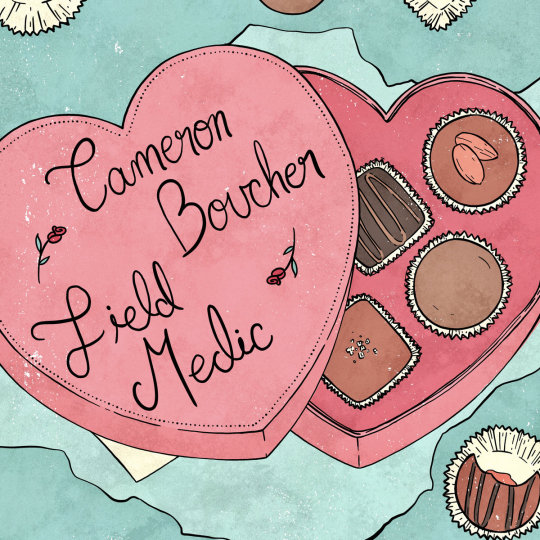
Released on Valentine's Day, this lovely and heartfelt split features two songs from Kevin Sullivan of Field Medic and two from Cameron Boucher of Sorority Noise. With both artists coming off wildly-successful 2017 releases, this split seems to be a low-key acoustic victory lap of sorts from two of emo folk’s current reigning champs. Oh, and all of the album’s proceeds go to Covenant House, so on top of the great tunes, these two dudes are also class acts.
Hovvdy - Cranberry
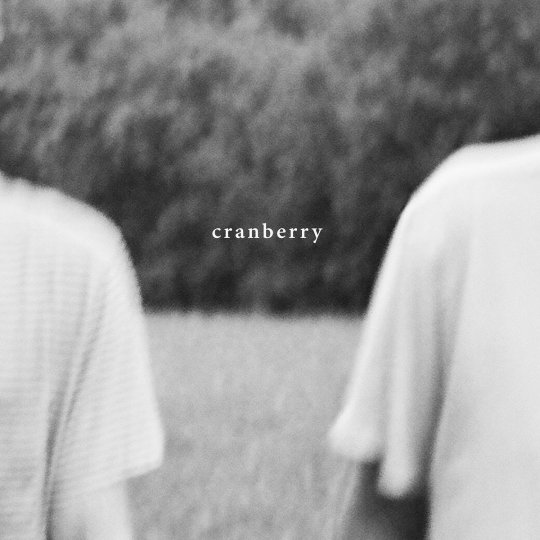
Easily my biggest surprise of the month, Hovvdy is a band I’d never heard of until I sat down to listen to this record. When I hit play, I instantly fell in love with the warm, hazy, nostalgic sound of Cranberry, and with each subsequent listen a different track has jumped out at me and grabbed my attention. Both spiritually and stylistically, this album reminds me of Turnover’s Peripheral Vision from 2015. Both albums hooked me on first listen and bear the same fuzzy spaced-out sense of nostalgia. While Turnover’s record is more pop-punk influenced, Cranberry finds itself taking cues from bedroom indie, Americana, and even country at times, but both play out like a distant memory that slowly grows to shroud the listener in their own nostalgia.
MGMT - Little Dark Age
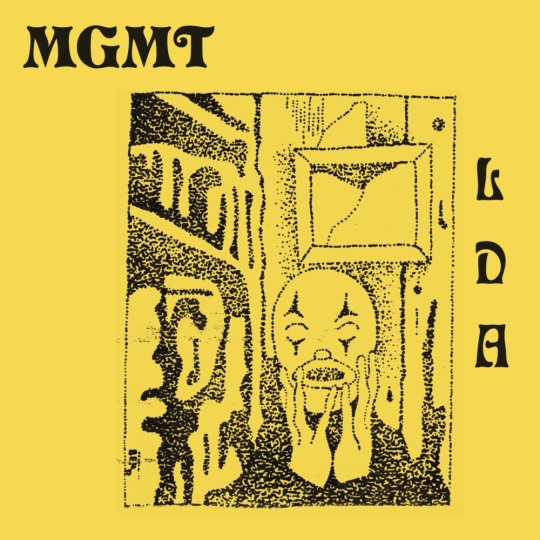
MGMT have had a long and storied history since their humble college-based beginnings in 2002. Continually straddling the line between synthpop, psychedelia, alternative, and indie, their 2018 record Little Dark Age finally seems to have attained the perfect balance of every one of their styles. While nothing may ever be as iconic as the breakthrough “Kids” or instantly-recognizable as “Electric Feel,” this album strives for (and achieves) something much different. From the opening narration-based exercise of “She Works Out Too Much” to the far-off echoes of “Hand It Over,” every move on Little Dark Age seems more self-assured than ever. A compact, addictive, and beautifully-crafted comeback.
Turnstile - Time & Space
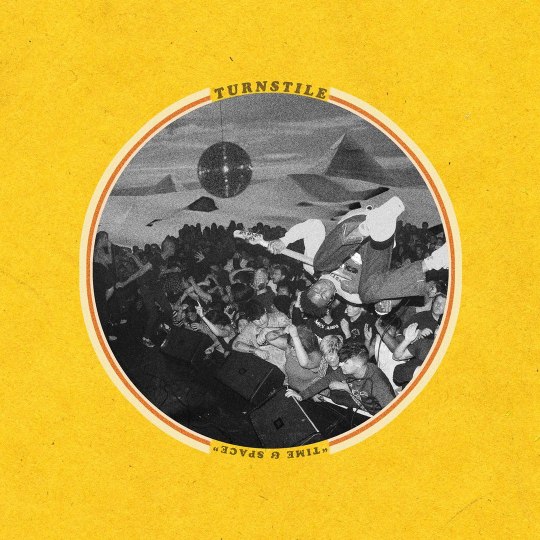
Hardcore will never die, and bands like Turnstile are here to prove that single-handedly. Over the course of 25 minutes, the Baltimore group runs the listener through an obstacle course of unbridled ferocity, pure aggression, and raw power. You’ll experience throat-shredding vocals, chest-pounding riffs, and thunderous drums, eventually to be spat out on the other side invigorated and aggressive. Proof that there’s beauty in brevity, the forceful grouping of songs off Time & Space rarely cross the two-minute mark. Turnstyle doesn’t seem to be interested in wasting a second of the listener’s time or expending one ounce of wasted energy.
Various Artists - Black Panther: The Album

Unlike Drake’s More Life, the Kendrick Lamar/Top Dawg-helmed Black Panther album feels more like a playlist than a record. With a (loose) central theme, a wide range of guest collaborations, and consistent contributions from its figurehead, Black Panther: The Album is what all collaborative art should strive to be. Well-performing on its own right outside of the already-successful movie, Kendrick’s accompaniment is both an achievement for Marvel and an artistic work that stands on its own. Between the album’s pop bops, futuristic chase songs, and braggadocious fight music there’s something here for everyone. When I saw a grandma groove out to SZA as the movie’s credits rolled, I was more confident than ever of this album's universal appeal.
2 Chainz - The Play Don't Care Who Makes It
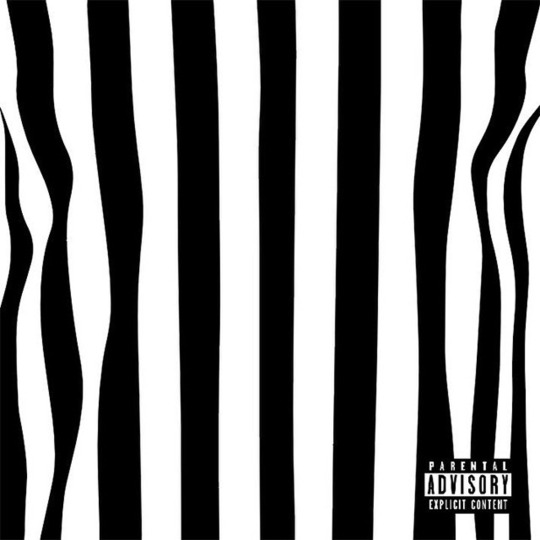
2 Chainz has been on a roll for years now. Often opting for smaller, more bite-sized projects and collaborations over full-on albums, The Play Don't Care Who Makes It is the newest installment in Mr. Chainz’ series of low-commitment EPs. Coming in at a crisp four songs over 16 minutes, each song is expansive enough for Tity Boi’s usual comedic bars, a couple of guest features, and even a loving shoutout to all of Atlanta’s strippers. The Play is 2 Chainz incarnate: every song hits, and the short running time doesn’t leave any room for it to wear out its welcome.
Justin Timberlake - Man of the Woods
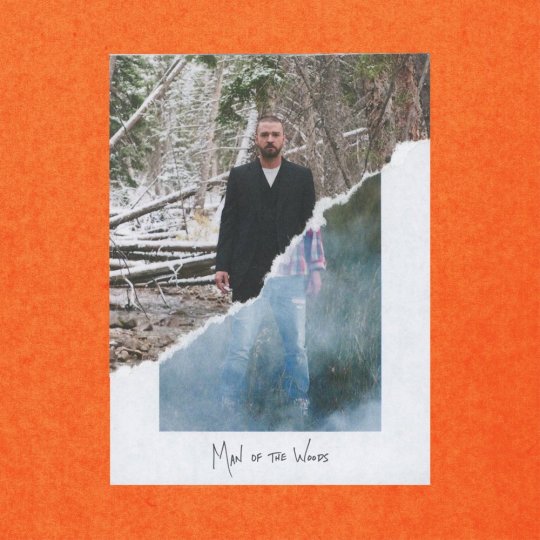
Whew. I don’t want to spend an excessive amount of time shitting on this record because I’m far from the first to do it, but also because it feels a little over-done… that said, Man of the Woods is a pants-shitting mess from front-to-back. Self-described as “Americana with 808s,” this album was doomed from conception. Even one half-attentive viewing of the “Supplies” music video is a good indicator of the full-album experience: a violently-bright and schizophrenic country-fueled acid trip gone wrong. Each track feels like Timberlake is throwing everything at the wall, indiscriminately mashing ten ideas into one track, laying terrible lyrics over the top, and then just delivering it all in the most earnest way he possibly can. In a way, I admire it.
As a whole, Man of The Woods feels like some sort of Joaquin Phoenix-esque meta career move in which you’re not quite sure how much of this is serious and how much is parody. Featuring Do-wop vocals, dueling harmonicas, and unnerving narration, it’s like Timberlake heard Young Thug’s Beautiful Thugger Girls and thought “I could do this” … but he can’t.
Some cuts are perfectly fine and listenable (“Montana” is pretty great, “Breeze Off the Pond” is at least pointed), but the remainder of the songs are comically bad and go on for minutes longer than they need to. The album’s most definitively bad moment comes in the backstretch when a half-awake Jessica Biel provides the excruciating introduction to “Flannel” which sounds like Lonely Island performing a children’s lullaby.
At the end of the day, this is just a pop album from Justin Timberlake, so I didn’t expect high-art, and I didn’t expect a mind-shifting release. That said, it’s been fun to revel in the collective schadenfreude of watching someone fail at such an audacious genre experiment in such a spectacular and public way. The full album may leave the listener in a state of ongoing agony begging for it to end, but the good thing is: it’s just pop.
Car Seat Headrest - Twin Fantasy (Face to Face)

For the sake of getting the rotten taste of Man of the Woods out of your mouth, we’ll end with one of the best albums of February: Car Seat Headrest’s remake of Twin Fantasy. Already a breakthrough record in its own right, this 2018 release is a version of the record that’s been completely remade from the ground up. While the original album is still up for streaming in all its lo-fi charm, it’s hard to deny the absolute achievement that Twin Fantasy represents.
Just as verbose, meta, poetic, philosophical, and fraught with emotions as the day that it was first recorded, Twin Fantasy will stand the test of time as an album about the most universal of journeys. About the simplicity of letting go and putting your hands around someone else’s shoulders and the complexity of everything that tends to follow. Temptation, rejection, debauchery, desire, contradictions, fears, manias, sexuality, routine, experimentation, depression, addiction, nervousness, otherness, love, and heartbreak. This album somehow manages to touch on every one of those topics in a raw, poignant, and open way that rarely is captured in life, much less crystallized on an album.
The fact that one of this generation’s most pivotal breakup albums could not only exist but be remade not to its own detriment is a testament to the creative core and message at the center of this record. Car Seat Headrest managed to improve the original, change it just enough that it feels new, and managed to keep the original spirit intact, all of which sounds like an impossibility, yet at the end of it all, there’s this album. It’s the most accurate portrayal of modern love ever captured in sound. It’s love and heartbreak on an oceanic scale. It’s Twin Fantasy.
Quick Hits

Because I may not have a lot to say, but I listen to a lot, and I like to be thorough.
• Rich Brian - Amen: After achieving viral success and undergoing a name change, the Indonesian rapper offers up his first official release packed with chilling, bassy, self-produced songs.
• Ratboys - GL: A four-track EP of slidey, female-fronted emo songs in which every move is measured, and every past action is regretted.
• Towkio - WWW.: Dropped from space, WWW. is this Savemoney crew member’s debut following the excellent .WAV Theory mixtape.
• Dashboard Confessional - Crooked Shadows: Chris Carrabba’s first album in 9 years is the definition of “hit-or-miss.” We’ll probably never get another song as precious or hard-hitting as “Ghost of a Good Thing,” but this album still has its moments.
• SOB X RBE - GANGIN: After introducing themselves to a broader audience with their Black Panther appearance, the group smartly follows-up their newfound exposure with this ballistic sophomore album.
• Rhye - Blood: Adult contemporary, but not in the way you’re thinking.
• Pianos Become the Teeth - Wait For Love: An unrelenting, explosive, and propulsive grouping of 10 songs from the post-hardcore torchbearers.
• American Pleasure Club - a whole fucking lifetime of this: The recently-renamed Run For Cover signees openly noodle, experiment, and remorse for a laid-back genre-less half-hour.
• Caroline Rose - Loner: Yet another album filed under “surprises provided by the internet,” Loner is the exact type of lowkey hyper-conscious slacker indie that’s eternally-appealing to me.
• Superchunk - What a Time to Be Alive: The 90’s DIY-rockers are back with 11 tightly-wound tracks that they volley at the listener without pause.
• Thundercat - Drank: The “chopped not slopped” remix of last year’s Drunk finds even more groovy mellow bass-centered love here.
• Ought - Room Inside the World: Ought lurch forward sadly with this collection of glowing tracks that bubble up to the listener’s ears with palpable remorse and moodiness.
• Palm - Rock Island: Traditional time signatures be damned! The fourth record from the Philadelphian math rockers is polished, jagged, and filled with more unexpected moments than a Black Mirror episode.
• Franz Ferdinand - Always Ascending: It’s ok.
• U.S. Girls - In A Poem Unlimited: Psychedelic, sexy, and occasionally-dancy indie jams that explode with violence and lust.
• Ravyn Lenae - Crush EP: Slow-moving and delicate, this Steve Lacy-helmed EP is a brief outing that should fill the R&B-shaped hole in your heart.
Plus we’ve also got fresh singles/covers from Frank Ocean, The Wonder Years, Beach House, Courtney Barnett, Ryan Adams, Father John Misty, Blocboy, Parquet Courts, Sorority Noise, Underoath, Code Orange, Run The Jewels, 6Lack, Kero Kero Bonito, Girlpool, Mount Eerie, , Remo Drive, Rae Sremmurd, The Voids, Flatbush Zombies, Car Seat Headrest, Post Malone, Julien Baker x Manchester Orchestra, Janelle Monáe, Jay Som, A$AP Rocky, A$AP Ferg, Kim Petras, Chvrches, Soccer Mommy, and Future.
#February#2018#new music#Field medic#cameron boucher#hovvdy#mgmt#turnstile#kendrick lamar#2 chainz#justin timberlake#car seat headrest
0 notes
Text
Universal Melodrama: Lorde and Medea

“We told you this was Melodrama.”
Lorde's Melodrama is a shining pop masterpiece, but as new as the album sounds, the story that it tells is one as old as humanity. Autobiographically-told, it follows Lorde as she grapples with heartbreak and fights to free herself from the intensity of young womanhood. Beloved by both fans and critics, Melodrama is a record that perfectly captures what it’s like to be in love. From the initial feelings of being “wild and fluorescent” to the shift of wondering why you’re dancing alone, the album tracks love as its vibrance slowly fades.
However, to say that Melodrama is merely about romance would be missing the point. The record also addresses what it’s like to be a young woman, transitioning into a world full of expectations and contradictions. In her own words, Melodrama follows the story of a house party, from the euphoric highs of “The Louvre” to the dark intricacies of “Liability,” each song depicts a different stage of the evening as Lorde searches for peace in the aftermath of a breakup. In an album filled with complexities and confusion, the line between heartbreak and freedom becomes blurry, and the party rages on while Lorde tries to keep up.
About 2,000 years prior to Melodrama, Greek playwright Euripides wrote a tragedy called Medea that touched on many of the same topics. The plot focuses on the heartbreak our heroine Medea faces and her plan to get revenge on her adulterous partner. But more than that, it follows a powerful woman who struggles with the expectations placed on her by society. Lorde and Euripides’ works bear a striking number of similarities to each other. Both of our protagonists become obsessed with their lovers, and find themselves willing to betray friends and family. The two narratives posit that love often leads to heartbreak, but it can also lead to freedom.
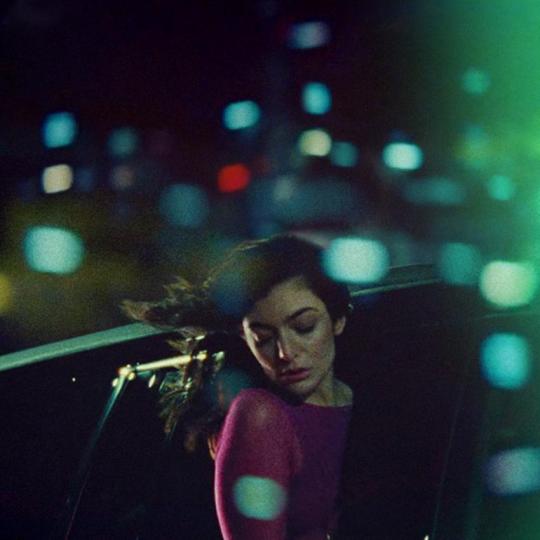
Part 1 | The Lover
At the beginning of Medea, our main character falls in love with Jason when he visits her island of Colchis on a quest to retrieve the Golden Fleece and take his spot on the throne. Compelled to help her lover, she feeds Jason tips and helps him attain the fleece through the power of her wizardry. After the current king blocks Jason from taking the throne, Medea hatches a plot to take the kingship illegitimately by tricking the king’s daughters into chopping him up. When her plan is uncovered, both Jason and Medea are banished from the island, chased away by Medea’s own family. In an attempt to escape by sea, Medea devises a plan to slow her father down by killing and chopping up her brother’s body then throwing it to the sea, knowing that her father will stop to collect the individual body parts.
Meanwhile, on Melodrama Lorde finds herself experiencing the same intoxication of love on “The Louvre” where she feels ready to betray friends and family for her lover much like Medea did. At the start of the song’s third verse, she recounts “Blow all my friendships / to sit in hell with you / But we’re the greatest / They’ll hang us in the Louvre.” While she obviously doesn’t go as far as killing, Lorde is still obsessed with her lover in the same way that Medea was, willingly destroying all of her friendships in favor of newfound love. Earlier on in the track, she bottles up that feeling of infatuation with the lines “I am your sweetheart psychopathic crush / Drink up your movements still I can’t get enough.” Both women experience the electrifying fluorescence of new love and succumb to the rush that it fuels.

Part 2 | The Betrayal
After escaping her homeland, Medea and Jason relocate on Corinth, a remote island where they settle down and have a number of children together. Eventually, Jason finds himself enamored with another woman, Creusa, who also happens to be a princess on the island. Drawn to Creusa’s beauty (and her social status) Jason abandons Medea, leaving her stranded on a strange land, alone with no standing as a foreigner and as a woman. Her time in love with Jason was ultimately quick and intense, and they fall apart just as quickly as they were drawn together.
Lorde also finds herself grappling with a similar situation of new and unfamiliar love on “Homemade Dynamite” where she opens the song with some scene-setting lyrics: “A couple rebel top gun pilots / Flying with nowhere to be / Don't know you super well / But I think that you might be the same as me / Behave abnormally.” Intoxicated with the feeling of fresh love, Lorde is inspired to act irrationally, jumping into a relationship with little foresight or evidence of compatibility.
Within the same song, we witness the relationship’s quick end as it devolves into a spiteful and violent split. Lorde ends up with someone else despite seemingly still being attached to her original lover. “See me rolling, showing someone else love / Dancing with our shoes off / Know I think you’re awesome right?” Right after asking that, Lorde transitions into a vengeful chorus of “our rules our dreams, we’re blind / blowing shit up with homemade dynamite.” The rapid transformation within the song highlights how quickly the intense feelings of love can retreat and metamorphosize into equally-passionate emotions of hate or violence, just as they did with Medea.

Both Lorde and Medea find themselves impassioned by their unfaithful lovers in different ways. While Lorde finds herself partying and wanting to “blow shit up,” Medea’s emotions come out in the much more biblical form of a speech. Tied to her husband by law, Medea is left feeling powerless once he abandons her for someone who will lift his status in society. Men, she claims, lead an easy life and can leave their woman whenever they want. Meanwhile, women are the ones who suffer as divorce is reprehensible, women are the ones who have to give birth, and powerful women are feared. Abandoned by Jason, Medea shares her frustration, orating to the women of her city, she claims that even death is preferable to marriage.
“In my case, however, this sudden blow that has struck me has destroyed my life. I am undone, I have resigned all joy in life, and I want to die. For the man in whom all I had was bound up, as I well know—my husband—has proved the basest of men. Of all creatures that have breath and sensation, we women are the most unfortunate. First at an exorbitant price we must buy a husband and master of our bodies. And the outcome of our life's striving hangs on this, whether we take a bad or a good husband. For divorce is discreditable for women and it is not possible to refuse wedlock. And when a woman comes into the new customs and practices of her husband's house, she must somehow divine, since she has not learned it at home, how she shall best deal with her husband. If after we have spent great efforts on these tasks our husbands live with us without resenting the marriage-yoke, our life is enviable. Otherwise, death is preferable. A man, whenever he is annoyed with the company of those in the house, goes elsewhere and thus rids his soul of its boredom. But we must fix our gaze on one person only. Men say that we live a life free from danger at home while they fight with the spear. How wrong they are! I would rather stand three times with a shield in battle than give birth once.”
After the outward destruction found on “Homemade Dynamite,” Lorde tries her best to find peace in her own company. She confesses her own experiences of being isolated in “Liability,” the emotional centerpiece of the record in which Lorde finds solace in her own self-love. No longer dependent on someone else for her happiness, she focuses on her relationship with herself. “So I guess I'll go home into the arms of the girl that I love / The only love I haven't screwed up / She's so hard to please, but she's a forest fire.” In these lines Lorde admits that love has shaken her up, but begins to realize that happiness can (and must) come from within first. She goes on to depict a scene of her evening alone, revealing that she’s indeed talking about herself. “I do my best to meet her demands, play at romance / We slow dance in the living room, but all that a stranger would see / Is one girl swaying alone, stroking her cheek.”

Part 3 | The Revenge
Betrayed by Jason, Medea plots her revenge, eventually deciding to kill Creusa, and the children she’s had with Jason. By taking Jason’s fatherhood and social status, she hopes to harm him in the most painful way possible. Medea eventually decides to kill Creusa by sending her a cursed crown and robe delivered by the children that Jason had with Medea. At first reluctant to accept the kids into her house, Creusa immediately becomes amicable when she notices the beautiful gifts they are offering. Once put on, the crown takes a moment before it latches into Creusa’s skull while the robe burns her skin into a waxy substance. Before she is killed, Creusa is given a chance to admire herself in the mirror, only to watch her beauty that was so treasured be torn away.
In Melodrama Lorde is at her most vengeful on “Writer In The Dark” where she warns her ex of the mistake he made. Instead of remaining heartbroken, she turns her ex’s departure into something empowering. Just as Medea hurts Jason and Creusa in the most personal way possible, Lorde defies her ex by achieving superstar status off an album partially about the empowerment of being alone. “Bet you rue the day you kissed a writer in the dark / Now she's gonna play and sing and lock you in her heart.” The chorus portrays Lorde at her most vicious as she bares her fangs through flashes of love-infused threats. “I am my mother's child, I'll love you 'till my breathing stops / I'll love you 'til you call the cops on me / But in our darkest hours, I stumbled on a secret power / I'll find a way to be without you, babe.” Eventually, she lands on the self-reliance detailed above in “Liability” and explains that she found her own way out of the darkness of heartache.

Part 4 | The Escape
After having achieved her revenge, Medea leaves the Earth and disappears into the sun on a chariot given to her by her grandfather Helios, the sun god. By giving her the chariot, Helios is also sanctioning her actions and is giving Medea a chance to escape the world that has caused her such pain. This is a moment of triumph, as Medea is now free of her lover and all the actions that came in the aftermath of his betrayal.
Melodrama also includes a reference to disappearing into the sun on “Liability” when Lorde whispers “They're gonna watch me disappear into the sun / You're all gonna watch me disappear into the sun” on the track’s outro. In Melodrama’s context, disappearing into the sun is the final act of an incredibly dark and intricate song, yet this disappearance, like the rest of the record, isn’t easy to reckon with. She’s leaving behind her lover in favor of her success, much like Medea left her world behind after achieving revenge. It’s not the choice either would have made in a vacuum, but rather a step that is necessary in order to fully attain the freedom from their past lives.
On Melodrama’s closing track “Perfect Places,” Lorde is confronted with the reality that perfection is impossible, despite the bliss partying seems to bring. To start the song, she details her attempts to get lost in the ecstasy of an average night out. “Every night, I live and die / Feel the party to my bones / Watch the wasters blow the speakers / Spill my guts beneath the outdoor light / It’s just another graceless night.” Checking to make sure her company is as immersed in the party as she is, Lorde asks “Are you lost enough? / Have another drink, get lost in us / This is how we get notorious.” She quickly turns around and explains why she feels the need to party in order to be free, offering that she is ashamed of herself and is afraid of facing the fact that her heroes are disappearing around her. “All of the things we're taking / 'Cause we are young and we're ashamed / Send us to perfect places / All of our heroes fading / Now I can't stand to be alone / Let's go to perfect places.” After trying to avoid her pain through partying and drinking, Lorde finally comes to realize that life will probably always be an unavoidable mess, and distractions won’t help her deal with her issues despite providing a few hours of escape. She sends the album off with an anthemic chant of “All the nights spent off our faces / Trying to find these perfect places / What the fuck are perfect places anyway?”

Universal Melodrama
So how did these two works of art end up with such eerily-similar arcs? Well, they are both centered around universal themes that are always relevant to the human experience. While love and heartbreak will always be relatable topics, Lorde has admitted that she designed Melodrama to emulate the feeling of a Greek tragedy. In an interview with Vanity Fair she elaborated:
“[Melodrama is] a nod to the types of emotions you experience when you’re 19 or 20. I had such an intense two years, and everything I was feeling—whether it was crying or laughing or dancing or in love—each of them felt like the most concentrated version of that emotion. I also have a love of theater and I love drawing a parallel with Greek tragedies. But there’s definitely an element of tongue-in-cheek; it’s very funny to title your record Melodrama.”
Lorde clearly invokes classical ideals in her record, as she emphasizes the unity of time, place, metaphor, and action. This makes for a more concise album, and as a result, everything is condensed and easy to follow. Similarly, she employs unity of metaphor with repeated references to the sun and fire, ribbons tying her to someone, and the feeling of being used in a relationship. All the imagery is meant to connect, spawning echoes and reflections across the album.
On “Sober II (Melodrama)”, Lorde cautions “We told you this melodrama / Our only wish is melodrama.” Much like the Greeks used to pen cautionary tales of being swept away in a fit of emotion, Lorde’s cry acts as a claim that the listener got exactly what they came for, just as she presumably knew that heartbreak often follows love. Despite the suffering caused by the disintegration of her relationship, Lorde knows every part of her life will be amplified in her transition to womanhood, even the highs.

The upside to these stories is that both Lorde and Medea turn their cautionary tales of heartbreak into stories of self-success. Thinking less about the specifics of what Medea did and more about the concept, we see two women who successfully seized opportunities to take control of their lives when they could have easily blamed the world for what was happening to them. Without discounting the fact that they both did take a moment to acknowledge the pain of their situation (“Liability” in Melodrama, Medea’s speech in Medea), we can see they were both more interested in accepting the challenge the world had given to them than they were in wallowing in self-pity. That can be a scary concept to tackle, and one that is even harder to realize in actuality. But as Lorde sings in “Liability,” her forest fire-like passion is what enables the wild fluorescence of love, the following crash of being alone, and the ability to embrace a new life. And the unique confusion that comes from that mix of feelings is worth it to have her strength and passion.
Another metaphor that unites both Lorde and Medea is the idea of disappearing into the sun. Lorde does so in “Liability,” a song about feeling used and retreating into yourself. Medea disappears into the sun literally as the final act of the play, leaving behind Jason to join the gods. They both do this as a way of showing heartbreak is not only something that can be overcome, but that the lessons learned from it and the resulting actions might have a more positive and permanent impact than loving someone else did. Lorde and Medea both understand that they can be better off alone and that the empowerment that comes along with their actions allows them to defy the usual feelings of heartbreak.

In many ways, the human experience will always be the same. We will always search for connection, we will always find heartbreak, and we stumble into relationships that change us forever. The fact that these two vastly different works, in two disparate mediums, from two artists centuries apart can both feel equally valid speaks to this. Viewing these universal truths through different lenses is how we evolve and connect as humans. It gives us an outlet to reflect on our own experiences, and (hopefully) grow as people through them. Whether it’s a murderous sorceress ascending into the sun or a New Zealand teenager dancing in her room by herself, there is truth, experience, and life to be gained through both of these pieces of art.
Studying at Boston University, Grant loves writing about all things music. From Jeff Rosenstock to Bleachers, you can see what he his is listening to here. To stay up to date on more music thoughts, follow him on Twitter here.
38 notes
·
View notes
Text
Lil Pump Versus The Elderly: A Long and Storied History
Letter From the Editor: The writer of this piece would like to apologize in advance for the abject stupidity contained within the following wall of text. If you’re brave enough to subject yourself to the mania that’s about to unfold, then you have my admiration, gratitude, respect, and appreciation. Thank you for understanding, and may God have mercy on your soul.
Pumpology 101: The Mystifying Origins of Gazzy Garcia

Lil Pump is a dreadlocked 17-year old rapper from Florida who first began making waves in late 2016 when his song “D Rose” became an unexpected viral hit. Over the span of a few short months, the wrist-obsessed track had garnered millions of plays on Soundcloud and over one hundred million curious YouTube clicks. By the end of 2017, Lil Pump (whose real name is Gazzy Garcia) had established himself as a mainstream success when his song “Gucci Gang” peaked at #3 on the Billboard charts. Spawning from his self-titled debut, the alliterative hit quickly became the focal point of a heated debate on the declining state of rap music rap music, the ongoing idocratization of popular culture, and the bare minimum required to pass for lyricism in the year of our Lord 2017.
Expertly covered by both Rolling Stone and The New York Times, Mr. Pump has become a figure at the forefront of the budding “Soundcloud Rap” movement. This subgenre is a spin-off of Trap that’s focused on crafting a particular brand of blown-out, vapid, and repetitive hip-hop that, while lyrically substanceless, still manages to be catchy, memorable, and (most importantly) energetic. It’s hype-up music that’s been distilled so many times that words practically don’t matter.
I’ve already discussed my conflicted feelings on the genre back in August, and while some members of this scene are still objectively-horrific human beings, I’m willing to admit that I’ve come around to Lil Pump thanks to the catchiness of the aforementioned “Gucci Gang.” While the man himself should never be looked up to as an idol, Garcia is still making exciting creations within a field that I’m morbidly fascinated by.

The Lyrics (or Lack Thereof)
Like most rappers, Pump’s songs typically center around the same award-winning trifecta of drugs, money, and women. What makes “Gucci Gang” unique is the fact that it ticks all these boxes while also managing to be accessible to a mainstream audience. Soundcloud Rap’s previous biggest success came in the form of “Look At Me!,” a song whose lyrics are probably just a touch too edgy for mainstream audiences.
Meanwhile “Gucci Gang” has just the right mix of garish colors and catchy lyrics, both of which are accompanied by a distinct feeling of “newness” that helped it stand out from the crowd. Additionally, the song’s bouncy three-syllable chorus proved perfectly memeable, ripe for parody, and endlessly reworkable, all of which led to a song that hit, and lingered in the cultural consciousness for longer than anyone ever expected. Possibly even a reflection of our society at large, “Gucci Gang” is an undeniable success no matter how you cut it.
Outside of the song itself, Lilliam Pumpernickel has also gained fans through numerous extra-musical antics including second-floor balcony jumps, a love for iCarly’s Miranda Cosgrove, and a running joke that he’s a Harvard Graduate. Essentially, he’s not afraid to be a meme, and that lack of fear makes him even stronger. Complete with his own catchphrase, there are many reasons to be entertained by Lil Pump, and all of these elements combined help explain his meteoric rise to success.

The Emergence of an Astronomical Happening
Though my numerous listens to “Gucci Gang,” I began to approach the song the same way that many others did: first with curiosity, then ironic enjoyment, then genuine adoration. I can’t stress enough that the lyrics are nothing to write home about, however one stanza in particular stands out amongst the rest like a bright, shining star:
My lean cost more than your rent, ooh (it do)
Your momma still live in a tent, yuh (brr)
Still slangin' dope in the 'jects, huh? (yeah)
Me and my grandma take meds, ooh (huh?)
These bars initially seemed like a single metaphysical barb amongst a sea of relatively-straightforward brags and boasts, so I explained them away as a one-off lyric with no deeper significance. Unbeknownst to me at the time, this line was just the tip of the iceberg.
By the time December had rolled around, “Gucci Gang” had won the honor(?) of being recognized not once, but twice in Swim Into The Sound’s 2017 Un-Awards. While part of a largely-negative post, I shined a relatively-positive light on “Gucci Gang” as my second-biggest “WTF” moment of the year (second only to Bhad Bhabie) in which I found myself surprisingly endeared to both equally-trashy artists. Later on in the proceedings, I cited the lyrics above specifically as the single “Weirdest Flex” of 2017 (barely edging out a Drake lyric about napping).
In researching the Pump-penned lines for that write-up I found myself jumping between various Genius pages and in doing so, I quickly began to uncover a conspiracy deep as the Carly Rae Jepsen Cinematic Universe: Lil Pump has an unshakable fixation with the elderly.

The Quest For A Universal Truth
It’s no secret that artists tend to use the same concepts, thoughts, and ideas over and over again throughout their work. Usually in hip-hop, these recurring topics (like drugs, money, and women for instance) are framed by using twists on conventional language that are given new meanings within the scene’s culture. From “bricks” to “bands” to “bitches” every possible theme has dozens of different synonyms that can be switched out interchangeably to keep the rhyme fresh and the topic from going stale.
However, slang goes in and out of popular vernacular like the tides of the ocean, and Monsieur Pump is not above these familiar tropes. While drugs, money, and women remain the primary topics around which Pump waves his tales, he, on more than one occasion, has used his grandma, or the grandmother of the listener as a reference point for these interests.
Of course he likes lean, and naturally, he talks about it, but what makes Pump unique is his ability to relate that commonplace idea to the elderly in a hilarious and unexpected way. He’s using age as a barometer by which to measure his own life; the elderly representing an extreme through which he can cover these well-trodden topics.
It’s quite the signature flair for a 17-year-old to brandish, but perhaps through these lines he’s revealing his own obsession with death and mortality. Maybe these grandparent-based lyrics are allowing us a brief peek into the inner machinations of Lil Pump’s mind and we are learning what troubles him on a deep, cosmic, existential level. The philosophical reaper that keeps him up at night. These lines act as an illumination of the human experience as told through the grounded eyes of one man who yells “ESKETIT” like it’s his Pokemon name. What follows is a comprehensive list of every time Little Pump has rapped about senior citizens. You are welcome.

Exhibit #1 - “Gucci Gang”
My lean cost more than your rent, ooh (it do)
Your momma still live in a tent, yuh (brr)
Still slangin' dope in the 'jects, huh? (yeah)
Me and my grandma take meds, ooh (huh?)
For the sake of completeness, we’ll begin with lyrics that started it all. The quote above comprises exactly 25% of the sole verse found on Lil Pump’s breakout hit “Gucci Gang.” In it we find Pump surveying his surroundings, living situation, and pattern of systematic drug use over a bassy beat and twinkling piano line.
First, we get the worrying comparison between the upkeep of his own opiate addiction to monthly rent, then the (uncalled for) implication that the listener’s mother is homeless, and the final cherry on top: the fact that Pump spends quality time popping pills with his grandmother. While the specifics remain vague here, it’s implied that he’s taking drugs recreationally while she is taking them for health reasons.
This being one of Pump’s numerous references to the elderly, the topic’s pervasiveness now leads me to believe that this is both a genuine lyric, as well as a thinly-veiled cry for help. As distressing as the lyric may be, at least he’s spending some quality time with his elders before they pass. Even if it’s a drug-fueled haze, I hope that both parties treasure their remaining time together and cherish each other's company.

Exhibit #2 - “Fiji”
I got Fiji on my neck
I got Gucci on my chest
And my grandma sippin' Tech
Off a Xan like Ron Artes
In this one-off Lil Pump loosie, Young Gazzy uses the artesian water brand as a descriptor for both his jewelry and his sex life. Following a similar structure as “Gucci Gang,” this track features a brief intro, and one verse sandwiched between two short choruses. Clocking in at a mere 88-seconds, “Fiji” is a striking minimalist creation that embraces reductionism and revels in ambiguity.
Within the world of hip-hop, “Water” can actually mean many things. From sex to swagger, the use of ‘water’ in-song is generally something you have to pick up from context clues, and this track is no different. In “Fiji” Pump walks a beautifully-ambiguous line between these typical definitions of earthly possessions and literal water, turning the brand’s name into a primal chant of “I pour Fiji on her neck.”
After a brief water-laced refrain, Pump proceeds into the meat of the song: a 45-word verse that discusses his public persona and ticks all of the seemingly-mandatory drug-based name-drops. He has jewelry on his neck, a Gucci logo tattooed on his chest, and most importantly the incongruous mention of his grandmother casually enjoying some hitech (aka Lean).
Perhaps elaborating on the lines of “Gucci Gang,” this lyric implies that maybe he and his grandmother both enjoy drugs on the same recreational level. Later on in the song he continues:
Slice your auntie in the neck
Lil Pump disrespect
Run up on you with that 40
Grab your grandma by the neck
After the verses earlier drug revelry, Pump seems to “set his sights” on the listener, attacking us via multiple familial ties. In a single moment of clarity he utters “Lil Pump disrespect” as if he knows what he’s doing is morally reprehensible, but remains out of his control. A haunting sentiment to say the least.
His hunger is insatiable, and your grandmother is his target. Violence is the only thing he understands, and your grandmother is the only thing he can grasp onto, both physically and metaphorically. And then, just as suddenly as the attack unfolded, the song fades into nothing, leaving the listener in the bloody aftermath.

Exhibit #3 - “Smoke My Dope”
Whippin' up dope in the trap spot (what)
Sellin' cocaine to your grandma (yuh)
Whippin' up dope in the trap spot (yuh, yuh)
Sellin' cocaine to your grandma (yuh, yuh, yuh, yuh)
In this early-album cut Lil Pump and fellow Florida rapper SmokePurpp trade verses for a compact and chaotic 2-minutes. In Garcia’s second verse he exerts himself enough to present one specific instance of creating and selling drugs over a series of escalating “yuh’s.”
In this simplistic portrayal of Pump’s supply chain, he gives his process away to the listener:
Whip up an indeterminate amount of “dope” within the “trap”
Proceed to sell that cocaine to the listener’s grandmother
Perhaps connected to the seemingly-uncalled-for violence depicted on “Fiji,” these lines seem to explain how Pump has obtained his wealth. I imagine that the elderly are comparatively easy-going when it comes to the purchase and intake of drugs, so it’s presumably easy money for Pump and a decent enough business model. Backed up by voracious twitter claims that echo the song’s lyrics, Pump has given us no reason to doubt him or his business acumen when it comes to selling the white stuff to the Greatest Generation.

Exhibit #4 - “Had”
My loud pack smell like fish tank
My backwoods filled with dumb stank
I can't fuck with you, cause I know all you ni**as stains
My grandma selling loud pack and she selling cocaine
She run up on your block and she'll shoot you in the fuckin' brain
With “Had” it seems that there’s a new wrinkle to Pump’s drug operation as it’s revealed that he’s running a family business by employing his grandmother as a key player.
Depicting his bubbe as savage and violent as himself, this example could possibly explain Pump’s own outwardly-destructive actions as a learned behavior. In portraying a systematic issue within our society, this line directly tackles how family can fail us, or lead us to repeat the same mistakes as those that came before us. It’s a tortured and agonized call for help as Pump removes himself enough to realize the trauma that he has indirectly absorbed and the conditions that he has had no choice but to grow up in.
This all said, it’s still nice that people like Pump’s grandmother can find purpose in the fast-paced working world and be driven by the fulfillment of a hard days work. The fact that she’s willing to kill on top of the drug dealing means that she’s committed to the cause, and is likely quite experienced, even in her old age. At the very least, Pump must come from good genes!

Exhibit #5 - “At The Door”
I got junkies at the door
I could serve you 2 for 4
I could serve you couple Xans
I could feed your bitch some coke
Yeah my Uzi automatic
Make your grandma do a backflip
On this mid-album cut, we see yet another allusion to the violence that Pump has inflicted upon the listener’s grandmother specifically. Perhaps wielded by Pump himself, or maybe even his grandmother (as we saw in “Had), it appears as if the drug dealing illustrated on “Smoke my Dope” has gone sideways for one reason or another, and Pump has been forced to resort to violence.
This line is actually one of the multiple familial references within this verse, the others being father, daughter, and aunt, so while this reference fits squarely in the bounds of the topic at hand, there’s no getting around the persistently-elderly angle that Pump takes.
This is yet another line later echoed in a Tweet by Pump, either lending further credence to his unfeeling savagery, or (perhaps) his commitment to our society’s collective physical fitness by inspiring the elderly to do advanced-level gymnastics.

In Conclusion
None of this was good. While Pump’s initial references to the elderly seemed to be a twisted form of mutual enjoyment, things quickly devolved into selling drugs, and eventually inflicting violence directly on the listener's grandmother.
This analysis is absolute stupidity, but I find it too amusing that a 17-year-old who has so few songs officially released has referenced the elderly half a dozen times throughout the history of his recorded work. The way I see it, there are a few explanations for this lyrical ouroboros:
It’s a creative crutch.
Lil Pump has that little to say that he keeps defaulting to “grandma.”
Deep-seated familial trauma in his own past that Pump may or may not be cognizant of.
Pump thinks that the savagery of his grandma implies, dictates, and directly translates to his own.
By “attacking” the listener and showing disregard for their loved ones, his devil-may-care attitude is preemptively deflecting any criticism they may have of Pump or his music.
Lil Pump truly does fear the uncertainty of death and projects that concern through the multiple references to the elderly in his music.
It very well could be all or any combination of all of these, but in any case, I feel it’s safe to say that this qualifies as an unhealthy fixation. Whether it’s a profound fear of death, a thinly-veiled attempt to address his own mortality, or irreconcilable childhood trauma, I genuinely hope that Gazzy Garcia can get the help he needs to get over this mental block.
He’s still got many years ahead of him, and a full life to live. If he wants to make it to the status of “Grandpa Pump” he’ll have to overcome this irrational fear and tackle his issues head-on, or else they will continue to emerge in unhealthy ways.
Here’s to you Mr. Pump, I hope you get the help you need and deserve.
I’m sorry for writing this.

2 notes
·
View notes
Text
January 2018: Album Review Roundup
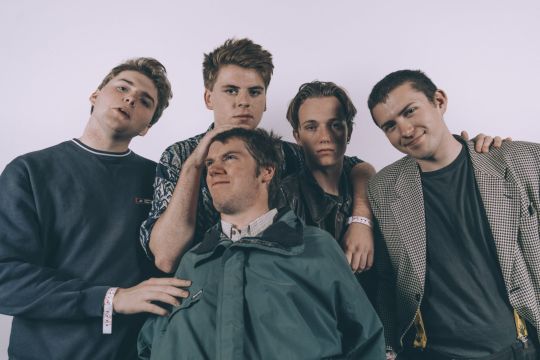
For a traditionally-quiet time of the year, January has been a surprisingly fantastic month for music. As 2018 trudges off to a slow start, I figured it would be helpful to collect all of the best projects from the past 31 days in one place.
Truth be told, this is just a writing exercise to get myself going on a particularly-sloggy Tuesday morning, but this roundup is as much for me (to help keep track of the ever-growing mountain of music I love), as it is for you to (hopefully) discover something new and refreshing.
Tiny Moving Parts - Swell

Within the space of two years, Tiny Moving Parts have cemented themselves as one of the most interesting, technical, and personable acts in modern emo. Featuring unpredictable math-rock time signatures, heartfelt lyrics, and shimmering production, Swell is the group’s most concerted effort to date.
Lil Wayne - Dedication 6: Reloaded
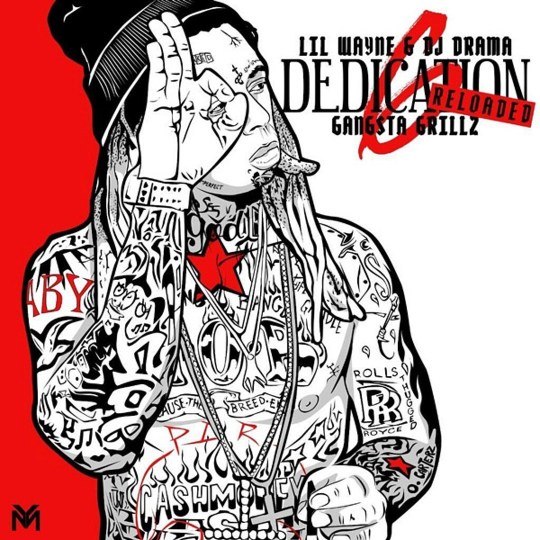
After a steady stream of quality mixtapes beginning in 2015 Lil Wayne has been low-key killing it for years now. As he continues to grapple with ongoing public problems surrounding his forthcoming Tha Carter V, it’s becoming more evident with each passing day that fans may never get to hear that album. Luckily for us, while we wait for the vaporware LP Wayne is still free to drop impeccable rhymes over some of the hottest beats in recent years. From "Plain Jane" to "Gucci Gang," D6: Reloaded is one of the best mixtapes of the rapper’s career. Interspersed with brief interview clips, each track offers a peek one step further into Wayne’s psyche until we’re deeper than we’ve ever seen before. The mixtape ends up being a 90-minute proving ground of chest-inflating punchlines, pussy-eating poetry, and effortless flows from one of the best in the game. A true return to form.
Ty Segall - Freedom’s Goblin
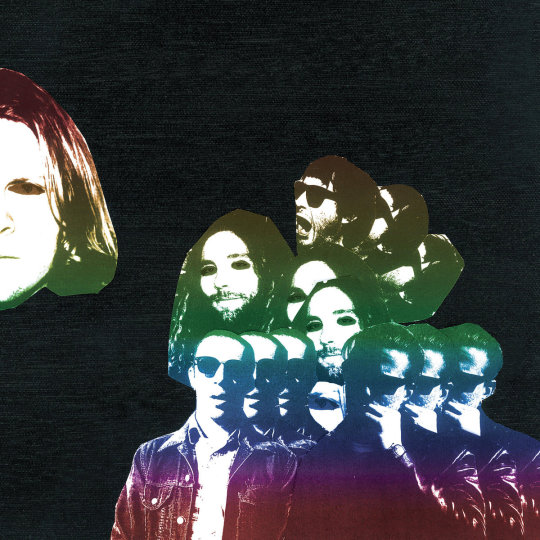
Packed with funky grooves, hip-swiveling rhythms, and lip-curling fuzz, Freedom’s Goblin is Ty Segall’s unabashedly-glammy double-album. Just as eclectic as fans have come to expect, Goblin dips into dozens of different psychedelic sounds over the course of its 1 hour 15-minute running time. After he borrows inspiration from them, all these disparate genres are then filtered down through one bizarre, unique, and unified multi-instrumental mind. This is a rock album of the highest order.
JPEGMAFIA - Veteran

One of my biggest surprises of the month, Veteran is the fourth mixtape from Los Angeles-based rapper and producer JPEGMAFIA. Taking cues from Clipping, Death Grips, Yung Jake, and Odd Future, Peggy offers up an utterly ballistic assault on the senses with this tape. Attacking everyone and everything in his sights, he uses a deft understanding of music, humor, and internet culture to create something that’s wholly his own.
Jay Some - Pirouette 7”
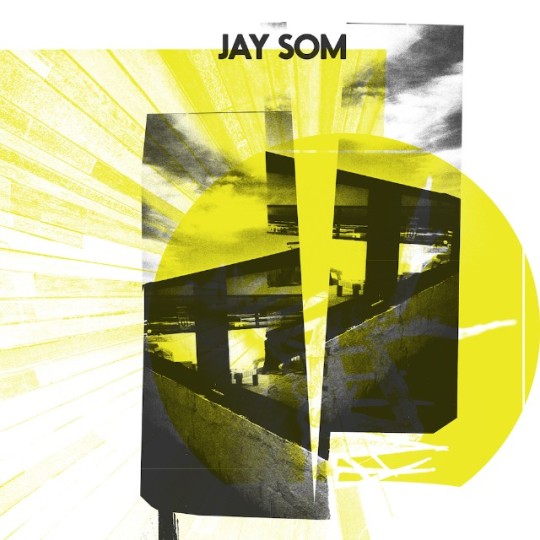
Following the critical acclaim of the blissed-out bedroom pop found on Everybody Works, Jay Som is back with two new tracks from the same session that didn’t make the initial cut. Equally dreamy, hazy, and intimate, both “Pirouette” and “O.K., Meet Me Underwater” flesh out Duterte’s musical persona and act as supporting evidence that the success of her breakthrough LP was no accident.
Migos - Culture II
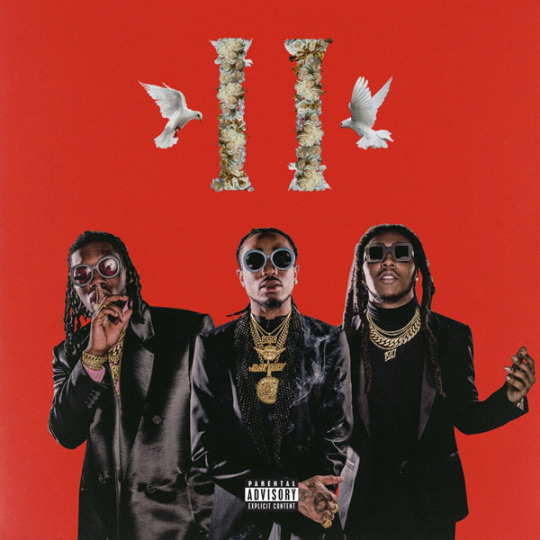
With 24 tracks stretched over an exhausting 105 minutes, Culture II is a prime example of an artist doing their own thing. Following-up last year’s impactful sophomore effort, Culture II doesn’t reinvent the wheel, but it doesn’t have to. From earworm choruses to infectious ad-libs, the Atlanta trio busts out trap anthem after trap anthem at an alarming pace until they tire themselves (and the listener) out. The group seems to have accepted and/or embraced their fate as musical popcorn: not exactly filling, but an undeniably fun snack.
No Age - Snares Like A Haircut
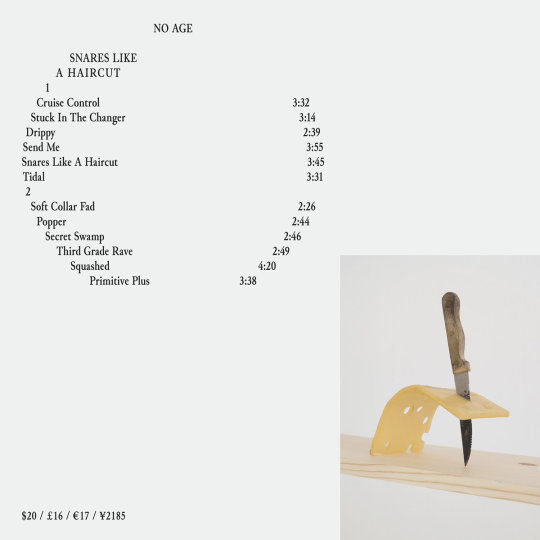
With bright, driving, summery rhythms, Snares Like A Haircut is a dream punk album in the style of Japandroids that’s designed for cruising the highway top-down on warm summer days. It’s an album-length injection of adrenaline into your veins that will keep you in motion, either willingly or by force.
Drake - Scary Hours EP
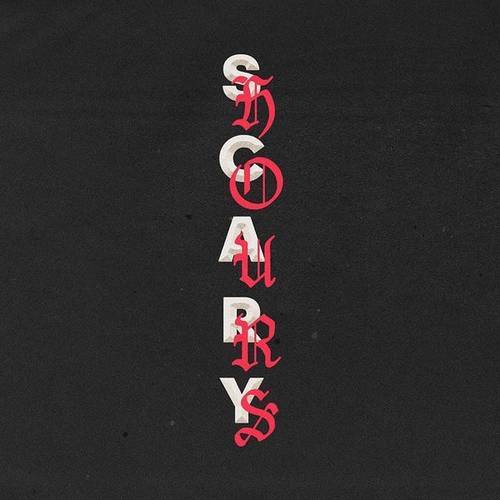
Unceremoniously released late on a Friday night, Drake’s two-song EP has already been streamed millions of times, shattered single-day streaming records, and then preceded to break them again. Both mid-tempo stream-of-consciousness updates on the 6 God’s life since More Life, these two tracks are merely supporting evidence that Drake is still at the top of the game.
August Burns Red - Messengers Remixed
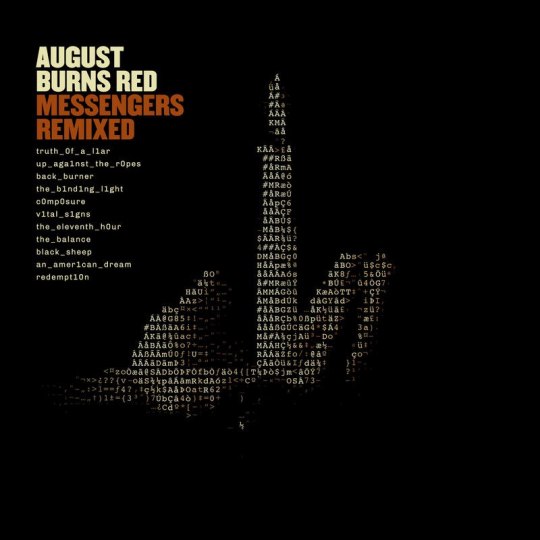
Messengers, one of the most pivotal metalcore records of all time, enjoyed its tenth anniversary this past July. Supported by a worldwide tour celebrating the album’s enduring success (and hot on the heels of a Grammy nomination for 2017’s Phantom Anthem), the progressive metal pioneers also released a full remaster of their breakthrough LP. Just as hard-hitting as the day it came out, Messengers now sounds better than ever with crushing breakdowns, tight instrumentation, and a newly-balanced mix.
Jeff Rosenstock - POST-
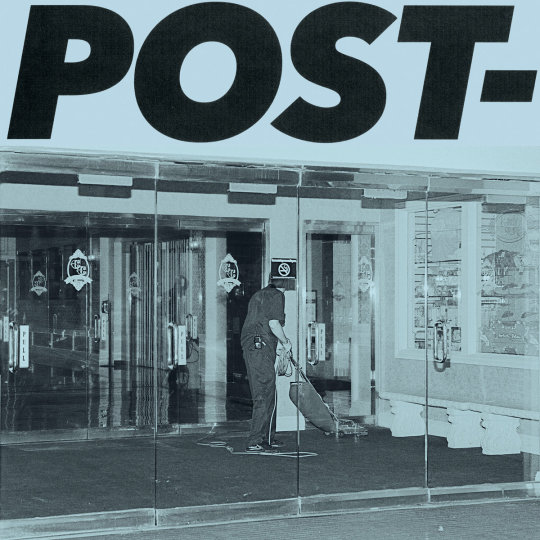
On literally the first day of the year, power pop god Jeff Rosenstock made his mantra for 2018 clear when he unleashed POST- into the world. With optimistic tracks of self-affirmation, aimless aggression, and political defiance, POST- is both the cure for your New Year’s hangover and the solution to everyday lethargy.
Shame - Songs of Praise
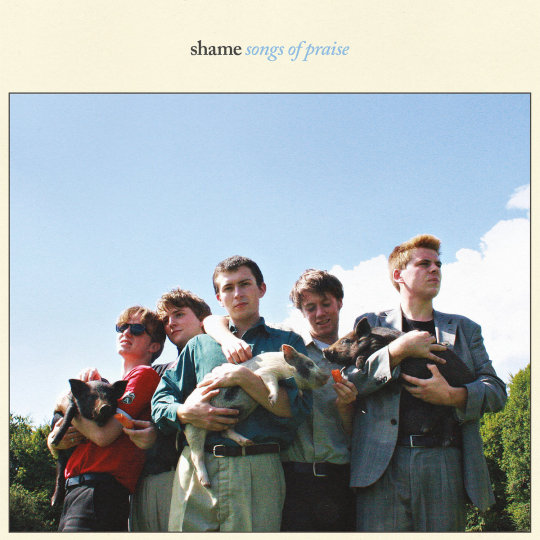
Far and away my favorite album of the month, Songs of Praise is the debut record from London-based post-punk group Shame. It’s an aggressive, moody, and surprisingly poetic album that’s currently filling the IDLES-shaped hole in my heart. Cold and grey, angry and calculating, this is an unflinching and immaculate record that took me by surprise and still hasn’t let go.
...and the rest
This month we’ve also been lucky enough to get new singles from Camp Cope, Jack White, The Voidz, Unknown Mortal Orchestra, Troye Sivan, Ought, Palm, Alesana, MGMT, Savages, Franz Ferdinand, Car Seat Headrest, and Yo La Tengo. Whew.
We’re off to a good start, now let’s keep it together.
#tiny moving parts#lil wayne#ty segall#jpegmafia#jay som#migos#no age#drake#august burns red#jeff rosenstock#shame#music#2018
0 notes
Text
It Gets Brown: Swim Into The Sound's Guide to Ween
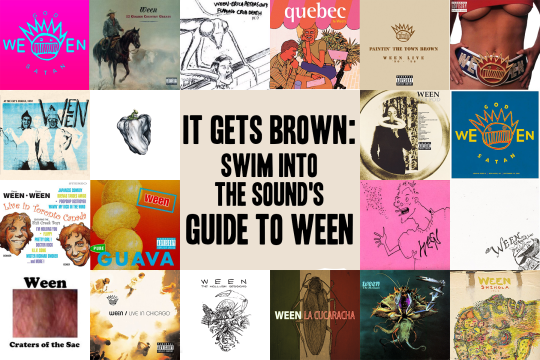
Every fandom begins somewhere. No matter what medium, format, time or place, everything you love can be traced back to a single moment when everything clicked into place. While we’re not always conscious of these origins, the fandoms that we can trace back to inception often feel so much more visceral and noteworthy than the ones that unfold gradually. Back in 2012 I heard a song that single-handedly sparked a fandom, ignited an obsession, and sent me on a years-long artistic exploration that remains one of the most twisted and wild experiences of my entire life.
The song in question was “If You Could Save Yourself (You'd Save Us All)” which was placed at the end of the 234th episode of a comedy podcast called Uhh Yeah Dude. I found myself transfixed by the song as I let the remaining minutes of the hour-long podcast play out on my dark gray iPod Classic. Mistified with a strange sense of familiarity, I clicked over to the information screen of my device to find the name of the band that performed the song. Ween. By the time that the ballad had faded out, I felt compelled to research the group further, and I quickly discovered why the song felt so familiar: I’d been listening to Ween since I was a child.
Thank You, Stephen Hillenburg
It’s already weird to think about what music fandom was like in a pre-internet world. As someone born in 1993, I feel like I’m part of the last generation to experience the “entertainment oasis” that came with only having access to the physical media that’s on-hand. When you were a kid with five CDs, endless free time, and zero taste you’d find yourself listening to the same things over and over again without thinking twice.
Now that the internet is pervasive enough, platforms like iTunes, Youtube, and Spotify have made the entertainment oasis a thing of the past. These services have changed our world so rapidly that it’s interesting to cast your mind back to the time before they existed… though there’s still no accounting for taste.
One of the first CDs that I ever owned was Spongebob Squarepants - Original Theme Highlights which is a 12-minute compilation of songs from the first two seasons of the Nickelodeon show. This album, along with Eiffel 65, Sum 41, U2, and Spider-Man comprised the highly-unlikely and undeniably-absurd quintet of albums that made up my first CD collection. Looking at this list now, it seems inexplicable and extraordinarily embarrassing (especially given how many times I listened to each of these) but like I said, being 8 in 2001 was weird.
I listened to those five albums enough to memorize every one of them word for word because I had nothing else. Of the Spongebob record’s 12-minute running time, 61 seconds are taken up by a Ween song called “Loop De Loop.” I didn’t have last.fm then, but I would hazard a guess that I listened to this song at least a few hundred times throughout my childhood.
Ween resurfaced within the Spongebob oeuvre several years later when “Ocean Man” was used in The Spongebob Squarepants Movie as the film’s closing credits song. I didn’t listen to that movie’s OST nearly as much as I did Original Theme Highlights, but I still heard “Ocean Man” enough times for the song to make a lasting impact on me.
Thanks to Stephen Hillenburg’s apparent fandom of the band, I found myself overwhelmingly susceptible to nostalgia when I heard “If You Could Save Yourself” close out that podcast in 2012. This childhood band had wormed their way back into my musical consciousness in the most unexpected way possible over one decade after I was first exposed to them. I ended up diving into Ween that same year, and the band proved themselves to be a powerful creative force that I desperately needed in my life at that time.
For the sake of not turning away any more potential readers with further hyper-specific personal details, I’m now going to remove myself from this narrative as much as possible and formally introduce you to the band called Ween.
The History
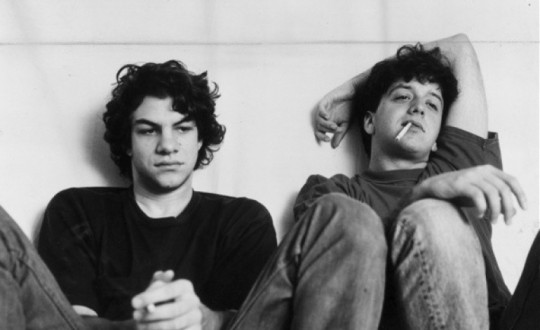
Ween is a band from New Hope, Pennsylvania comprised of Aaron Freeman and Mickey Melchiondo Jr. Formed in 1984, the two met in a middle-school typing class and quickly bonded over their shared love of music and drugs. Eventually, this unlikely pair of slackers set out to record songs of their own using nothing but the cheap-ass equipment they had on-hand. Donning the personas of two brothers, Freeman and Melchiondo became Gene and Dean Ween respectively. Together they combined to form Ween, and the duo began crafting unrelentingly-goofy and drugged-out lo-fi indie music that was “designed to be obnoxious.”
For five years, the pair recorded a series of cassette-based releases in which Gene sang, Dean played guitar, and a pre-recorded beat kept time. Occasionally joined by Chris Williams on bass as “Mean Ween” the group quickly garnered a cult following that was drawn to the band’s absurdist approach to music, songwriting, and life.
By 1990 Ween had released a (relatively) polished debut that culled the best of their cassette tape-era tracks into one commercial full-length. Within one decade of their inception, they were four records deep, playing with a full band, and hailed as one of the weirdest acts in indie. Through sheer persistence, Ween has managed to cultivate and maintain a hyper-dedicated fanbase that simultaneously allowed for the group’s continued success while also allowing them to fly under the radar.
They've had a few one-off hits throughout the years that gained them mainstream visibility, but for the most part, Ween has primarily remained a cult band with a long list of semi-impenetrable albums, and an even longer list of b-sides and bootlegs. While the history is important to know, these are just the (very) broad brush strokes of a band that’s had a 3+ decade career. More important than the timelines and the drama is the actual music, so let’s talk about that.
The Sound

The reason I felt the need to create this guide is a simple one: Ween is one of my favorite bands of all time. Unfortunately, as incredible as their music is, they don’t go out of their way to make it particularly accessible. While there’s a slight “barrier to entry” to most of their records, they’re a band that’s worth the effort. Additionally, once their music does click, it’s actually hard to be a “casual” Ween fan because their work is so vast and diverse that each song becomes a rewarding adventure that stands on its own. They’re a group that practically begs to be worshiped, but they definitely test your faith in the beginning.
In spite of (or perhaps because of) their extensive body of music, it’s often hard for would-be fans to find a proper entry point into the group’s work. That goes double for an outsider who jumps into Ween’s discography with no primer or guidance from a long-time fan. In a way, you have to “build up a tolerance” to their sound in order to fully-realize the brilliance of their earlier albums. It’s a long and twisted journey, but it’s worth taking.
Perfectly described by Hank Shteamer as “pan-stylistic,” Ween is a genre bender in the truest sense. Never limiting themselves to one sound or concept, the members of Ween actively embrace just about every type of music under the sun. This is another reason why it can be hard to get into the band. Because they play a little bit of everything, any given Ween album can contain up to a dozen different sounds, accents, and goofy lyrics, so knowing where to start can vary depending on the listener’s taste.
What’s impressive is not the fact that Ween can play every genre, but that they can play every genre competently. Within minutes they can jump from hard rock to country to funk to piano balladry, all without breaking a sweat. More importantly, this isn’t done in some half-assed ironic way, every genre that Ween tackles is done in a full, loving, and complete embrace of the sounds they’re emulating. It’s a universal reverence for art, music, and creativity.
It's not that their style is hard to define, it's that they’ve invented their own style.
Early on in their partnership, Gene and Dean coined the term “Brown” to describe the band’s sound. Explained as “fucked up, but in a good way,” Brown is the all-encompassing term (and a major piece of mythology) used by the band and its fans when discussing the music. You can’t quite put your finger on it, but you’ll know it when you hear it. Brown knows no genres. Brown knows no limits.
The most frequent comparisons made are typically the Grateful Dead or Phish, but even those do Ween a disservice because it makes them sound like a jam band which they are decidedly not. A more apt comparison would be to Frank Zappa or Captain Beefheart but even then, Ween stands alone from each of these artists as a unique entity.
In fact, the closest reference point to Ween may not be music at all, but the broader concept of Gonzo. Unedited, profane, druggy, sarcastic, personable, exaggerated, humorous, and eclectic. All of these words are simultaneously accurate and describe Ween’s music to a T.

Jumping back to why I felt the need to create this guide: Ween’s early stuff is rough and dissonant, and their later material can be more serious and spotty. As a result, they're a band that benefits significantly from a specific listening order if you genuinely want to sink your teeth into them. If you don't have a Ween fan in your life, I'm here to be your faithful Ween shaman. This is an album-by-album guide, telling you what to listen to, providing context, and walking you through each of the group’s core works.
I’ve successfully used this same path to turn two other people into fans, and (for the most part) it follows a largely agreed-upon “canon” according to other hardcore fans. I’ve merely composed the words to go along with each record in an attempt to explain why each one is special. While I’m always a proponent of listening to albums in whole, I’ve also selected three cuts from each LP that offer brief glimpses into the variety of sounds and genres contained within each record. You can check out these select tracks in this Spotify Playlist if you’d like, but I’d still say each of these albums are worth listening to in-full if you have the time.
Now that we’ve got all that out of the way let’s dive in.
1 | The Mollusk (1997)
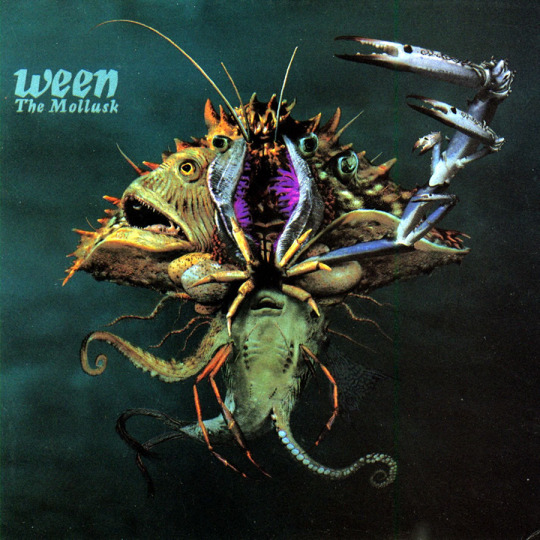
By far the most commonly-agreed-upon starting point amongst Ween fans, The Mollusk strikes a perfect balance between polished accessibility, outlandish weirdness, and objective greatness.
Opener “I’m Dancing in the Show Tonight” immediately sets the tone for the record, kicking things off with a jaunty tuba-filled track featuring multiple distorted vocal takes all simultaneously fighting for the listener’s attention. It’s a curveball right off the bat, but it’s also just short enough that the listener may write it off as a one-off intro track.
From there, the songs range from woozy psychedelia on “Mutilated Lips” and “It’s Gonna Be (Alright)” to rip-ass rock on “I’ll Be Your Jonny On The Spot.” There are straight-up novelty songs like “Waving My Dick In The Wind” and “Blarney Stone,” but even the weirdest tracks here serve to add an additional layer onto the record’s barnacle-ridden Celtic aesthetic.
Most notably, the aforementioned “Ocean Man” was expertly-deployed as the credits song to 2004’s Spongebob Squarepants Movie and probably remains the single best entry point to the rest of the band’s work. Perfectly singable, wonderfully upbeat, and just weird enough to feel “Weeny,” “Ocean Man” will forever be the definitive entry-level Ween song.
2 | Quebec (2003)
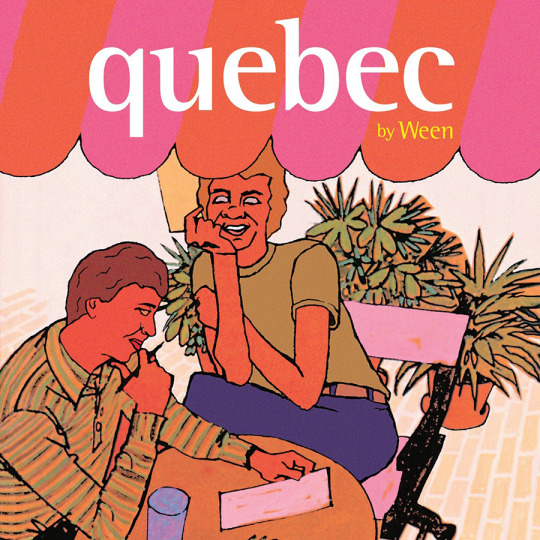
Shiny, high-flying, and shockingly mature, Quebec is a melancholic sample platter of everything Ween had mastered after nearly two decades of music creation.
Three years after one of the most polished records in their discography, Ween went back to the drawing board and decided to throw themselves headlong back into the absurdity that got them where they were. Mixing their early psychedelia with very adult-like sadness and grounded realism, Ween managed to craft one of the most well-rounded records in their entire discography.
Featuring some of the most stoner-ready tracks in their discography alongside some of the most shred-worthy, Quebec is a testament to the group’s staying power. With 15 tracks stretched over 55 minutes, Quebec helped the band find a second wind through “Transdermal Celebration” which became a relative commercial success. Occasionally the scope swells to grand operatic scales on songs like “If You Could Save Yourself” only to rapidly shift back to childish goof on songs like “Hey There Fancypants.” In jumping between these vastly different voices, the band fleshed out their sonic scale and landed on a formula that cemented their position as all-time greats.
3 | Chocolate and Cheese (1994)
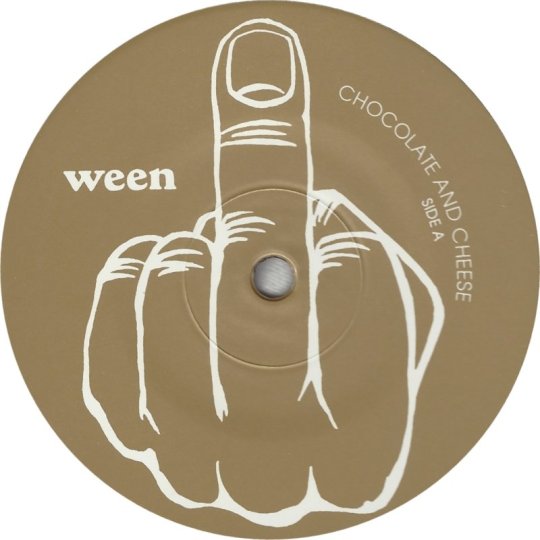
Chocolate and Cheese takes the variation of Quebec, adds the outlandishness of Mollusk, and then jumps five steps further into humor.
Probably the earliest “accessible” album of the band’s career, Chocolate and Cheese is often cited as an alternative starting point to Mollusk mainly because it bears more of the band’s trademarked comedy and goofiness throughout. Unfortunately, this album is also the tipping point for some fans in this early part of the Ween journey because if you don’t like this record, it’s unlikely you’ll enjoy anything that comes after it.
While the production on Chocolate and Cheese is slightly more limited than Quebec, this record contains the most ideas per square inch than any other record in the band’s career. Some later albums are more “out there,” but nearly every track on C&C stands alone as a well-polished, fleshed-out, and fully-realized concept. Not necessarily the “weirdest” album in their repertoire, but when every track is different, you never have the chance to be bored.
“Voodoo Lady” is a groovy tongue-twister of a bop, “Take Me Away” is a hard-charging opener, and “Mister Would You Please Help My Pony?” is yet another ‘childlike’ Ween track that, if it weren’t for a few scattered “fucks,” probably could have fit in on an episode of Spongebob. There’s a little something for everyone, and no song resembles anything close to the one that came before it.
The definitive song on Chocolate & Cheese comes in the form of its 13th track “Buenos Tardes Amigo” which weaves an epic 7-minute spaghetti western tale of drama and betrayal. It’s a passionate track that’s impeccably-delivered with a jaw-dropping guitar solo centerpiece, all of which makes for a narrative that’s deserving of your full attention. The fact that it’s followed up by a track called “The HIV Song” is a quintessential Ween move.
While the Mollusk, Quebec, and Cheese make up for a perfect triumvirate of “Beginning Ween Albums,” we now take a few steps further into obscurity with the middle three records in this guide. Featuring later-career albums that are slightly less accessible, and just a little spottier, we now find ourselves in the depths of it all.
4 | White Pepper (2000)
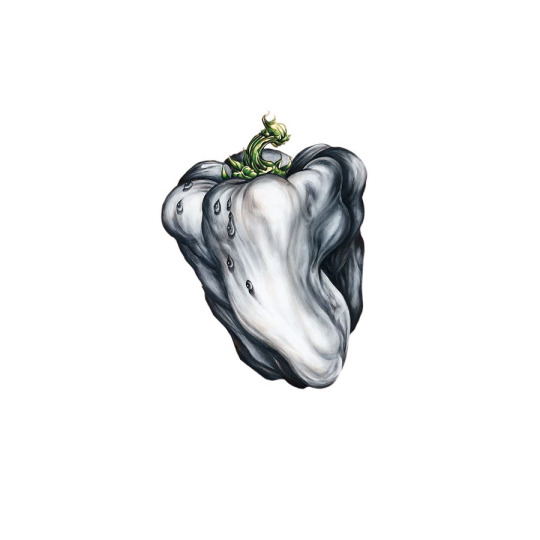
White Pepper is Ween’s most impeccably-produced album featuring a 40-minute collection of powerful would-be radio hits.
Following the (again, relative) success of The Mollusk, the band went back into the studio for several years and emerged in 2000 with White Pepper which represented a noticeable slide towards cleaner production, shockingly-polished instrumentals, and decidedly more thoughtful lyrics.
Perhaps fittingly, there is almost nothing “Brown” about White Pepper, even still, the group manages to find moments of grit with songs like “Stroker Ace” and “The Grobe.” Conversely, there are also uncharacteristically breezy songs like “Even If You Don’t” and “The Flutes of Chi,” but even these objectively-pleasant songs are undercut with a hint of unmistakably Ween-ey humor once you begin to analyze them past the surface level.
The best example of this is “Bananas and Blow” which sounds like a pitch-perfect Jimmy Buffet song if he wasn’t so worried about turning off his listeners with blatant casual drug use. This track features “Buenas Tardes”-esque southern guitar work, female backing vocals, and an island-worthy rhythm section. The exotic instrumental is paired with a wispily-delivered and heavily-accented delivery by Gener depicting an isolated potassium-rich drug bender. Indeed a paragon of the Ween dynamic.
5 | 12 Golden Country Greats (1996)
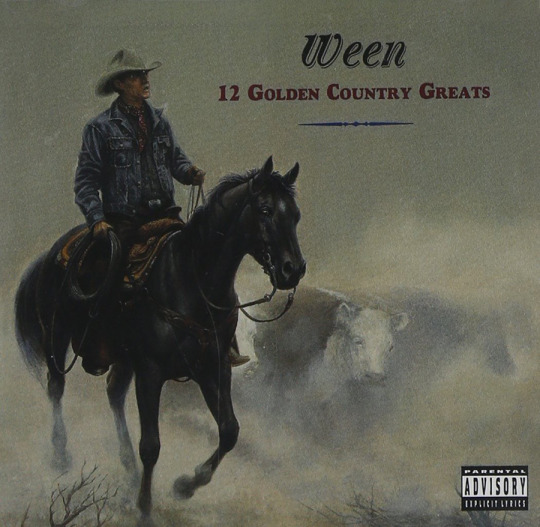
12 Golden Country Greats is precisely what it sounds like: a collection of wonderfully-creative and surprisingly-earnest original country tunes.
Even if you’re not a country fan, the way that Ween finds a way to impress their signature sound on ten songs of differing speeds is worth witnessing. From high-speed hoedowns (“Pretty Girl” and “Japanese Cowboy”) to remorseful bluesy tracks (“I’m Holding You” and “You Were The Fool”) 12 Golden Country Greats hits every measure with pitch-perfect accuracy and surprising grace.
Most impressively, “Piss Up A Rope” has managed to worm its way into all-time classic status as one of the group’s live staples. On the same tip, the heartache-inducing “Fluffy” represents the exact tonal inverse of “Piss Up A Rope,” but still manages to strike a balance between these two mid-nineties goofballs and one of America’s oldest music genres.
It’s not the album that you’d expect following the slight commercial success of Chocolate & Cheese two years earlier, but that’s what’s great about Ween: every move is unexpected, yet they manage to pull it off flawlessly. While 12 Golden Country Greats is obviously as diverse as any of their other records, the band manages to make a full-album genre experiment look like a cake walk.
6 | La Cucaracha (2007)
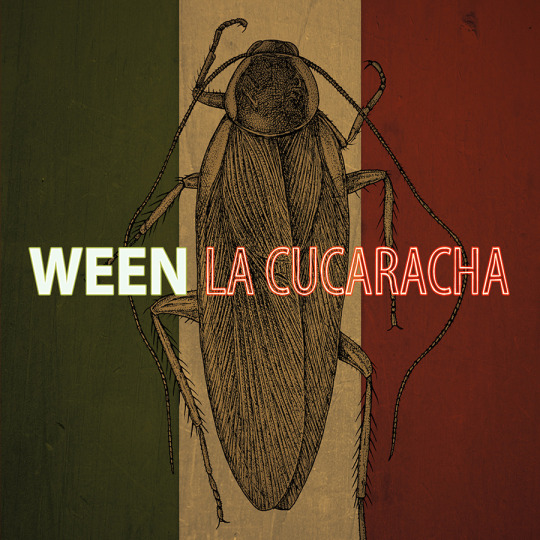
La Cucaracha is the Ween’s carefree late-career album and the long-form reflection of a decades-long journey.
Already over a decade old at the time of this writing, La Cucaracha is, sadly, Ween’s latest record. While they’ve had a few public brakes and even a full-on hiatus in recent years, it’s still surprising that La Cucaracha is the last we’ve heard from the band in any official capacity. I say that both because I want new songs, but also because this album is a bit of a sour note to go out on. I almost considered cutting it for the sake of the listener experience, but eventually, I decided that I want this list to be comprehensive.
At the end of the day, La Cucaracha isn’t a bad record, it just feels less inventive than everything else that’s come before it. While there are still some scattered highlights like “Your Party” and “Fiesta” there isn’t much to write home about on La Cucaracha, at least nothing that you couldn’t get from earlier releases.
The album’s single most significant contribution comes in the form of “Woman and Man” which is an 11-minute epic that erupts into a ferocious and densely-packed 8-minute instrumental jam.
After a slightly saggier middle section, we’ve reached the final trio of Ween albums. This is where things get weird. This is where things get great. This is why the previous albums were necessary. The build-up is worth it because the payoff is beautiful. In this final grouping of albums, we fully-descend into Brown, and everything will begin to make sense. Brace yourselves.
7 | GodWeenSatan: The Oneness (1990)

GodWeenSatan is the group’s full-album unveiling to the world with over two dozen songs of lovesick mania.
On Ween's debut, we find a surprisingly-accessible early version of the band that is already brimming over the top with outlandish ideas. Clocking in at 76 minutes with 29 tracks, nearly every song on here hovers around the 2-minute range which allows the band to showcase their wide variety of genres, voices, and whacky lyrics. Throughout the LP the duo finds themselves quickly springing from one idea to the next with no warning, no regard for the listener, and no concern for perceived “cohesiveness.” Most songs end in improvised conversations, explosions of laughter, or simply incoherent screaming. It just sounds like two teenagers who are having making music... because that's exactly what it is.
While there’s still more genre variation than any other band, the group occasionally finds themselves visiting similar sounds throughout the record. “You Fucked Up” and “Common Bitch” are both explosive balls-out rock tracks. “I’m In The Mood To Move” and “Blackjack” are pitch-shifted stream-of-consciousness ramblings/word associations placed over minimalistic instrumentation. “Cold and Wet” and “Nan” both find Gener adopting an Adam Sandler-esque voice over rolling bluey riffs.
Meanwhile one of the album’s most ‘traditionally pleasant’ songs “Don’t Laugh (I Love You)” ends in one minute of off-puttingly-loud screeching and uncontrollable laughter, and if there’s a better encapsulation of Ween than that dichotomy, I don’t know it.
Despite how early on it is in their career, it's incredible how polished and well-produced these tracks sound thanks to a 2001 remaster. While GodWeenSatan has a few rough edges, you can already feel the band laying down the framework for their future releases, plus the tunes are absolutely undeniable. It will overstimulate your senses.
8 | Pure Guava (1992)
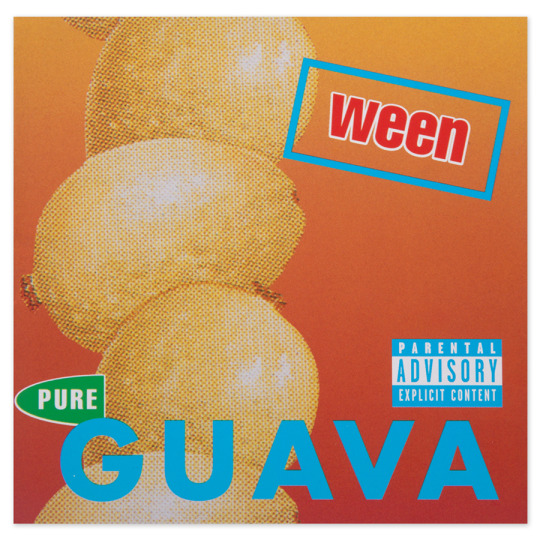
Featuring the band’s breakthrough hit, Pure Guava is a psychedelic album in a style that only Ween can do with songs that only these minds could have conceived.
Ostensibly a balance between the ideas founded on their first album and the whacked-out trip of their second album, Pure Guava is Ween at the peak of their lo-fi powers. Both visually and stylistically reminiscent of John Frusciante’s Smile from the Streets You Hold, Guava offers the most refined version of the band’s early sound before they jumped to the relative polish of Chocolate and Cheese.
Songs like “The Goin' Gets Tough From The Getgo,” and ��Reggaejunkiejew” play out like absurdist exercises in which the band is testing the edges of their own sanity by repeating a single sticky phrase over and over again atop an infectious groove. On the other end of these twisted experimentations are tracks that fly in the complete opposite direction stylistically, lyrically, and instrumentally. “Don’t Get 2 Close (2 My Fantasy)”is a soaring conceptual ballad in which the band volleys a non-stop barrage of unforgettable psychedelic imagery at the listener. All of these phrases culminate in a Bohemian-Rhapsody-like vocal break that shines forth unlike anything else in the band’s discography. It’s something so original and unique that it couldn’t thrive anywhere but this album.
9 | The Pod (1991)
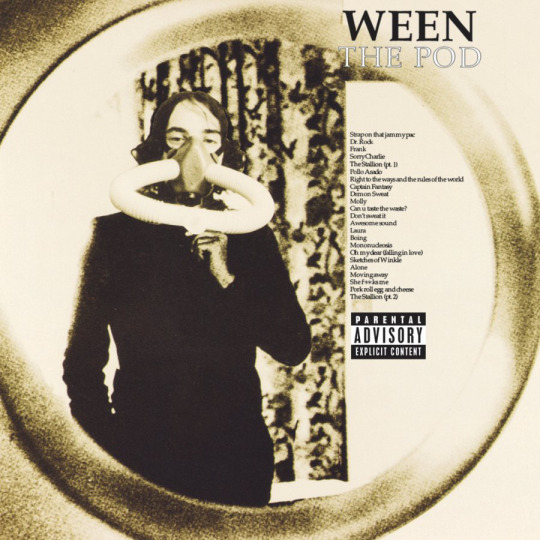
The Pod is Ween’s secluded, deranged, and drugged-out masterpiece that quickly reveals its brilliance to those willing to listen.
Even making it this far into Ween’s discography, you may still feel a palpable reaction of “what the fuck” when you first hit play on The Pod. Mutch like adjusting to the warm water of a hot tub, or learning to enjoy your first alcoholic beverage, The Pod comes with a brief adjustment period, but once it’s over, will be an experience you’ll remember forever.
Deeper and darker than anything else the band has ever recorded, it’s awe-inspiring how many impeccable melodies and brilliant ideas are hidden just one layer beneath a wall of practically-impenetrable sound. “Strap on that Jimmypac” is the opening curtain raise that attempts to acclimate the listener to the unique brand of narcotized journey they’re about to embark upon. From there each additional track throws the listener for a loop while also maintaining the same thematic range of strung-out haziness throughout. “Dr. Rock” is a punchy punky rock song. “Sorry Charlie” is a woozy saloon track that drips with regret. “Pollo Asado” is literally just a guy ordering Mexican food over muzak. It’s insanity.
Some of the most stellar tracks in the band’s discography come midway through the record in the form of “Captain Fantasy,” “Awesome Sound,” and “Demon Sweat.” These represent some of the most distorted, far out, and extreme lengths the band ever went to musically. Each song generally runs around 3-4 minutes, indicating a little more of a full-album approach than the sketchbook-like approach we saw on their debut.
The Pod is a true masterwork of a band without boundaries, traditions, or limits.

But Wait, There’s More
As much as I love Ween and these albums, this guide barely scratches the surface of the band’s output. There are B-side compilations, two EPs, several officially-released live albums, multiple different solo projects, demo sessions of most albums, radio recordings, and five of those early cassette releases. On top of all this, there’s Browntracker.net which hosts literally thousands of obsessively-made fan-created live recordings.
In short, there’s more Ween than you can shake a stick at, and if you wanted to, you could probably dedicate the rest of your life to listening to one of these a day and still not hear them all. But that’s one of the reasons that the band has such a dedicated fanbase, and it’s one of the things that makes being a Ween fan such a rewarding experience.
Finally
Ween revealed themselves to me at a pivotal time in my life. A time when I didn’t know what I wanted to do or who I wanted to be. A time when I was burnt out life, tired of music, and couldn’t find joy in anything. That was a soul-sapping and destructive feeling, and it’s crushing when it’s something you recognize but can’t shake.
The way that Ween balances abject silliness and utter sincerity felt like a cosmic revelation to me at the time. As I dug deeper into the group’s mythos and their music, Ween’s approach to the world came to influence my own. Simultaneously embracing absurdity and seriousness (or packaging one inside of the other) has been a comedic voice I’ve adopted for years at this point. As much as I love reveling in this bipartisan goofiness, recent events in the world have also given me a newfound appreciation for wholly genuine acts and real emotions. It was fun walking the “Ween line” where no one can quite tell which side of the fence you lie on, but it’s no longer my default approach to life as it was back then.
Aside from this newfound voice though, Ween’s discography along with John Frusciante’s PBX Funicular Intaglio Zone served as part of a one-two punch that year that reinforced and reignited my love of music. These albums blew the hinges off my preconceived notions surrounding art and single-handedly proved to me that there’s still room for untethered creative expansion in the world.
Ween helped remind me that the world is a beautiful place and it revealed to me that there are unheard and unfathomable ideas living within all of us. There are goofy lyrics and serious ballads. There are beautiful paintings and inspiring words. There are things that only you could ever think of, and these records serve as concrete proof that the only limits we place on ourselves are self-imposed.
There are beautiful, goofy, wonderful ideas inside your head that have never been heard, seen, or read before by anyone else. Concepts that, after millions of years, have never been conceived until you came along. And until we can unlock those ideas within ourselves, we might as well appreciate the sounds of others.

Supplemental Material
Dean Ween - Guitar Moves
God Ween Evan Podcast
Ween: An Abbreviated History
Ween - Wah Wah
Ween's Chocolate and Cheese (33 1/3) Paperback
Ween’s The Mollusk Turns 20: An Oral History By Mickey Melchiondo
Weenology 101: The Early Days of Ween Documentary
WTF Podcast - Aaron Freeman
#Ween#Discography#guide#90's#alternative#The Mollusk#Quebec#Chocolate & cheese#White Pepper#12 golden country greats#la cucaracha#pure guava#god ween satan#the pod
39 notes
·
View notes
Text
Swim Into The Sound’s 20 Favorite Albums of 2017

Last Year
2017 sucked. Politics have sucked. People have sucked. My diet has sucked. Everything is falling apart in slow motion. The entire year has felt like one prolonged exercise in frustration as we collectively fight back with about as much power as a punch thrown in a dream state.
I spent the first half of this year working a job that was fun, creatively fulfilling, paid well, and in my field. That ticks pretty much all of the “career boxes” one could ask for, so as turbulent as the gig was, I was disappointed when it came to an end over the summer. I’ve spent the back half of this year wrangling random freelance gigs, volunteering, looking for a job, and reveling in ambiguous employment.
It’s no coincidence that, after a six-month break, I began writing here regularly back in May because I truly had no other creative outlet at the time. I’d just like to say: thank God for this blog. Swim Into The Sound has proven to be an excellent way to expel my oft-overflowing creative juices, and writing here has provided me more solace, motivation, and guidance than I can ever put into words.
I’d also like to extend a personal and sincere thanks to you for reading. Whether this is your first time here or you’ve been subscribed for months, every reader means the world to me. On top of increased readership, I’ve also received some absolutely incredible responses to my writing this year. I’ve grabbed the attention of artists I love and podcasters that I look up to. I made the front page of /r/indieheads (my internet home), and people that I know in real life have discussed Swim Into The Sound write-ups with me. Most of the time I just write this stuff, edit it until I’m slightly less ashamed, then throw it out onto the internet. It’s forever-astonishing to me that anyone engages with these words, so thank you. It’s been a spectacular journey, and there are already many cool projects brewing for 2018. I can’t wait to see where things go from here.
To keep from drowning you in personal details, let’s just get straight to the main event. As bad as some parts of 2017 have been, it was actually an incredible year for music. Unlike the past, 2017 has felt like a year with no “clear” album of the year winner. There was no Blonde, Carrie & Lowell or To Pimp a Butterfly. No album that made a massive culture-wide impact, or even wormed its way into my list of all-time favorites yet. Instead, it’s been a year of many, many, many great albums, which in some ways is more exciting.
2017 has also been a year of upheaval. A year where women could rule, creeps could be called out, and our world was at risk of ending at any moment. It’s an exciting, hopeful, draining, and terrifying time to be alive. It has also been a year of unexpected surprises. I’ve found welcome homes in unexpected places, both online and in real life, and these communities have helped make me a stronger person.
2017 was also a year of discovery. I've been to more concerts in the past 12 months than I have the rest of my life combined. Thanks to a free 6-month TIDAL subscription, I’ve made more musical discoveries in 2017 than any year previously. From Hamilton to Swans, I’ve broadened my horizons more this year than ever before.
There are a lot of things to say about 2017, but if nothing else, it was the year that I learned about the power of weirdness. The strength that all of us have to stand up to the people in power. The creative potential that lies within all of us. I’ve found excitement in the new, and comfort in tradition. As always, this blog is a place to celebrate both old and new, but December specifically is a time to pause and reflect on the year that’s just passed. The things that inspire. The things that bring hope. The magnificent creations.
I’ve been celebrating 2017 for the entire month of December, and this post officially marks the end of “List Season” here on Swim Into The Sound. If you haven’t checked out our Diamond Platter Awards or Un-Awards, please feel free to peruse them for an even more complete picture of both the good and bad that 2017 has had to offer. But from here on out we find only the great. The impeccable. The cream of the crop. The best pieces from a year of many fantastic works.
So here’s to the weird. The new, the fresh, and the bold. Here’s to staying strong. Here are my 20 favorite albums of 2017.
20 | Slowdive - Slowdive
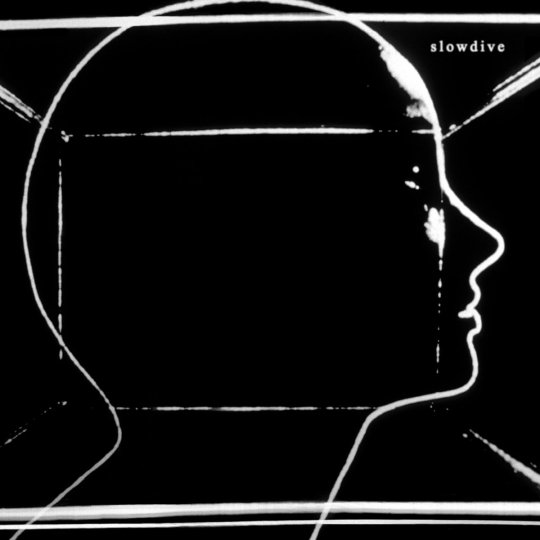
Slowdive’s self-titled album plays out like a fever dream. From its first notes, the record warmly envelops your entire body, consuming you like a long-lost childhood memory. As the album wears on, it transports the listener further, slowly shepherding them as they venture from their starting point on earth until they’re floating weightlessly in space surrounded only by far-off glittering lights and nostalgic memories from a life that’s not their own.
In keeping with the introduction’s theme of “discovery,” Slowdive is a group that I’d never listened to until this year. Needless to say, the fact that the band’s self-titled fourth album was their first in 22-years was lost on me. Despite the fact that I went into the album fresh and lacking context, the impact of Slowdive’s 2017 release was still severely felt.
There’s a sense of strange familiarity and nostalgia at play throughout Slowdive. Songs like “Star Roving” and “Sugar for the Pill” have an immediately-accessible grungy 90’s sound in which Sonic-Youth-esque vocals pair with reverb-ridden post-rock guitars and precise drumming. Using this word feels weird (especially for a record that isn’t even my favorite of the year), but Slowdive is perfect. It’s a flawless self-contained adventure that’s both accessible to newcomers and satiating to long-time fans. It’s the purest distillation of what dream pop is all about. It’s a monumental record of whirring soundscapes that shift like slowly-moving giants and crash against the listener like dense ocean waves. Slowdive is a masterful release from a band who’s not afraid to wait for greatness.
19 | SZA - CTRL

A “summer album” if I’ve ever heard one, SZA’s long-awaited debut LP is a bright, shimmering, and sunny record packed with songs of unrequited love punctuated by brief moments of carefree enjoyment. Songs jump from soaring infectious melodies to harrowing tales of normalcy at a moment’s notice, making for a manic listening experience that’s just as fun-loving as it is heartbreaking.
CTRL is an album about a normal girl by a normal girl. A collection of songs about the human experience from an honest and decidedly-female perspective. It’s like the R&B version of My Woman sprinkled with breakneck vocals, raw lyricism, and Blonde-esque instrumentation. Even when singing about well-trodden topics like late-night hookups, SZA manages to make everything feel refreshing and new. You get the sense that countless long hours and many late nights were spent crafting this album because the entire LP feels well-worn, well-loved, and well-thought out. CTRL is a single confidently-delivered package that glistens and beams in the sunlight of the listener’s heart.
18 | Jay Z - 4:44
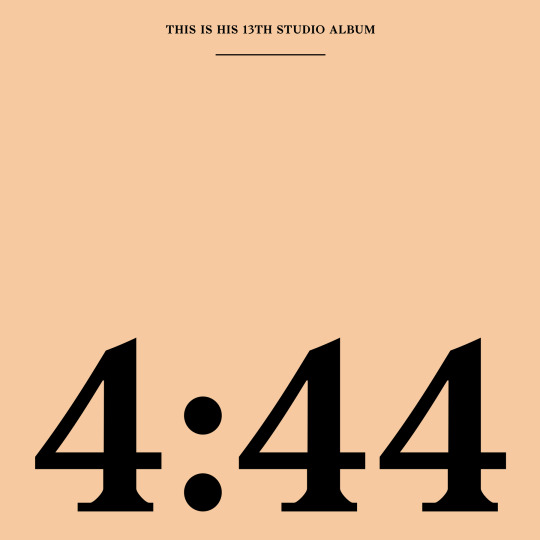
It’s embarrassing to admit, but it’s confession time: until this year I’ve never listened to a Jay-Z project in full. I'd heard the hits, the guest verses, the collaborations, and I know he's got a trilogy of near-perfect hip-hop albums, but to be honest, I've just never been that into Mr. Carter’s approach to rapping. When I heard people raving about his thirteenth album, I decided that I had nothing to lose, so I took full advantage of my TIDAL subscription, set my reservations aside, and give it a shot.
Ever since Beyonce’s 2016 album I’ve been invested in the "Lemonade Narrative," and it turns out 4:44 followed that album up directly by providing listeners with some sense of conclusion and finality.
While I came for the People Magazine drama, I stayed for everything else. It turns out 4:44 is a stunning, honest, and compact album that features Jay-Z at his most reflective and adult-like state yet. I guess scandal, nearly losing your wife, then having twins is enough to change anyone for the better. On top of Jay's refreshing take on himself, we have an album that's centered around his old sample-based soul sound. Helmed entirely by No I.D., this led to a record that feels complete, consistent, and singularly-visionary throughout. While Jay-Z has been resting on his laurels artistically for some time, this album proves he still has a strong voice, important things to say, and an impactful message that's worth conveying in 2017. As he moves into the position of hip-hop's father figure, I'm now excited for the first time in my life to see what Mr. Carter has in store for us next.
17 | Father John Misty - Pure Comedy
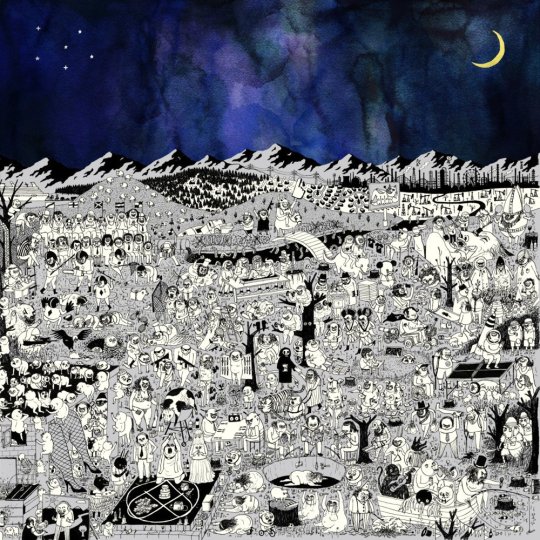
It was unclear where Father John Misty would go after 2015’s breakthrough I Love You, Honeybear. Turns out the answer was everywhere. From tormenting Ryan Adams to duetting with Tim Heidecker, Tillman’s extra-musical antics are simply too innumerable to list in one single blurb. The good thing for fans was, as overwhelming as the avalanche of news updates sometimes felt, each headline managed to be entertaining and (more often than not) resulted in fresh music.
When it came time to release his third album under the Father John Misty persona, Josh Tillman turned his gaze outward. Shifting from the self-destructive personal tales of Honeybear, Pure Comedy finds Misty openly waging war against the universe and everyone in it. In the album’s slow-mounting opening track, a winding piano skitters around Tillman’s biting stanzas, ensuring that neither it nor the listener are trampled underfoot. As the lyrics outline the cosmic absurdity of existence, the piano pulls away, the vocals mount, and a gently-brushed drum begins to keep time just as Tillman belts out the album’s title. It feels like an announcement. An exercise. The catharsis of two albumless years and an election gone awry.
Featuring grand, swelling, and sometimes rambling songs, Pure Comedy blurs the lines between a post-apocalyptic near-future and present day. The album becomes a microscope through which humanity is observed, and everyone’s a smug asshole including our narrator.
The album’s definitive moment comes with its last two songs “So I'm Growing Old on Magic Mountain” and “In Twenty Years or So” which together make for an epic 17-minute meditative send-off. Both songs are massive, colorful, and awe-inspiring ballads that hit you with a crippling emotional gut punch before landing on what’s essentially a twist ending. Best experienced as the conclusion to the album’s 74-minute journey, Pure Comedy may take some time to sink in, but once it does, it will linger with you forever.
16 | (Sandy) Alex G - Rocket

Alexander Giannascoli is an enigma. A wonderfully-gifted singer, willfully-obtuse songwriter, and prodigy of melody, Alex G first rose to prominence through a series of increasingly-prolific Bandcamp releases culminating in DSU, his indie-wide breakthrough. Since then, he’s made a name for himself continuing to record artistically-acclaimed small-scale releases in between working with Frank Ocean, and more recently, he’s undergone a name change rebranding himself by adding “(Sandy)” to the front of his title.
Much like the man behind the music, Rocket is a mysterious and wandering album full of bright sounds and brilliant ideas. From jaunty country duets to auto-tuned croons, and even hardcore noise rock screams Giannascoli wields an astonishing amount of genres effectively throughout Rocket’s 41 minutes. Despite the fact that nearly every song takes a different musical approach, the entire record maintains a strong sense of self and wholeness throughout. Each additional sound and layer of weirdness adds merely one more brush stroke on to the bigger story that’s already been painted, resulting in a beautiful and one-of-a-kind work.
15 | Kendrick Lamar - DAMN.

Kendrick Lamar’s fourth LP is one of the most important records of 2017. A shared experience, a communal soundtrack, and a cultural anthem, DAMN. is a stadium-packing monument to the marginalized, underrepresented, and underserved. Despite an impressive prelude, intricate self-referential throughlines, and conceptual frameworks (both real and imagined), the Compton rapper’s 2017 release is fantastic but falls just short of his last two LPs.
Taking neither the cinematic route of Good Kid, M.A.A.D City, or the jazzy cultural takedown that was To Pimp A Butterfly, DAMN. lies somewhere in the middle as a primarily-autobiographical record that finds Lamar contextualizing his existence within a broader cultural landscape. Each song is a personal unmasking of the man behind the music, and the demons that live within him. Each word lets the listener a half-step deeper into Lamar’s psyche.
While DAMN. isn’t bad, I feel the need to defend my decision to place it towards the back of this list (in opposition to apparently every other publication this year). At a certain point, whatever album followed the magnum opus that is To Pimp a Butterfly was destined to be a disappointment, or at the very least feel like comparing apples to oranges. Don’t get me wrong, I’ve been enjoying DAMN. all year (and listened to it more than almost every other album of 2017), but I can’t shake the feeling something is missing that kept it from being truly next-level.
Part of the reason I’d rank DAMN. below some of Lamar’s earlier albums is how piecemeal it feels. Songs stand alone (for better or worse) and rarely feel like part of a cohesive point that the artist is making. While this allows for some incredible variation and sonic experimentation, it also means DAMN. feels formless and aimless at times. The reason it gets #15 is that even a good-to-great Kendrick Lamar album is better than most other records any given year.
“HUMBLE.” is an unparalleled cultural anthem. “DNA.” is a blood-pumping, muscle-flexing, and stank-face-inducing track. “FEAR.” is a foreboding tale that recounts three pivotal ages in Kendrick’s life. Each of these songs have become standouts of 2017, and even some of Lamar’s best. A commentary on race, sexuality, and our nation, DAMN. is just a pit stop in the career of the greatest rapper alive.
14 | Idles - Brutalism

I’m a punk at heart. While I’m not as angry as I was back in high school, I often forget how deep those roots go and how influential that genre of music has been for me. Sometimes a record comes out that rekindles a long-lost love and can bring you back where you were at a specific moment in time, and for me that’s Brutalism. Hailing from Bristol, Idles are an English punk band that has been active for nearly half a decade at this point. After a string of EPs, Brutalism marks the group’s first official LP, and while it’s only the group’s debut, that five-year cooking time is evident in how fleshed out this record is. It feels like a career high, and it’s only our introduction to the band.
“Heel / Heal” kicks things off like a powder keg as the drum unrelentingly pounds forward with engine-like momentum. Soon singer Joe Talbot enters the mix and exasperatedly exclaims “I’m DONE” as the bass and guitar explode beneath him. Tracks like “Well Done” and “Date Night” perfectly capture the directionless anger that accompanies mid-20’s joblessness and sexual frustration, all captured in biting two-minute takes that bounce back and forth between the walls of the listener’s skull.
“Mother” is the album’s snarling high-point as the group weave a tale of matriarchal political betrayal. Hooking the listener with a twist chorus as a well-placed pause allows them to unveil a beautifully-poetic “Mother… Fucker.” It’s barebones, simplistic, straight-forward punk music that evokes the best parts of the Dead Kennedys, Black Flag, and The Sex Pistols, all presented in a surprisingly clean and well-produced 40-minute package.
13 | Tyler, The Creator - Flower Boy

There’s no doubt about it; Tyler, The Creator grew up before our eyes. The enigmatic figurehead of Odd Future made a name for himself at the dawn of the New Internet by leveraging a deft understanding of new media and shock value as fuel for the unparalleled rise of a group of 20-something Californian teenagers. Tyler’s solo career has wound from Horrorcore to Death Grips-esque industrial hip-hop, but on his latest LP, he eschews all that for a veneer up-front of transparency.
On the opening track “Forward” we witness Tyler as he wrestles with everything from waning popularity to racist cops to his own sexuality. It’s here that we begin to realize we’re in store for a more honest record. While the album still has some scattered bangers like “Who Dat Boy” and “I Ain’t Got Time!”, the remainder of the album is a jazzy and shockingly-reserved outing that allows Tyler to vulnerably open up more than we’ve ever seen before. “November” and “See You Again” both revel in nostalgia while “911 / Mr. Lonely” and “Where This Flower Blooms” offer hopeful rays of positivity that claw towards the possibility of a brighter future.
When Flower Boy leaked two weeks ahead of its scheduled release date, most of the discussion online surrounded “Garden Shed,” the album’s revealing centerpiece that, combined with a handful of references scattered throughout the record, seem to allude to Tyler coming out of the closet. While there have been several hints up to this point, Tyler addressing this topic so entirely feels like the coming of a new age. The hip-hop figure who made a name for himself eating cockroaches and embracing vulgar darkness is now crooning and singing about kissing white boys. It’s refreshing, shocking, and reassuring all at once. Undeniably his best work, the world now finds itself rapt as we wait for the newly-matured Tyler, The Creator to make his next move.
12 | Julien Baker - Turn Out The Lights
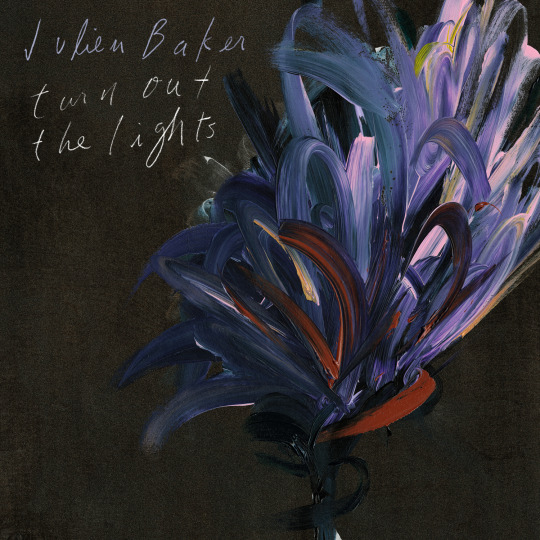
The most spiritual experience I’ve had with music this year (maybe ever) has been interacting with Julien Baker’s Sprained Ankle over the summer. I say ‘interacting with’ because it was much more than just listening. The album deeply affected me. It touched me. It was affirmation that everything was going to be okay and my feelings weren’t invalid. I spent a month or two going on long, multi-hour, half-drunk, wistfully-existential walks, the feelings of which I detailed in this write-up over the summer. What initially began as a lazy way to get my Fitbit steps in, quickly evolved into therapy. Something I needed to do to work out issues I was going through at that time. My first job had crumbled before my eyes, and I’d never felt more isolated and alone. When Baker announced her sophomore album was coming out by the end of the year, I found myself emotionally-drained, but hungry for more.
Turn Out the Lights begins with the arid creak of an old floorboard and a slowly-mounting piano line. That piano bleeds into “Appointments,” and soon Baker unveils herself as the force of nature that she is. The keys become eclipsed by a faintly-glimmering guitar as Baker regretfully explains that she’s spending the night at home. The song slowly mounts into an explosive cry of shaky self-assurance “Maybe it's all gonna turn out alright / Oh, I know that it's not / but I have to believe that it is.”
The remainder of the album’s songs follow a similar pattern, often focusing on one single instrument and Julien Baker’s incredible voice as she outlines tales of death, regret, and religion. It’s a heart-breaking album of stunning moments and impeccable songwriting that manage to articulately explain the dark, dull pain of a deep depression. I believe in God and Julien Baker.
11 | Smidley - Smidley

I first stumbled across Smidley in a half-hearted attempt research the bands who were opening for Tigers Jaw on tour this spring. After 33 minutes of listening to the group’s breezy self-titled record, I calmly collected myself, picked my jaw off the floor, and listened to the whole thing again.
Probably one of my biggest “surprises” this year, Smidley’s self-titled record is brought to us courtesy of Foxing’s frontman Conor Murphy and features a collection of ten refreshingly-unique pop-punk tracks. Often fueled by bile and anger, the songs on Smidley range from soccer mom takedowns to dead dogs, yet every song bears the same airy, happy, summery disposition, and I can’t think of any other artist that could deliver a chorus of “Fuck This” in such a pleasant tone.
While “Fuck This” may have been a personal chant of mine throughout 2017, the most striking moment of the album comes in its closing song. Preceded by a dark ballad of drool-inducing drug binges, “Under The Table” is a cresting pop-punk depiction of a relationship that finds Murphy singing the song’s chorus in a whispered voice. As he sings the song’s title, his words are punctuated by a towering drum strike and the track explodes to life as a set of double-tracked vocals pair with a bouncy bass and rigorous guitar. It’s a cathartic and throat-shredding closer that left me in awe, the ballsy ending note to an album that surprised me with brilliance from its first seconds.
10 | BROCKHAMPTON - SATURATION II

My first exposure to BROCKHAMPTON came when I sat down to listen to the first of three records the group released this year. Encouraged by a friend to check them out, I went into the Saturation Trilogy knowing nothing more than the fact that BROCKHAMPTON was an Odd Future-esque music collective that preferred to be labeled as a “boy band.”
The first thing I heard when I hit play on “HEAT” was 10 seconds of a garbled ambient hum. Suddenly a series of drum hits and a nastily-blown out bass forced their way onto the track accompanied by the first set of lyrics: “I got pipe dreams of crack rocks and stripper poles.” and every muscle in my body stiffened at once. After these introductory lines, the group’s members went on to trade bars about everything from race to self-medication over the song’s four and a half minutes before culminating in a brutish scream of “FUCK YOU.” I was hooked.
Gripped by the song’s lyrical and instrumental ferocity, I was hungry for more, but the next song sounded nothing like the first, and the third sounded nothing like either before it… yet they all worked. The first tape’s other highlights include the pop-culturally-dense “STAR” and “BUMP,” a track that jostles the listener from pop-punk-esque singing to gritty hip-hop bars. The boy band seemed to be intentionally trying to throw the listener off at every turn, packing as many ideas, sounds, voices, and topics into one project as humanly possible, and the crazy thing is that it worked.
At this point, it practically feels cliched to talk about BROCKHAMPTON's origin (a group of teens who met on a message board and all moved into a house to create music), but it feels necessary because it gives context to the group’s output. Having released three albums, a documentary, TV show, and tour all within 365 days is a feat. The fact that all each of these multimedia creations are of the same impeccable quality is what’s worth writing home about. BROCKHAMPTON are prolific young creators incarnate. Handling everything from production and art direction in-house, the group is DIY-ing their way to the top of the rap game through sheer brute force.
On Saturation II the group finds an even more refined sound. I went in cautious, wondering if they could even brush the same level of greatness as we saw on the first Saturation, yet the group managed to exceed even that. Early album cut “QUEER” represents a single-song encapsulation of what makes the group special, jumping from punchy “fuck you” hip-hop to infectious mid-verse chants to jarring crooned choruses, the song swings between multiple sounds and genres all in less than four minutes. On the opposite end of the spectrum, the penultimate “SUNNY” interpolates “Torn” by Natalie Imbruglia in a moment that sent me into a powerful spiral of nostalgia the first time I heard that iconic late-90’s guitar slide.
To put it simply, everything is better on Saturation II. The earworm-ready choruses are refined further, the verses are tighter, and the beats are even wilder. The whole album is more polished and cohesive with songs that can work on their own and exist within the context of the larger album. Flawless, unreal, and unlike anything else this year.
9 | Half Waif - form/a

Half Waif’s form/a EP is an introverted, lush, and secluded 19-minute collection of electronic songs single-mindedly concerned with emotions and moods. Sung solely from the perspective of frontwoman Nandi Rose Plunkett, this EP finds her reflecting on impactful and pivotal moments from her childhood using a cold Celtic electronic soundscape as her icy backdrop.
Throughout the EP Plunkett finds herself reckoning with what it means to be a woman in the world, and what decisions have led her to this exact moment in time. Her voice is haunting and calculated. Her keyboards swell just when she needs them to, and the drums kick in at just the right moments. It’s clear that Nandi has a strong command over every piece of the world that she’s exposing you to, a carefully-constructed recreation of her memories, tragedies, and thoughts forever documented lovingly on the 19 minutes of form/a.
It’s an album about missing out, getting lost in your own head, and vanishing into nothing. Opening and closing with a set of lyrics about emotions, she finally reveals the album’s meaning in “Cerulean” as she sings “My mood has no form / It sits on my chest heavy and warm / My mood is not an invited guest / It takes over my body and gives me no rest.” It’s a striking and introverted sentiment dripping with emotion and rawness, delivered over a cold and unfeeling electronic beat.
A seemingly common topic for Nandi, this idea of formless and untamable moods is something that feels surprisingly missing from music. Songs are so often about feelings and the actions that they inspire, but rarely ever the moods themselves. form/a is a beautiful and sprawling expedition of the self that feels familiar and foreign at once.
8 | Sorority Noise - You're Not as Alone As You Think

For a while Sorority Noise was just another half-silly, half-serious emo band that sang about girls, and sad feelings. While I thought I preferred the group’s earlier carefree approach to emo, 2017’s You’re Not As _____ As You Think takes the seriousness of 2015’s Joy, Departed to the next level musically, lyrically, and mentally.
In an interview with Stereogum, the group’s primary musical force Cameron Boucher detailed an experience that served as the record’s driving force. Following the suicide of a childhood friend, Cameron found himself back in his hometown:
“Sean had been passed away for about a year, but I didn’t remember that. And so I was like, I’m gonna drive by Sean’s house and just stop by and say hi. And then I drove to his house, and when I pulled up in front, I realized he wasn’t there. That’s what the chorus of [No Halo] is about, and the whole song in general… I think I literally just sat in my car and wrote 90% of the lyrics right there.”
We saw the immediate effects of Sean’s suicide on It Kindly Stopped for Me, an EP that was never meant to be released to the public but was put out in hopes that it would help others in the same way that it helped Cameron. In that same interview, Boucher revealed that he primarily writes songs from emotion, as a way to cope with reality, not really thinking about what they mean or needing to explain them down the road. What we see on You’re Not As _____ As You Think is someone who’s sat, meditated, and grown from the pain of this loss. It tackles drug abuse, depression, religion, and everything in between with some of the most raw, honest, and heartfelt lyrics that I’ve ever heard.
In late October the group released Alone a follow-up 7” that was meant to fill in the blank space in You’re Not As _____ As You Think. Containing two songs that add an additional layer of gravitas, and reflection to the full LP, these two releases combine into one singularly-impactful emotional gut punch that candidly addresses depression openly and honestly.
7 | The National - Sleep Well, Beast

On the cover of The National’s new album, we see a black and white photo of a happy home. Composed of five straight lines, the house is simple and picturesque as if it were drawn by a child. The sky is grey and muted like a fall morning at 3am. Inside of the house, we can make out a handful of figures. The house is missing a door. We’re not sure what’s happening, we’re not sure if they’re happy, but all we know is that we’re on the outside looking in.
The music contained behind this cover is suitably just as grey and simplistic. Jutting around drunkenly with jagged songs of sadness and regret, Sleep Well, Beast is The National’s great monument. I’ve been listening to the band casually for years now, but nothing has ever grabbed me the way that this record has. I listened through a few times thinking ‘this is good’ but then one fateful day, an old relationship sprang back into my life while “Carin at the Liquor Store” was playing and The National made cosmic sense to me at that moment. Suitably wistful, overwrought, and trapped in their own heads, this is music made for turbulence of the soul. Music for a world that doesn’t make sense, but you must exist in nonetheless.
On a late October episode of Comedy Bang Bang, the National found themselves playing acoustic renditions of Beast songs in between interviews with zany characters. Before playing “Guilty Party,” lead singer Matt Berninger explained that the record about “looking over the edge of ‘what if?’” It’s an album about hibernation. About emerging from depression and combating the dregs of the world with dogged consistency if nothing else.
Beautifully-composed with dashes of electronic elements and long, swaying melodies, every song contained here showcases a different strength of the band. It’s an album that makes you happy to have lived. Even if you’re encountering a constant stream of bullshit, slowly being beaten down and drained by the great torrent of life, Sleep Well Beast assures you it’s all worth it by letting you know there’s a light at the end of the tunnel. Hope for us all in the grey dawn.
6 | Phoebe Bridgers - Stranger in the Alps

Phoebe Bridgers’ soul is haunted. Throughout Stranger in the Alps, her guitar, voice, and thoughts drip with tangible darkness and unshakable regret. It’s a 44-minute soul-bearing expedition that will leave you physically and emotionally drained by the end.
Beginning with “Smoke Signals” a rolling, arid track that finds our hero dying vicariously through Lemmy and Bowie, the album twitches and swirls with life, reveling in the shifting blackness of the afterlife. Throughout the record we see flashes of a life well-lived: singing at funerals, unearnest hypnotherapist visits, and basking in the half-comfort of a shower beer. All of these tracks center around Bridgers’ confidently-delivered vocals, impeccable guitar work, and brilliant stretches of self-destructive storytelling.
One of the most haunting works comes at the album’s halfway point in the form of “Killer,” a measured piano-ballad track that finds Bridgers taking after indie folk Gods like Sufjan Stevens by comparing herself directly to a renowned serial killer. In the back half of the song she flashes forward to her own death as the piano flutters and a subtle hum of strings enter the mix. Stranger is one of the best debut albums I’ve heard in years, and as Bridgers embarks on a nationwide tour on the back of this record’s success, I absolutely can’t wait to see what she has for us next.
5 | The War on Drugs - A Deeper Understanding
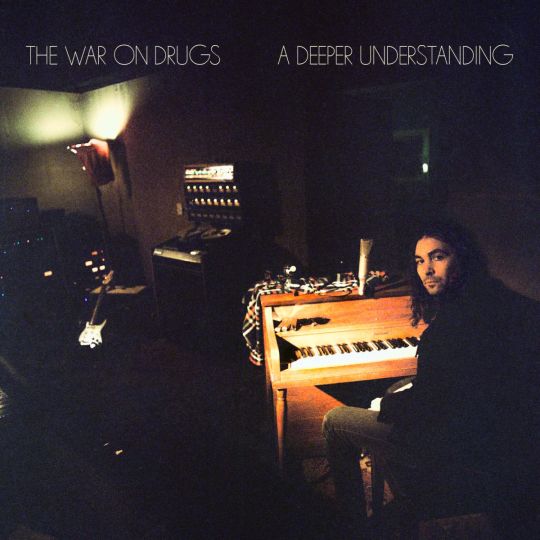
Long-time fans will know that when I call something “background music” I mean it as a compliment. For months now, The War on Drugs A Deeper Understanding has been my go-to “background album” for nearly every situation and I believe it deserves props for that alone. When no other music presents itself to me, when I can’t think of anything else to listen to, when my queue is empty, this record is always there.
There’s something to be said for an album that’s calm and steady enough to lie in the background, yet musical enough to stand on its own. Some of my all-time favorite groups like Mogwai, Explosions in the Sky, and Russian Circles are all bands that I adore and lovingly refer to as background music. They’ve helped me read, write, and create. They’re the perfect soundtrack to life, and now A Deeper Understanding joins their ranks as a fantastic album of infinite subtleties, musical vastness, and ever-cresting sonic landscapes.
On top of this situational flexibility, A Deeper Understanding also manages to improve upon the band’s previous effort Lost in the Dream which is astounding. The highs are louder and more blistering, and the lows hit even harder. Every song is a journey, and each solo implores you to get out and explore the world. A romantic record that inspires with each breath it takes.
4 | Mount Eerie - A Crow Looked at Me
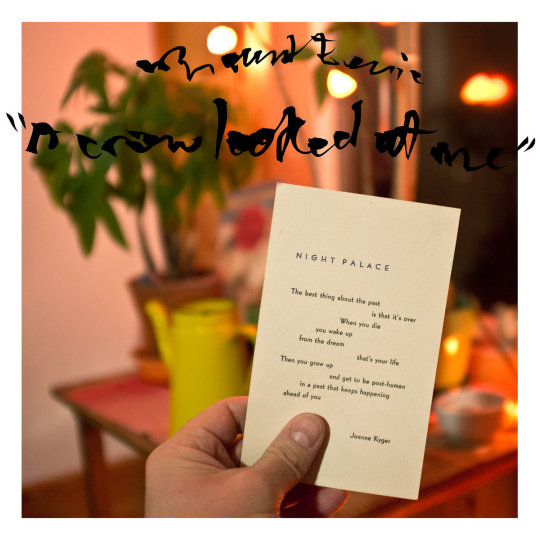
Phil Elverum has a message to declare: Death is real. Recorded after his wife’s passing in July of 2016, A Crow Looked at Me is the draining of grief. An exorcism of pain. A confessional, first-hand account of the soul-wringing agony that is inflicted in the wake of the death of a loved one. How you live. How your infant daughter lives. The crushing pain of mundanity and how everything you see is a memory. A past. A future. A plan that never got to unfold. It's not an album, it’s grief incarnate. It’s not fun to listen to, but it’s one of the most important releases of the year. The more you dig into the album, the more it hurts. Each line is a painful, poetic, being-shifting barb in which you empathize with Elverum unlike any other artist.
Recorded entirely on his wife’s instruments, the physical record has exact times demarcating how long each song was written from the time of her death. Some songs use a respirator for the beat and contain lyrics about how even the old garbage in the upstairs bathroom serves as a reminder that your loved one is gone. Every moment is beautiful, and every second hurts. It hangs heavy in your chest and will remain there for the rest of your life.
3 | Lorde - Melodrama

On the polar opposite of Crow, we have Lorde’s Melodrama a bright, joyful, and carefree album that, yes, is about a breakup, but handles that topic with as much happiness as a pop album possibly can.
Lorde’s first album in four years, Melodrama was one of 2017’s most highly anticipated releases. From aged poptimists to teen streamers and radio-ready moms, everyone was looking forward to the iconic New Zealanders return to music, and the most miraculous thing is that Lorde managed to please every one of these groups with the same album. Melodrama is musical enough to stand on its own against “high art,” poppy enough to be played on the radio, and has just enough flourishes to reward repeat listening.
To put it simply, Melodrama is the best of every possible world. A sophomore album that manages to please fans both old and new. A shining example of the heights that the pop genre can achieve, and the barriers it can break. It’s the continued and never-ending story of how one sixteen year old can rocket herself from a 2013 Song of the Summer to industry mainstay, segueing all that into the creation of one of the best releases of an entire genre. Melodrama is a pure, unbridled, and brilliant success on every level.
2 | Feist - Pleasure
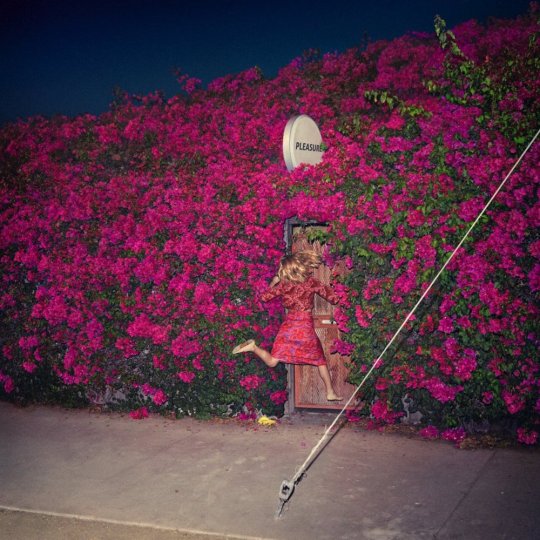
Like most other denizens of 2007, my first exposure to Feist was through her fluke pop hit “1234.” As previously documented, I was slavishly devoted to late-2000’s-era pop music, so this song’s cultural impact was not lost on me. Like many other listeners, the song quickly faded from my consciousness and I wrote Feist off as a one-hit-wonder. After all, “1234” was essentially a Sesame Street song and, while catchy, wasn’t particularly deep. So I categorized her in the same vapid Adult Contemporary genre as Teddy Geiger and James Blunt: not offensive, but not something I’d ever seek out on my own. Aside from a one-off reference in a 2009 episode of The Office, I seemed to be right for the most part, at least she never broke her way back into my iTunes library.
When I saw people glowingly discussing Feist’s 2017 record I was intrigued, to say the least. Assuming it would merely be a pleasant and well-polished pop album full of slightly-Canadian tunes, I sought out the record and let it play through.
Expertly-deployed as the first song, “Pleasure” is an absolutely stunning introduction that immediately dismantled every one of my previously-held 1234-based notions. Boldly opening with 20-seconds of near-silence, “Pleasure” lulls the listener into a false sense of security with single row of, slightly-distorted guitar plucks and a reserved Leslie Feist on vocals. The melody slowly unwinds as Feist expertly pairs her voice with her guitar. Soon the music cuts down to almost nothing and Feist’s voice is reduced to a whisper as she moves closer to the mic croons the album’s title. Then, just as the listener is leaning in, straining to hear the song’s delicate melody, Feist cranks her guitar up to eleven as a simple snarl-inducing riff consumes the entire track. Towering over the rest of the mix, the distorted guitar strings swallow everything in their immediate proximity, blistering through the riff as the listener is shaken by the sudden change of tone. It’s a beautiful bait and switch, and merely the first example in an album that is brimming over the top with one-of-a-kind moments.
As an album, Pleasure finds itself oscillating between tender fragility and raw power. In a pre-album interview, Feist explained that the album is said to “explore emotional limits: loneliness, private ritual, secrets, shame, mounting pressures, disconnect, tenderness, rejection, care and the lack thereof.” and Pleasure manages to handle every one of these topics with extraordinary grace.
Sometimes the scope of the songs will pull out to reveal the larger context, but for most of this album, you're just listening to Feist and her guitar. The songwriting and melody are sharper than almost everything I’ve heard all year, and I emerged from my first listen ashamed. Mad at myself for writing her off as a one-hit wonder when the reality couldn’t have been further from the truth: Feist is an artistic force to be reckoned with.
Funnily enough, there are also moments that come across as very trapped in time like references to flip phones, a spoken word passage by Jarvis Cocker, and a completely left-field Mastodon sample. The beauty of Pleasure is that somehow none of these elements feel out of place or make the album feel trapped in 2007. Instead, they make the record all the more special. They serve as one-of-a-kind instants that would feel ingenious anywhere else. The musical equivalent of well-worn leather. A double-helix of unique and unpredictable beauty.
Pleasure is a barebones album that’s deeply-personal and loving, occasionally violent and explosive, and wholly beautiful. Tracks like “Lost Dreams” feel like controlled explosions: moments of eruptive vitriol, surrounded by pensive waves of rocking harmonies. Songs like “Baby Be Simple” smolder and rumble onward, often carried forward only by Leslie’s voice. You find yourself so lost in these songs that when the guitar does enter the mix, it seems like an explosive burst, even though it’s just a single gingerly-strummed chord. It’s an exercise in reduction, reservedness, and deceiving looks. Fierce and unpolished, uncomplicated and bare, Pleasure is songwriting and guitar work in its purest form. One of my favorites of the year, and an absolute hidden treasure.
1 | Japanese Breakfast - Soft Sounds From Another Planet

If years could have mascots, 2017’s would be Michelle Zauner of Japanese Breakfast. Aside from listening to her throughout the year, seeing her live twice, and being my 4th most-played artist of 2017, she has become symbolic. A figure that represents my shifting personality, internal monologue and grappling with the reality of the world. I feel like she’s simultaneously speaking to me and for me. I’ve found a new voice through hers.
As much as I enjoyed every other album on this list, my “album of 2017” can’t be anything but Soft Sounds From Another Planet. There are sadder albums, deeper albums, dancier albums, and maybe even “better” albums that released this year, but Soft Sounds represents more than that. When I think about my life next week, or next year, or five years from now, I know that Japanese Breakfast will still be a part of it. Albums come and go. Phases, genres, and artists all rise and fall, but Soft Sounds is something that I can see venturing back to forever.
I know this because Michelle’s music has already been something that I’ve been able to return to all year. Her debut album Psychopomp was one of my best discoveries of 2016 and a record that drew me in from first listen. It’s not often that I order a vinyl record before I’ve even finished my first listen. Another distinction Zauner is honored with is being one of the first real “reviews” I’ve done for this website thanks to an early vinyl shipment. That said, between that review and my female-fronted profile of her in October, there’s not much more I feel like I can say about this record on a technical level.
Despite my hype, it’s not a record I expected to be my favorite until I sat down to really think about what has impacted me this year. I took a long break from Soft Sounds after listening to it endlessly for that review, and when I came back to it after multiple weeks, I was surprised to find that I knew every word. I’d memorized every melody, and internalized every beat. That’s something I can say about very few records, let alone one that I’ve only been listening to for five months.
Michelle posted her own year in review on Instagram, and even a cursory glance reveals an incredibly happy, humble, and wholesome person who deserves every ounce of success she has earned. To watch her shoot from “Underground Bandcamp Musician” to one of the biggest names in indie over the past year has been astounding to behold.
I remember hearing “Road Head” for the first time as she sampled her vocals and made a beat of them live on stage. I remember being transported by the 90’s bass-centered groove of “Diving Woman.” I remember watching her perform “Boyish” to a silent room as a disco ball twirled above the audience’s heads. I remember dancing to “Machinist” alongside Michelle as she jumped into the audience at our small Portland show. I remember finding solace in “Till Death” as the news seemed like a constant stream of cruel men winning things that they don’t deserve. I remember tearing up to the fan-like synth of “The Body Is a Blade” as childhood photos flashed on screen. I remember full-on crying to “This House” as Zauner recounted her life in scattered flashes following her mother’s death. This album is my 2017.
Michelle Zauner is the absolute best that humanity has to offer. A shining star of this world. A phenomenal voice, a gifted director, and a musical visionary. Her music makes me want to be a better person and improve myself just for the sake of attempting to one day achieve what she already has. Thank you for the music, and thank you for the voice Michelle, you are who I want to be.
#Best of 2017#Music#Albums#Slowdive#Sza#jay-z#father john misty#(sandy) alex g#kendrick lamar#idles#tyler the creator#julien baker#smidley#brockhampton#half waif#sorority noise#the national#phoebe bridgers#the war on drugs#mount eerie#lorde#feist#japanese breakfast
4 notes
·
View notes
Text
Swim Into The Sound’s 2017 Un-Awards
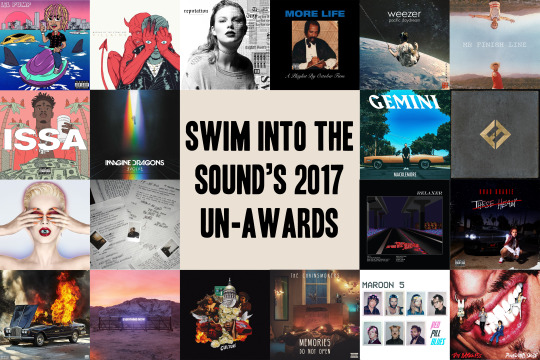
Welcome to Swim Into The Sound’s first annual Un-Awards! In this direct (and more negative) companion piece to our Diamond Platters, we take a moment to reflect on some of the worst moments in music over the past year. From bad lyrics to tasteless cover art, this is a quick-hit version of the lowest points that 2017 had to offer.
In a year where we keep thinking “well, at least things can’t get any worse��� 2017 always managed to surprise us. From politics and celebrities all the way down to movies and music, this was a year of general-purpose deplorable behavior and reprehensible choices. While there were plenty of good moments over the past 365 days, you will find that none of that light reaches these depths. This post is a place of darkness, a hell devoted solely to the most soul-crushing and life-questioning music of the year.
I’d also like to throw out a disclaimer that I don’t particularly like being pessimistic, especially when it comes to art that people have (presumably) worked hard on. Aside from that, negativity stands in direct opposition to the ideals that this website was founded on in the first place. What I’ve found is that it’s hard to talk about the good without also thinking of the bad, especially for a year like 2017. As I mentioned before, the previous post is the exact inverse of this one, and the next article going up will cover our favorite albums of the year, so if you are searching for affirmation, this is not the place to find it. Just think of this as the lone negative meat in a positivity sandwich.
Truth be told, aside from a few visibly-frothy entries, most of these awards are positive spins on negative experiences: moments that surprised me, music I’m embarrassed to enjoy, or weird synchronicities that I noticed throughout the year. I could have gone out of my way to shit on Katy Perry, The Chainsmokers, Imagine Dragons, or any number of middling radio-ready albums that were released this year, but at a certain point that all just feels redundant and hack. I prefer to be original in my distaste. So without any further adieu, I’m proud to present Swim Into The Sound’s list of the most spine-chillingly-regrettable music of 2017.
Biggest Disappointment
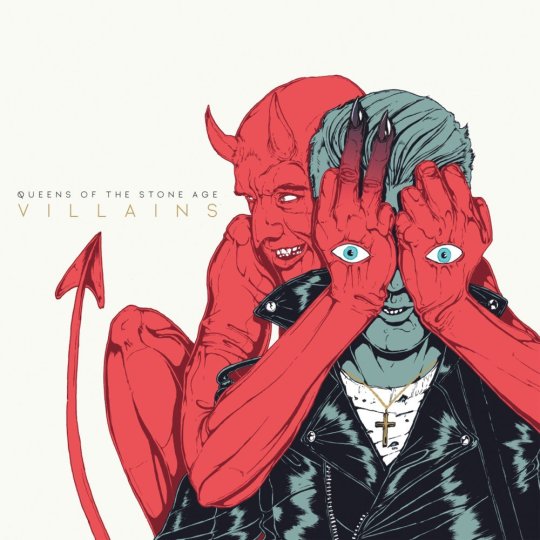
Winner: Queens of the Stone Age - Villains
Being a fan is a mixed blessing. The upside is that you get to enjoy the rollercoaster of hype that is an album rollout and you get the sweet experience of listening to a highly-anticipated album for the first time when it releases. On the flip side, that fandom can easily backfire if your expectations have been built up too high. While I love Queens of the Stone Age, in 2017 I fear that I may be outgrowing them. The group’s 2004 release Songs for the Deaf is literally my favorite album of all time, and there’s no higher praise than that. Each record since then has been good to great until 2013’s ...Like Clockwork which just didn’t sit right with me outside of a select few songs.
This year, the group’s seventh LP represents a new artistic low. Featuring limp “dancy” grooves, irritatingly-clean instruments, and some of the most laughable lyrics I’ve ever heard, the band we see on Villains bears little resemblance the one that I fell in love with years ago. I recognize that wanting a band to stay the same is a shitty thing for a fan to ask, but I just can’t understand, enjoy, or tolerate the direction that the group is headed. I’m a lifelong fan, but that makes these recent records hurt all the more. When you love a band, you devour each release that they put out. Even if the last few records haven’t hit as hard, you stick with them because you want them to be better. The excitement of something new is impossible to stay away from, but now after months of listening, all I want is for Villains to stay away from me.
Runner-up: Portugal. The Man - Woodstock
While I wrote glowingly about Portugal. The Man’s entire discography last month, Woodstock (while not bad) is not an album that I particularly wanted. It’s not the band’s worst, but it’s the most sterile, safe, and poppy album that the group has ever created. Outside of a handful of adrenaline-pumping car-ready songs, Woodstock takes no risks. The album breaks no new ground, asks nothing of its audience, and seems entirely too content to settle. While those qualities are the exact opposite of what I expect from the trailblazing Portlanders, I’ll hold my reservations until I hear what comes next.
Album I Feel Like I Will Adore In A Few Years
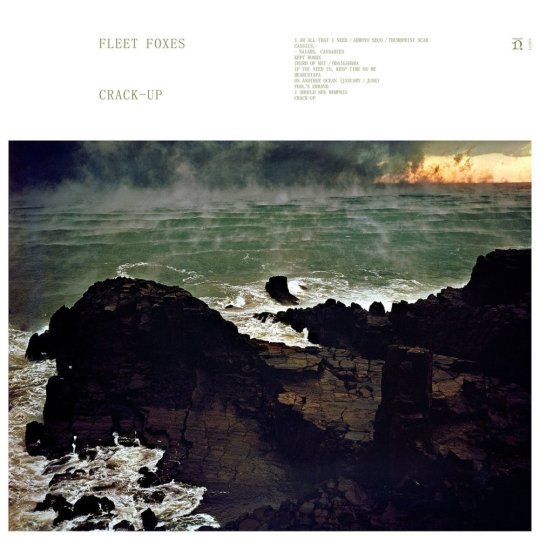
Winner: Fleet Foxes - Crack-up
Until earlier this year I never particularly liked Fleet Foxes. In preparation for their 2017 release, I found myself endlessly replaying the group’s self-titled LP alongside Helplessness Blues while doing other things. Somewhere along the line “inoffensive background music” turned into brilliant folk epics, and I finally understood what made the band so unique. However, in a Bon Iver-esque pivot, Fleet Foxes’ third LP Crack-up represents an experimental shift in sounds, and unfortunately, it’s a change that doesn’t sit particularly well with me. There are some awe-inspiring moments scattered throughout this record, but as a whole, it’s not a release that stuck with me in the slightest, let alone one that can hold a candle to the band’s earlier work. I recognize that there’s something special going on in Crack-up, but I feel like it will just take some time for me to properly excavate it, just as I did with the group’s first two records.
Runner-up: Sun Kil Moon - Common As Light and Love Are Red Valleys of Blood
Sun Kil Moon is another artist that I’d never listened to until 2017. After hearing this year’s mouthful of an album Common As Light and Love Are Red Valleys of Blood, I came away pleasantly surprised. Featuring solemn, looping instrumentation and long podcast-like narration by Mark Kozelek, I listened to all two hours and ten minutes in complete fascination. I dipped back into his previous work like Benji and loved it just as much, but for whatever reason, I never ventured back into Valleys after that first listen. Maybe it was the album’s lengthy running time or the idea that the narration would prove too distracting for a casual listen, but Valleys always felt too daunting to dive back into. I feel like one day when I’m a middle-aged dad with a couple of kids I’ll finally have the time to revisit this album and it will speak to me on an entirely new level. The songs and stories here feel like something that I will find solace in when I’m older, but I just don’t have the 2+ hours right now.
WTF Moment of the Year
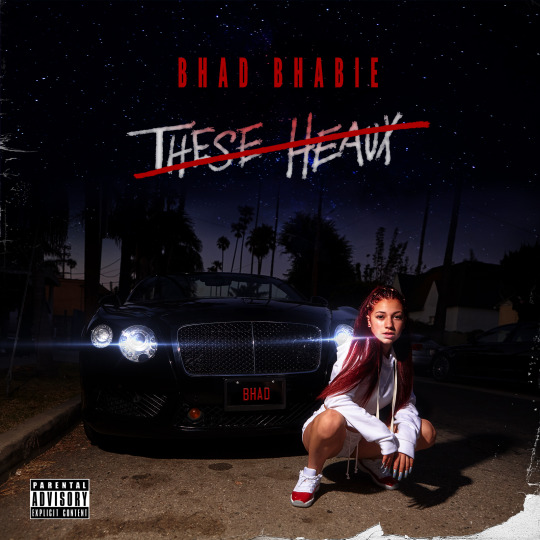
Winner: Bhad Bhabie
Of all the memes to emerge from 2017, few have been as successful as 14-year-old Danielle Bregoli. She first gained traction in January thanks to a Dr. Phil clip in which Mrs. Bregoli challenged an audience member to “cash her outside.” The teen’s delivery of the phrase caught fire and became a meme/infinitely-renewable social media caption for a hot minute. One of the more perplexing news stories of 2017 (and that’s saying something) was Danielle’s announcement of her music career as “Bhad Bhabi” complete with a deal on Atlantic Records. Preceded by an appearance in a Kodak Black video, this announcement blindsided the music world and spawned a million think pieces. However when Bregoli released her first song in August the unthinkable happened: It wasn’t that bad.
The video for “These Heaux” was the first part of a one-two punch alongside “Hi Bich” that set social media ablaze in September. As everyone collectively remembered the months-old meme from what seemed like a lifetime ago, most people took this as an opportunity to laugh at her once again. Meanwhile, I watched the same videos as everyone, and recognized it as bad music, but found myself embarrassingly enjoying both songs. “Heaux” and “Hi Bich” are both competent and well-produced Rae Sremmurd-esque bangers that, yes, are propped up by production, but still enjoyable. The truth is, they’re musical fast food. It’s not nutritious, healthy, or even filling, but sometimes you just need to bask in the utter trashiness that is Bhad Bhabie.
Runner-up: Lil Pump
Earlier this year I wrote a 3,000-word post in which I attempted to reconcile my newfound love of trap with my extreme dislike of the current crop of SoundCloud rappers. While that write-up was primarily inspired by the reprehensible human being that is xxxtentacion, I now regret lumping Lil Pump into the same category. While his brand of blown-out hyped-up trap is of the same school as xxx, Lil Pump isn’t nearly as bad on a personal or musical level as Onfroy. More surprisingly, I actually found myself liking his breakout single “Gucci Gang” more than I am comfortable admitting. Featuring a worryingly-mindless chorus and the same laundry list of flexes as most trap hits, “Gucci Gang” manages to be an infectious banger that has also propelled Pump to the forefront of both the charts and popular culture.
Most Un-sexy Sex Song
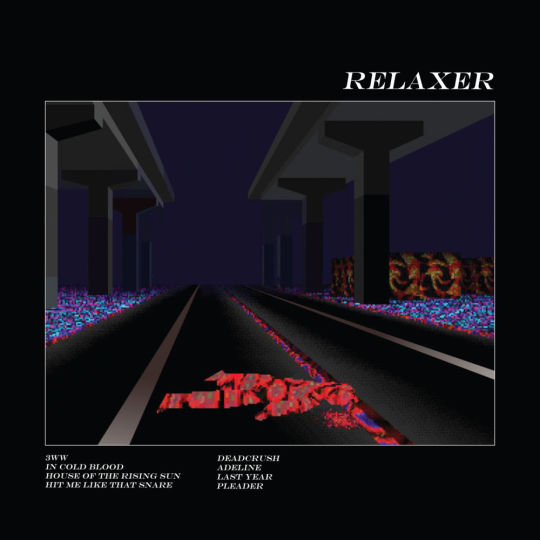
Winner: Alt-J “Hit Me Like That Snare”
In an interview with Q Magazine, Alt-J’s lead singer Joe Newman described “Hit Me Like That Snare” as an “atypically filthy psychedelic grind.” Wow, guys. Wow. If you want to avoid listening to the song, I don’t blame you. All you need to know about this track is that the band rhymes “slithering” with “scissoring” (yes, that kind), and the lead singer describes the song as “spicy.” Whew.
Runner-up: DJ Khaled “Wild Thoughts”
While I thought “Wild Thoughts” was exceedingly-sensual on first listen, the song now has too many things working against it for me to find any titillation here. From Rihanna’s baby talk to memories of dancing hot dogs, I just can’t listen to this song without picturing Santana’s face, or DJ Khaled screaming. The single achieved a level of cultural-pervasiveness so quickly that it became saturated beyond its original artistic vision. God knows I have no problem with DJ Khaled, but this track now contains too many distractions to remain pure. The music video is still unspeakably steamy, but as a whole, “Wild Thoughts” has lost what little sexy luster it initially had.
Am I The Only One Seeing This Shit?
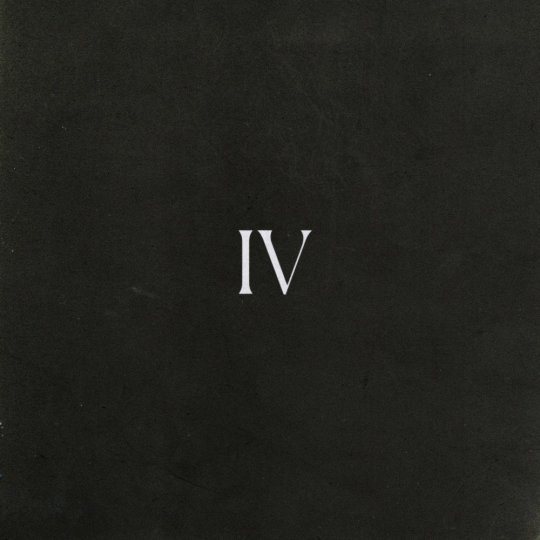
Winner: Rappers Counting
I’ll admit that this category was created with the sole purpose of repurposing already-written articles, but that doesn’t make the observations contained within them any less valid. The first of these two hyper-specific happenings of 2017 can be found in this article where I outline three examples of rappers using numbers as lyrics. Not like clever wordplay involving numbers, but counting upwards sequentially one numeral at a time. It’s a weird thing to have happened multiple times in one year and feels like such a lazy cop-out of songwriting, but at the same time, each artist in the list manages to make it work for one reason or another.
Runner-up: 21 Savage’s Food Lyrics
Another weirdly-specific phenomenon of 2017 is something that I noticed while listening to 21 Savage’s debut Issa Album over the summer. Despite his tough gangster exterior and dark, moody beats, 21 also managed to fit an alarming number of food references into his first retail outing. While not particularly jarring, these references provide a weird contrast to the rest of the Mr. Savage’s “murder music” and end up sticking out like (multiple) sore thumbs throughout the record. It happened just consistently enough that I began laughing every time they poked up, and I felt the cosmic need to compile them somewhere, so I did.
Most Insensitive and Heavy-handed Song about Suicide
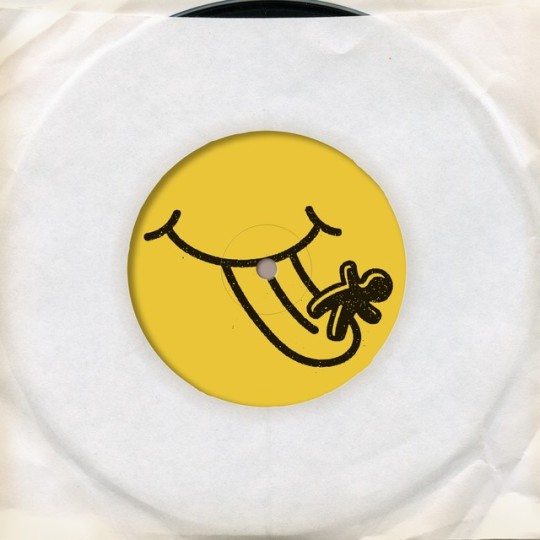
Winner: Arcade Fire “Creature Comfort”
On this second single off Arcade Fire’s Everything Now, we hear Win Butler clumsily address the topics of suicide and self-harm. The song’s first verse explains “Some boys hate themselves / Spend their lives resenting their fathers / Some girls hate their bodies / Stand in the mirror and wait for the feedback.” Taken on their own, these lines aren’t particularly offensive, but it’s the second verse where things get truly tactless: “Assisted suicide / She dreams about dying all the time / She told me she came so close / Filled up the bathtub and put on our first record.” I mean, what a pretentious and shitty way to insert yourself into someone else’s misery. It’s such a bizarre form of narcissism and masturbating to your own past, this line truly is one of the grossest sentiments that I’ve heard put to music over the past year.
Runner-up: Brand New “Same Logic / Teeth”
While it’s true that suicide isn’t exactly a groundbreaking topic for an emo band, Brand New somehow manages to stumble over it fantastically one of the few times that they tackle the subject. Surrounded by excellent songs of diverse sounds, styles, and topics, “Same Logic / Teeth” sticks out as Science Fiction’s most significant blunder. With questionable lyrics, bizarre vocal choices, and overwrought sentiments, it’s easy to see why most bands would prefer not write songs about killing yourself because the only time I have ever wanted to end my life is when I’m hearing Jesse Lacey sing about how fish won’t judge me by my faults.
WTF Moment of the Year 2: Weird Boogaloo
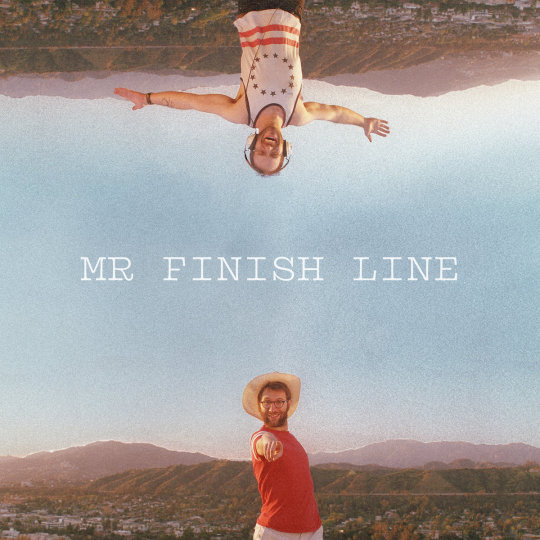
Winner: Vulfpeck “Captain Hook”
Venturing back to the “WTF Well” for two more entries, another of 2017’s biggest surprises came at the end of Vulfpeck’s Mr. Finish Line. The band’s third full-length studio album is a stone-cold chiller, but after half an hour of unspeakably funky tracks, “Captain Hook,” the record’s final song threw me (and every other listener) for a massive loop. Teased as a collaboration with Bootsy Collins, most fans expected a brainwave-shifting epic of an album closer, a modern “I’d Rather Be With You” but with even tighter instrumentation. What we got was a goofy comedy track featuring two of Vulfpeck’s members affecting the voices of an infant and an old Jewish man. Bootsy’s contributions are noticeable but minimal, and as a whole, the track is just a fantastically-bizarre experiment. “Captain Hook” is a weird child-like song featuring a trio of the three most disparate voices you could ever imagine, however (now that I know what to expect), I absolutely adore the song. It’s such a weird marriage of voices that, when combined with Vulf’s approach to music, circles back from annoying to endearing. It’s one final cherry of weirdness on top of the funk sundae that is Mr. Finish Line.
Runner-up: Taylor Swift “Look What You Made Me Do”
Preceded by snake imagery and a dark rebranding, “Look What You Made Me Do” marked Taylor Swift’s long-awaited return to the forefront of pop. After 2015’s 1989, numerous turbulent relationships, a public unmasking via Kardashian, and a complicated legal battle, the song represents Swift’s full embrace of the dark side. As the first single released off Reputation, “Look What You Made Me Do” was met with waves of confusion when it dropped this fall. From the Right Said Fred sample to the thinly-veiled jabs at her detractors, nearly everything about this song was poked and prodded through upon it’s August 25th release. There’s a strange schadenfreude to watching the biggest pop star flail to spectacularly, but at the end of the day she’ll still make a million dollars, sold-out rock stadiums, and be more successful than the richest DC supervillain, so as much as I want her to succeed, I guess it’s also okay to laugh. I definitely haven’t “come around” to the song, and I doubt I ever will, but the air of “what the fuck” was palpable the night that this song was released.
Weirdest Flex

Winner: Lil Pump “Gucci Gang”
After a brief intro and meme-ready chorus on “Gucci Gang,” Lil Pump surveys his surroundings and begins to describe them in the song’s sole verse. “My lean cost more than your rent” he boasts, “Your momma still live in a tent” he continues, “Still slangin' dope in the 'jects / Me and my grandma take meds.” These lines are so outlandish and bizarre that I can’t help but love them. First, we get the worrying comparison between the upkeep of his own opiate addiction to monthly rent, then the (uncalled for) implication that the listener’s mother is homeless, and the final cherry on top: the fact that Pump spends quality time popping pills with his grandmother.
It’s actually one of Pump’s numerous references to the elderly on his scant number of released songs, leading me to think that this is either A) a genuine lyric, or B) a worrying cry for help. At least he’s spending some quality time with his elders before they pass. Even if it’s a drug-fueled haze, I hope that both parties treasure their remaining time together.
Runner-up: Drake “Gyalchester”
On one of More Life’s most hard-hitting tracks, “Gyalchester” finds Drake braggadociously displaying his opulence in rapid lyrical flashes. Halfway through the first verse, the song’s beat cuts out just long enough for Drake to exclaim “I don't take naps / Me and the money are way too attached to go and do that.” While the sentiment of money over everything is hardly new for the rap game, using naps as a framing device to explain how fond of currency you are is such a “Drake way” to go about it. At this point, Drake is far beyond the memes of his earlier career, but lines like this one are how he got that reputation in the first place. All this said, I’m not gonna begrudge anyone their beauty sleep or lack thereof, everyone has their own unique schedule... Plus the song bangs, so cornball lyrics are easier to overlook.
Most Abhorrent Cover Art
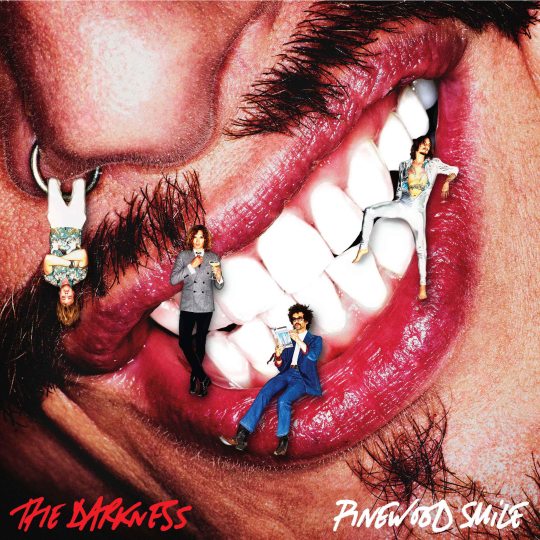
Winner: The Darkness - Pinewood Smile
I honestly don’t want to write too much because I just want to stop looking at this. The facial hair. The teeth. The nose ring. The Photoshopped band members. I’m sorry I had to subject you guys to this, but this abortion of a cover is too bad to not share.
Runner-up: Maroon 5 - Red Pill Blues
*Adam Levine walks into the studio*
“Hey, have you guys heard of Snapchat?”
Most Undeservedly Shit Upon

Winner: Arcade Fire - Everything Now
For the sake of ending on a somewhat positive note, I’m going to wrap up by talking about two albums that were widely disliked, but I managed to appreciate. First off we have Arcade Fire’s fifth LP Everything Now. While I did just spend a paragraph dunking on the album’s suicide track, I actually thoroughly enjoyed this record. I’ll start this off by saying I have no reverence for this band, I don’t care for their older work, and they’ve always struck me as a painfully average indie group. Perhaps thanks to this lowered expectation, I emerged from my first listen of Everything Now with a smile on my face. It was goofy and cheesy, and about as far from subtle as you can get, but I still enjoyed it for what it was. Since the album is in this “shit upon” category, I guess it goes without saying that I was largely alone in this sentiment.
Maybe people were turned off by the unrelenting social media campaign, or just expected more based on the group’s previous work, but either way, it seemed like indieheads the world over were sick to their stomachs after hearing this record. I personally think the album has a wonderful Abba-esque charm to it. There’s a tremendous melodic through-line with the titular “Everything Now,” there are memorable choruses on “Creature Comfort,” and even a gloriously chunky riff on “Chemistry.”
At the end of the day, I think I enjoy Everything Now for the same reason that I enjoyed M83’s Junk. I went into both albums with low expectations and ended up loving the cheesy throwback vibe that they embraced. I can totally understand why that pivot would turn off long-time fans, but apparently, this sound is right up my alley. It’s not going to be on my end of the year list or anything, all I’m saying is Everything Now is good for what it is. You know what? It’s great for what it is. If fans could take their blinders off, remove their feelings on the album’s lead-up, and take this as a standalone adventure, they would probably enjoy Everything Now for the goofy romp that it is.
Runner-up: Foo Fighters - Concrete and Gold
Even before Concrete and Gold was released, I saw about a half dozen articles about how the Foo Fighters have nowhere else to go and are the embodiment of “New Dad Rock.” While it’s true that the band is unchallenging to listen to and don’t exactly think outside of the box, the criticism is a double-edged sword. Aside from being a thinly-veiled put-down, the dad rock label means that Foo Fighters won’t ever release a “bad” record, but they’re also never going to release another “classic” like Colour and Shape. While I agree the group is in a weird spot career-wise, I resent the idea that they won’t ever release something impactful as Colour and Shape simply because they’re older. Apart from the fact that 2011’s Wasting Light was one of the band’s best, on Concrete and Gold we see a band that’s still incredibly hungry.
Eschewing the conceptual framing devices of their past couple releases, Foo Fighters set out to make a straight-up rock record, and they succeeded. The band still go through their usual motions, oscillating from biting punky tracks to slow moody epics, but as a whole Concrete is a record that’s well-paced, well-produced, and solid from front to back. Just because it’s played on the radio doesn't mean it’s an inherently “okay” album, and just because the band is growing old doesn’t mean they’re settling. Concrete and Gold is concrete proof of that.
#End of the year#music#Un-awards#Worst of#queens of the stone age#portugal. the man#Fleet Foxes#sun kil moon#bhad bhabie#lil pump#alt-j#DJ KHALED#21 savage#arcade fire#brand new#vulfpeck#taylor swift#drake#maroon 5#everything now#foo fighters
1 note
·
View note
Text
The First Annual Diamond Platters: Swim Into The Sound’s Ancillary End of the Year Awards
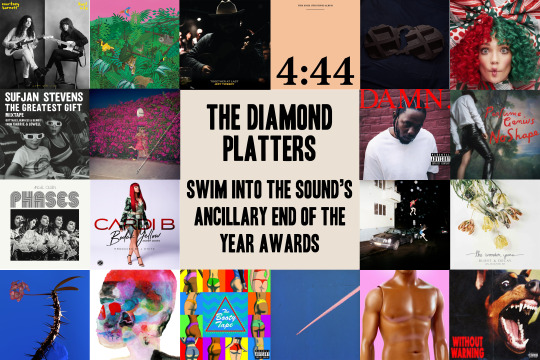
Whether you like it or not, it’s awards season. The time of the year when every music publication sits down to rank, order, and pass judgment on the last 365 days of art. As every outlet races to beat each other to those illustrious “end of the year list clicks,” I am only one man, and I just can’t compete. While Swim Into The Sound does still have an official “Best Albums of 2017” list in the works, this countdown is going to be a little different.
For the first time ever, I’d like to welcome you to Swim Into The Sound’s Diamond Platter Awards: an extravagant, ornate, and handsome way to recognize the past year of music. Grandiose, gaudy, and opulent, The Diamond Platters are the most exorbitant awards on the entirety of the internet, and the absolute highest honor of online music blogging awards.
Aside from poking fun at the seriousness of list season, these awards do have a purpose: to talk about music that may not be discussed otherwise. It’s always fun to see how everyone ranks albums each year (even if they start rolling in around November) but more often than not, most website’s “best of the year” list ends up coming off as rote rambling. A half-hearted and inconsistent ranking that merely regurgitates a months-old review with a few outlandish placements to get people talking. It’s the music blog equivalent of roll call, and it’s getting stale.
So with that said, The Diamond Platters don’t go to the “best” music of the year, but things that are worth celebrating for some other reason. Albums that triumphed in their category, artists that surprised their audience, or moments that were worth remembering. Hopefully funnier, punchier, and a little more out of the box than your average end of the year listicle, here’s my off-the-cuff (but official) ranking of several hyper-specific categories of my own creation. Enjoy.
Best Acoustic Reimagining

Winner: The Wonder Years - Burst & Decay
After a two year absence and an album that I wasn’t too hot on, the pop-punk gods return with an acoustic EP that reworks some of their best songs into a tender acoustic offering. Taking cues from lead singer Daniel Campbell’s solo outing, Burst & Decay marks the beginning of a new day for the band. The artistic fulfillment of the direction that they’ve been heading in for years now, all packaged up in a lush EP that allows the songwriting to shine as the crown jewel that it always has been. It’s a fantastic “fall album,” and the perfect soundtrack to warm lattes, wool scarves, and crunchy leaves. The album’s final track will leave you ruminating, thoughtful, and pensive, but that’s precisely what the band was going for and always has been.
Runner-up: Jeff Tweedy - Together At Last
The Wilco frontman treats long-time fans to a career-spanning album that culls the best songs from 30-years of music and reworks them beautifully.
Biggest Surprise of the Year

Winner: The Dirty Projectors - The Dirty Projectors
As is a recurring theme with this blog, The Dirty Projectors were a group that I’d never heard of until very recently. When the band’s futuristic self-titled LP dropped at the beginning of the year, I had no context. No knowledge of the band’s dissolution, bad blood, or previous relationships. I went into the record blind, only having the internet’s reaction to go on. Hailing the album as “3017 shit” I hit play on the album not knowing what to expect and emerged blown away. It indeed sounded like future music with crazy autotune, glitchy instrumentals, and bizarre vocal deliveries as far as the eye could see. As I learned more about the group and the backstory I grew to dislike the man behind the music, but that didn’t keep me from loving the unconventional left-field arrangements on this record any less. The Dirty Projectors is unlike anything else I’ve heard in this year or any other.
Runner-up: Ugly God - The Booty Tape
When XXL unveiled their class of 2017 freshmen, I was underwhelmed to say the least. Aside from elevating genuinely deplorable human beings, I hadn’t heard of most of the artists that made the list. Of the ten up-and-coming rappers that the magazine showcased, I came out liking Ugly God the most. His late-summer debut The Booty Tape is a 23-minute banger-filled escapade that combines a conceptual sense of humor with modern trap stylings. It’s what Das Racist would have made if they were around to witness the rise of Lil Yachty. Nothing on the tape overstays its welcome, the production in on-point, and Ugly God is surprisingly proficient throughout. It’s a joy to listen to, and that’s not something I thought I’d ever say about a dude who “only wants to sing about dumb stuff.”
Most Stank Face-Worthy Beat

Winner: Flume “Enough (feat. Pusha T)”
After last year’s immaculately-produced Skin LP, the Australian musician continued his flower imagery in 2017 with two companion EPs alongside various singles and numerous remixes. The high point of this era came at the very beginning of Skin’s second companion EP on the Pusha T-assisted “Enough.” Featuring abrasive blown-out instrumentation, “Enough” is a jaw-clenching and muscle-inflating track that will flood your speakers and blow out your eardrums. Perhaps the ultimate gym song, “Enough” is one of the nastiest beats I’ve ever heard in my life, and Pusha T is used masterfully. This track is a force to be reckoned with.
Runner-up: Kendrick Lamar “DNA.”
After two minutes of scene setting on the album-opening “BLOOD.,” an ignorant Fox News clip gives way to an aggressive Kendrick who begins “DNA.” by shouting “I got, I got, I got, I got / Loyalty, got royalty inside my DNA.” The song sees Lamar coming out of the gates swinging, but midway through the song, just as you think it’s winding down, the beat cuts out and switches. With only one minute of the track left, a countdown begins, and Kendrick starts spazzing out over an allegedly-improvised beat, created after the fact to cater to his flow. Placed over a sample of 1982 Rick James, the beat becomes swells to monstrous proportions, spiraling and booming, taking control of every muscle in your body and eclipsing every pure thought you’ve ever had. It’s one of the best moments in music this year and an absolute marvel to behold.
Best Album From Last Year That Took Until 2017 To Discover

Winner: Pinegrove - Cardinal
Listening to everything in one year is impossible. Sometimes albums and bands slip through the cracks, and in 2016 Pinegrove was one of those for me. The Run For Cover signees have seen an astronomical rise in 2017, becoming indie darlings within the space of a single calendar year. It took me many listens to discover what’s so unique about Pinegrove, but after I realized they weren’t just another Emo band, I began to fall in love with them in early 2017. With fantastically-composed songs like “Aphasia” and “New Friends” the group’s sophomore album is a fantastic jumping off point for a band that’s poised to continue to grow exponentially.
Runner-up: Camp Cope - Camp Cope
Much like Pinegrove, this Melbourne-based female trio also released one of the best emo records of last year. While it took a while to sink its hooks into me, this fall I hit a point where I couldn’t go one day without listening to Camp Cope’s self-titled record. If their second album’s single is anything to go off of, the group may already have one of 2018’s best albums on their hands.
Most Satiating B-Sides Collection
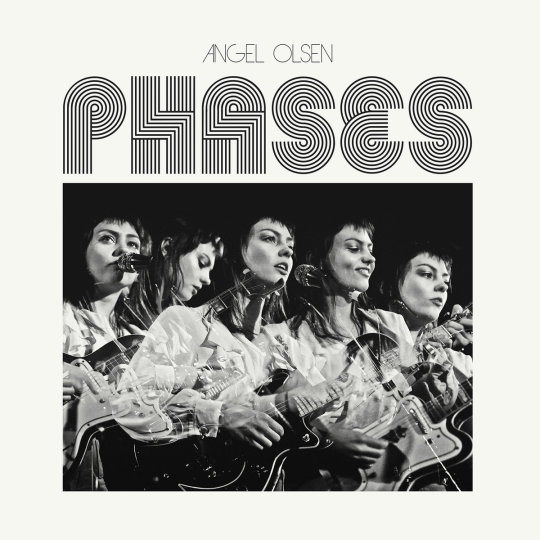
Winner: Angel Olsen - Phases
B-side releases are an interesting beast. Often created primarily to satiate the die-hard fans, it’s rare that an artist’s best work would be on a collection of things cut from a record, but here we are. While Angel Olsen’s My Woman was an easy choice for my Best Of list last year, 2017’s Phases represents a thoughtful punctuation to the end of this chapter. Featuring unreleased cuts from each of her albums, Phases is a perfect sample platter of Olsen’s broad and diverse sounds proving, once again, that she’s one of the most powerful women in indie.
Runner-up: Sufjan Stevens - The Greatest Gift
While Phases gets points for being comprised entirely of unheard material, Sufjan’s Greatest Gift should be commended for striking a near-perfect balance of B-sides, demos, and remixes. The “mixtape” collects outtakes from 2015’s landmark Carrie & Lowell, all of which bear the same brand of soul-destroying, death-ridden meditations and grievances. While Sufjan’s other 2017 album Carrie & Lowell Live represents a maximalist reimagining of the album, Greatest Gift represents the exact inverse: stark, subtle, and haunting renditions of the same tracks. Occasionally even more hard-hitting and impactful than the full album, The Greatest Gift is an incredible contrast to his 2015 record and the perfectly-placed bow atop this career-defining work.
Most Essential “Portland Anthem”
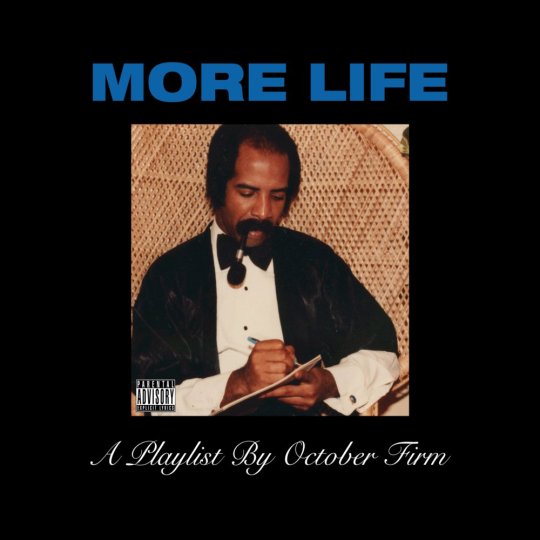
Winner: Drake “Portland”
As a native Oregonian, this year’s music has been a noticeable boon to our city. From local boys done good to songs specifically about our town, the Rose City has been blessed throughout 2017. God knows as Seattle’s Napoleon-complexed younger brother, we’ll take all the confidence we can get. 2017 may have been the year of flutes, but Drake’s “Portland” takes that woodwind-based phenomenon one step further into absurdity by heavily-utilizing the recorder. Assisted by Travis Scott and Quavo, “Portland” is an outlandish and bouncy anthem to life in PDX. While the album cut is fun, seeing the two perform the song live in May was a meta and goosebump-inducing highlight of my year in live music.
Runner-up: Sufjan Stevens “The Hidden River of My Life”
While almost all of Carrie & Lowell’s tracks depict life in Oregon, “The Hidden River of My Life” is a heartfelt (and surprisingly-catchy) song of in-jokes, references, and observations that can only come from having lived life our rainy state.
Reddit Commenter Who Should Be Reviewing Music

Winner: wonderbitch26 on Melodrama
When Lorde’s Melodrama dropped in June popheads across the world rejoiced. As often happens, that joy frequently translates into gay men acting so unbelievably extra that it begins to feel like an infinitely-renewable source of energy that we should be harnessing. In Melodrama’s album release thread on the /r/popheads subreddit, user wonderbitch26 posted an in-depth comment depicting an explicit and erotic tale of sexual dancing and BDSM-esque spanking that also managed to accurately portray what listening to the album is like. It’s a journey worth taking.
Runner-up: plzaskmeaboutloom on More Life
Drake isn’t exactly the internet’s favorite artist. While 2015’s If You’re Reading This represented a career-defining high note, his subsequent releases have been middling at best. In fact, in May I wrote 8,000 words over a series of four posts in which I simply tried to reconcile my love for Drake despite his recent downward trajectory. While I perceived 2017’s More Life as a slight bounce back, not everyone agreed with me, least of all /r/indieheads user plzaskmeaboutloom whose Simon Cowell-esque takedown of the album is meaner (and funnier) than anything I could have ever come up with.
Most Gallery-Ready Cover Art
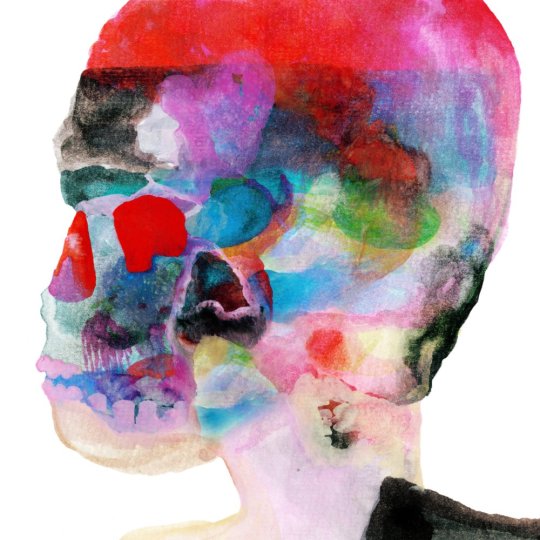
Winner: Spoon - Hot Thoughts
It’s not often that a band’s ninth record is their best. While Spoon’s Hot Thoughts finds the group reaching a refreshing creative peak, one of the most memorable aspects of the album is actually its gorgeous cover. Created by Portland’s own Christine Messersmith, Hot Thoughts’ album art is a striking depiction of a human skull. Painted in vivid watercolor, you can spot the pattern of the canvas running subtly throughout the background providing the perfect texture and consistency to the entire piece.
Runner-up: Turnover - Good Nature
To be quite honest, I was disappointed with Turnover’s Peripheral Vision follow-up this year. While their 2015 album represented a jaw-dropping emo reinvention, 2017’s Good Nature seems to be content with simply extending those ideas into another release. While I’m not yet sold on the album’s musical contents, one thing is for sure: Good Nature’s cover is absolutely stunning. Featuring a child-like array of jungle animals underneath a bright pink sky, it’s a memorable and eye-catching display that also manages to be an excellent encapsulation of the music that lies behind it.
You Are America
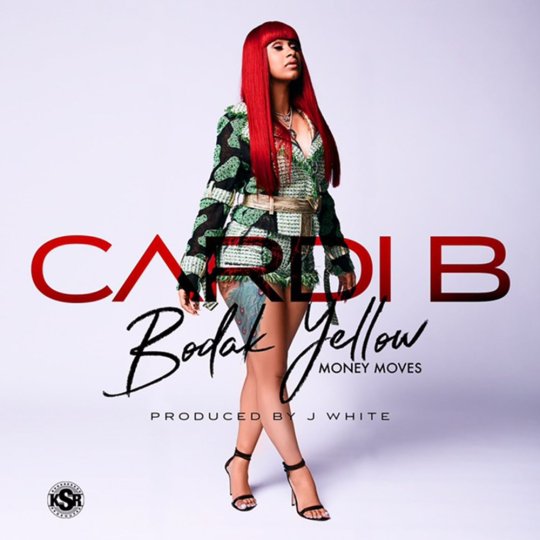
Winner: Cardi B
Out of all the glo ups of 2017, none have been more astronomical than Cardi B. While her monumental hit “Bodak Yellow” tells her story quite well, she has gone from stripper to dethroning Taylor Swift and marrying a Migo all within the space of a year. When she’s not breaking records, her time goes towards being one of the most magnanimous and personable Instagram purveyors on the planet. From iconic raps to inspirational social media videos, Cardi B is a force of nature. In one year she gave us a chart-shattering anthem of empowerment, togetherness, and upward mobility. She’s the embodiment of the American Dream. An endearing story of success. The bitch everyone wants to be. Her story is what this country was founded on.
Runner-up: Perfume Genius
This year has been hard for most of us, but for Mike Hadreas things have been near impossible. His 2017 record No Shape is the tale of seeking out happiness and holding onto it for dear life. About finding joy and warmth in the face of homophobia, discrimination, hatred, and a world that seems stacked against you. As a society, America should consider ourselves lucky to have humans like Hadreas amongst us. If even a fraction of our future population is comprised of people like him, then we’ll be living in a utopia one day.
Most Impeccable Samples
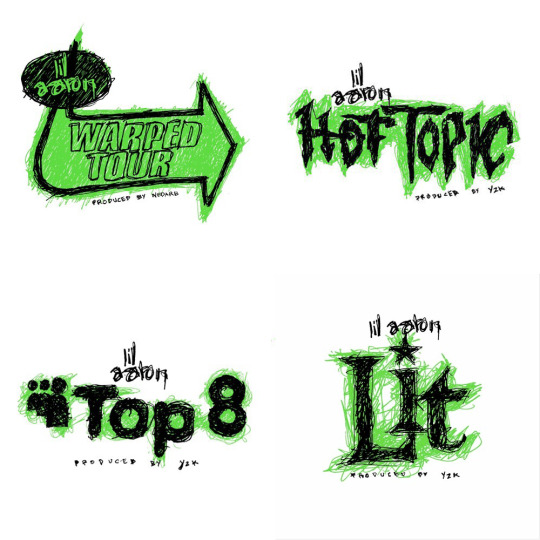
Winner: Lil Aaron - Soundcloud Singles
While I gushed about Lil Aaron’s music in a post earlier this year, his combination of trap lyrics over 2000’s-era emo samples remains one of the most intoxicating things I’ve heard all year. From “My Own Worst Enemy” to “I Write Sins Not Tragedies,” Aaron’s Soundcloud is a treasure trove of millennial nostalgia. Each song follows a familiar pattern, first luring the listener in with a sense of familiarity, then flipping expectations end over end as he hits you with clever wordplay, catchy melodies, and gut-busting bars. It’s a combination that I never would have thought of in a million years, much less imagined working as well as it does here, but that just goes to show the brilliance of Lil Aaron’s mind.
Runner-up: Jay Z - 4:44
Helmed entirely by No I.D., Jay-Z’s 4:44 represents a return to his earlier sound, once again embracing booming, chopped up soul samples. It’s a match made in heaven, and the samples pair with his voice so well that you begin to wonder why he ever got away from them in the first place. Thanks to this sense of familiarity, the entire album feels both comfortably familiar and brand new at the same time. 4:44 manages to capitalize on Jay’s past success while also standing on its own merits, and that’s all thanks to the record’s strong sample-based foundation.
Worryingly Prolific Output
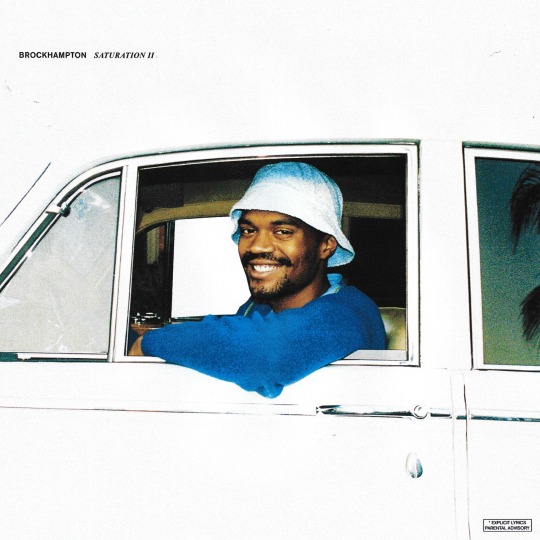
Winner: Brockhampton
When I say “prolific output,” the distinction here is output that also maintains a high quality. So sorry King Gizz fans, 5 albums in one year is in an achievement, but we both know they’re not all winners. Texas-born, Cali-based BROCKHAMPTON is a group of 20-something 20-somethings who label themselves as a boyband. This year alone they’ve released three albums, one documentary, a TV Show, and embarked on a nationwide tour. They are young creatives incarnate, and I hope they never stop.
Runner-up: Sufjan Stevens
While not everything he released is from 2017, Sufjan Stevens has given fans more than enough new music this year to tide us over until his next record. From live reimaginings, b-sides, soundtracks, and space-themed originals, Sufjan has given us 3.5 albums of new material this year alone, and all of it’s great. And in the time that it took me to write and edit this he tossed out a Tonya Harding-themed loosie. The hits keep coming, and Sufjan is a true blessing.
Most Iconic Social Feed

Winner: Lorde’s Instagram
One of the few people I have notifications turned on for, Lorde’s Instagram has proven to be a never-ending waterfall of iconic tour pics, beautiful faces, and incredible fashion. In fact, my “saved” section might as well be renamed “Just Lorde” at this point because that’s 95% of all I ever save. She can do no wrong.
Runner-up: There is no runner-up
Best Incongruous Use of Hard Rock
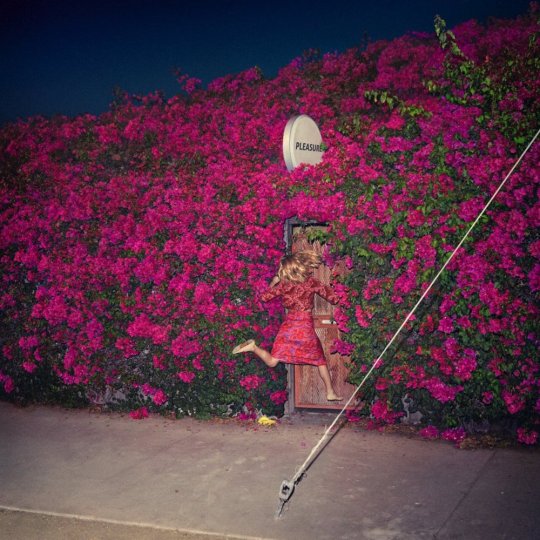
Winner: Feist “A Man Is Not His Song”
I can’t believe I’d so severely misjudged Feist as a pop act. Like most of the world, I was first introduced to her in 2007 with the unparalleled (and unexpected) success of “1234,” and until this year I’d assumed that one breakout single was indicative of the Canadian songstress’ discography, but in reality, I could not have been more wrong. Feist’s Pleasure is an album that rides waves of aggression. Often focusing only on a guitar and Leslie Feist’s voice, it’s one of the rawest and most personal albums I’ve heard all year. A shock comes at the end of “A Man is Not His Song” where the chorus bleeds into a quick 22-second hit of Mastodon’s “High Road.” It sticks out like a sore thumb, yet somehow fits into the song and album so perfectly. This was only one of many revelations that I had while listening to the album, and a moment that truly needs to be heard to be believed.
Runner-up: Brand New “No Control”
While the whole of Brand New’s Science Fiction is pretty hard-rockin', the Emo trailblazers tend to shift between two styles on the record: sad, slow tracks and aggressive kickass rock. Late-album cut “No Control” lies somewhat between the two, featuring a whiny crooning chorus alongside distorted guitars. Around two and a half minutes in, the song fades out and slowly sputters out into quietness. There’s a brief pause of silence, and then a booming bass, fuzzed-out guitar, and aggressive set of drums are slowly turned up in the mix. Gradually gaining volume as they play, the instruments become louder and louder until the track ends in earnest. While it only hangs on for a minute before fading into the next song, the riff still remains a standout groovy moment on the band’s career-defining final record.
Most Charming Human Being
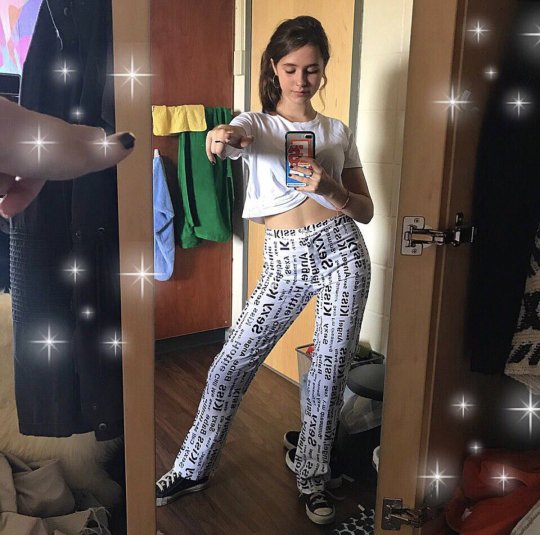
Winner: Claire Cottrill of Clairo
Claire Cottrill has been making lo-fi bedroom pop songs for years now under the name Clairo, but it wasn’t until this fall that her song “Pretty Girl” blew up. Having accumulated nearly 5 million views at the time of writing, the music video is simple, delightful, and impactful. Created on a day when “her hair was greasy, her skin was bad, and she didn't want to leave the bed” the video sees Clairo alone in her room singing and dancing along to the simplistic pop track. It’s utterly pleasant and completely disarming, a refreshing breath of air from the world around you. Still a student in college, I can’t wait to see what kind of art Clairo is able to unleash once she’s able to entirely devote herself to creative pursuits.
Runner-up: Alex Luciano of Diet Cig
The high-kicking, dog-loving, outspoken frontwoman to New York-based Diet Cig is a pom-pom-clad ball of energy and fury. With one of the most charismatic social feeds on the internet, Luciano is a treasure of a human being. Someone who’s joy and passion bleeds over onto anyone and everyone that she comes in contact with. A badass of the pop-punk scene.
Best Music Video

Winner: Charli XCX “Boys”
When Charli XCX dropped her video for “Boys” over the summer, the pop culture world collectively went mad. From trying to spot all the celebrity cameos to drooling over everyone displayed in the song, it became an internet-wide obsession. The song itself is a catchy earworm of a pop track, but the video is a sugary pink and instantly-recognizable classic that managed to get the internet talking, which is a feat in and of itself.
Runner-up: Jay-Z - “The Story of OJ”
On the polar opposite end of “Boys,” we have “The Story of OJ” which is a dark black and white video about race relations in America. While all of Jay-Z’s 4:44 is packed with urgent addresses like the one found here, “The Story of OJ” remains the best encapsulation of the album’s wide-ranging topics accompanied by pitch-perfect emulation of Fleischer Studios’ animation.
Best Collaboration
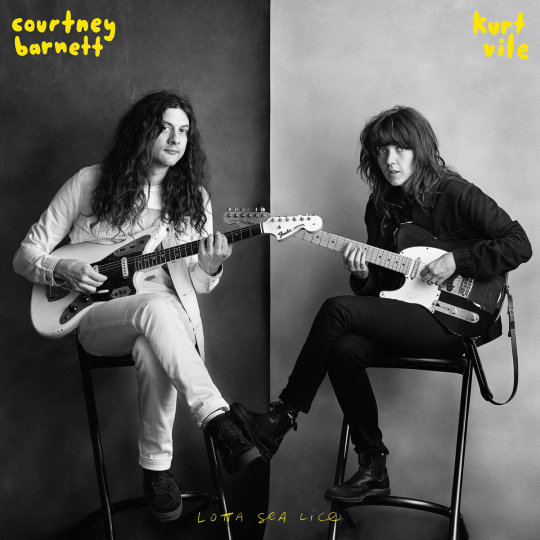
Winner: Courtney Barnett & Kurt Vile - Lotta Sea Lice
Maybe 2017 is bringing us together after all. From Atlanta trap stars to long-lost fables, and indie darlings, this year has been host to countless fantastic collaborations. Among dozens of great crossover albums, Lotta Sea Lice from Courtney Barnett and Kurt Vile remains the one that sticks in my mind most prominently. Featuring breezy Sunday morning songs, this meeting of indie minds a genuinely pleasant listen that will take your mind off even the harshest realities of the day’s news. Sea Lice offers an escape into a world untouched by misery where continental breakfasts are always available, and it’s easier than ever to let everything go.
Runner-up: 21 Savage, Offset, & Metro Boomin - Without Warning
Filed under “things I didn’t expect to be this great,” Without Warning is a joint effort between three of the biggest names in hip-hop this year. Hot off a string of successful albums, this collaborative release finds the two rappers trading verses over some of Metro Boomin’s darkest beats of the year. Sprinkled with a handful of solo tracks and a couple of guest features, there’s just enough variation here to make for an incredibly compelling listen.
Most Fabulous Christmas Bop

Winner: Sia “Santa’s Coming For Us”
The chandelier-swinging popstress returned in 2017 bearing gifts in the form of Everyday Is Christmas, a collection of 10 original holiday songs. Kicking things off, the album’s lead single “Santa’s Coming For Us” is a jubilant and dancy track with just enough of a dark undercurrent to be enjoyed by all. If this song isn’t a Christmas classic next year, I will be severely disappointed in us as a civilization.
Runner-up: Phoebe Bridgers “Have Yourself a Merry Little Christmas”
Introduced on social media with the caption “this emo cover brought to you by the atheist who loves Christmas,” this post-album loosie sees Bridgers reworking one of the best holiday songs in her trademarked remorseful delivery. Accompanied by a lone guitar and bare instrumentation, this is the one Christmas song that’s guaranteed to make you cry at least one or two tears into your hot chocolate.
Best Use of an Englishman Doing Spoken Word Narration

Winner: King Krule “Bermondsey Bosom (Right)”
Framed as the later-album counterpart to “Bermondsey Bosom (Left),” “Bermondsey Bosom (Right)” is a jazzy and fluid track that uses Archy Ivan Marshall’s father to weave a brief but illustrative tale of darkness. Only one minute long, the song is a fantastic and moody diversion in an album that’s brimming over the top with unique ideas.
Runner-up: Feist - “Century”
As much as I like Feist’s Pleasure and her use of Pulps’ Jarvis Cocker on “Century,” this entry gets dinged solely for its mathematical inaccuracies. Next time you get this specific about the length of your dark night of the soul, make sure you fact check beforehand.
Most Anticipated Release of 2018
Finally, let’s end by looking forward at two records that I can’t wait to hear in 2018.

Winner: Snail Mail - Unknown Debut
From Tiny Desk performances to Matador co-signs, it’s been a banner year for Lindsey Jordan. Lovingly documented in my guide to female-fronted music in 2017, I first discovered Snail Mail back in May as they opened for Girlpool in concert. For the last song of their set, the group’s drummer and bassist left the stage, leaving frontwoman Lindsey Jordan alone in the spotlight facing a rapt audience. With just a guitar and a mic she played “Anytime, ” and I was left with my jaw on the floor. It was an awe-inspiring performance, one of my favorites of the year, and a moment that I’ll always remember. To see the traction they’ve gained over the past several months has been nothing short of incredible. Watching Jordan grow has already been rewarding, and her success is incredibly well-deserved. Snail Mail’s 2018 debut LP should be something else.
Runner-up: Shortly - Unknown Debut
Fronted by Alexandria Maniak, Shortly is a reverb-dripping emo act that I’d never heard of until I saw her open for Aaron West live. While Shortly only has two songs currently released, she’s already signed to Triple Crown records with a debut record scheduled for next spring. To say I was blown away by her live performance would be an understatement. Perhaps one of my favorite sets of the entire year, she took the whole room by surprise and had everyone listening with a hush by the time her first song was over. Based on what I saw, she’s currently on track to be the world’s next Julien Baker with sadder music, slower tunes, and more colorful hair. I absolutely cannot wait to see what the future holds for this promising artist.
#2017#music#the wonder years#jeff tweedy#dirty projectors#ugly god#flume#kendrick lamar#pinegrove#camp cope#angel olsen#sufjan stevens#drake#lorde#spoon#turnover#cardi b#perfume genius#lil aaron#jayz#brockhampton#feist#brand new#clairo#diet cig#charli xcx#courtney barnett#kurt vile#21 savage#migos
11 notes
·
View notes
Text
A Grand Celebration: Musical Serendipity, Distant Memories, and the Preciousness of Tradition. Words on Sufjan Stevens’ Michigan
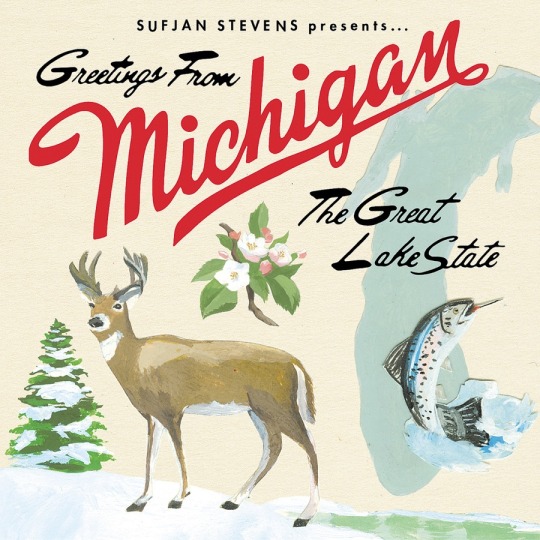
There are 48,193 songs in my iTunes library right now. That’s 5,139 albums, 336 gigabytes, and a little over 160 days worth of music. Amongst this staggering (and seemingly-unwieldy) amount of audio lies my most cherished playlist: a 20-hour-long mix creatively titled “December.”
“December” stands alone as a personal treasure, my crown jewel, and the flame that single-handedly ignites my holiday cheer. Grown and cultivated over the course of multiple years, the playlist is a wide-ranging mishmash of various Christmas albums, years-old podcasts, and even some “normal” music that I’ve simply come to associate with the holiday season after multiple years of repeated seasonal listening. My “December” playlist is a testament to curated obsession, self-enforced tradition, and the beauty of the Holiday season. It’s my Christmas spirit encased in a cold, unfeeling .xml file.
The cosmic joke is that, as much as I care for this playlist and the songs contained within it, it’s just that: a collection of random songs. Nobody aside from me would ascribe any particular value to the ordering of these tracks, but I guess that sense of uniqueness is what makes playlists such a sacred musical concept. The other thing that makes playlists so wonderful is their inherent sense of surprise and randomness: the feeling of discovery that comes with stumbling upon a great mix, or the inspiration a single song can carry that inspires you to create one of your own.
Listening to “December” has become a holiday tradition of my own, and as special as the playlist is to me, the entire thing was started by accident. Inspired by a single group of songs and a random iTunes shuffle, this seasonal institution has now ballooned beyond my control and only gotten bigger each year. This is the story of the inception of this playlist, spurred by an album that has severely impacted me and whose sentimentality has become a foundation of my personality.

Discovery
Back in high school music was my escape… not that I had anything to escape from, but music was (and still is) my reality. My one truth. Every morning as I prepared for the day I would let iTunes run through a never-ending shuffle playlist of my music library. They were my last minutes of absorption. My final escape into the realm of sound before venturing out into the world. It was a ceremony that I relished and grew to hold dear over the years.
One cold November morning six years ago, The Shuffle Gods placed a Sufjan Stevens song at the top of the queue. Back then Sufjan was a curiosity; an artist that I’d heard about and always meant to get into, but perpetually found himself on my musical “to-do” list. Thanks to an overly-eager friend, his discography had been sitting on my hard drive, in full, for around a year at that point. In a way, I suppose seeing the full breadth of his work only made diving into his music that much more daunting.
On this fateful day, iTunes DJ (rest in peace) decided that it was finally time for me to hear a Sufjan track and “Oh God, Where Are You Now? (In Pickeral Lake? Pigeon? Marquette? Mackinaw?)” began playing. It was divine intervention. It was exactly what I needed to hear at the moment, and I became transfixed. “Oh God, Where Are You Now” immediately drew me in and hung in my chest like the first deep inhale of a cold winter morning. I was so floored by the song that I needed to hear what came next. I paused the shuffle playlist and embarked upon a search to find the record that this track called home.
This excavation led me to Sufjan’s 2003 album Greetings from Michigan: The Great Lake State which I promptly queued up and let play out. Turns out “Oh God, Where Are You Now?” was track 13 of 15, so while there were only two other songs that followed, I felt compelled to see this record out to its conclusion.
The two songs that came after (“Redford (For Yia-Yia & Pappou)” and “Vito's Ordination Song”) ended up forming a trio of incredibly potent and deeply-impactful wintery songs that told one coherent and eerie tale.
If the album and songs titles didn’t give it away, Sufjan is not a man who’s concerned with punctuality. While three songs may not seem like much, this final stretch of tracks that close out Michigan ends up coming out to 19 minutes of music. Back in high school, that gave me just enough time to complete my morning routine and get out the door on time.
I became fixated on these three songs, and for the remainder of that year, they became my morning ritual. The soundtrack for two months of sleepy-eyed morning preparation. A sacred custom that I ended up recreating the next year. And the year after that. And the one after that. In fact, for years these three songs were all that I ever listened to from Sufjan’s wide-ranging discography. This 19-minutes of music came to represent the beginning of the holiday season, a near-daily habit of lovingly embracing three folk tracks from an album I hadn’t even listened to all the way through yet.

Obsession
Several years back I realized how silly it was that these three songs were the only ones I’d listened to from Sufjan in earnest. I repeatedly tried to dip my toes into the rest of his discography, and soon “trying Sufjan” became a yearly tradition as well. Year after year I attempted various entry points: whole albums, popular singles, even the rest of Michigan, but nothing ever grabbed me in the same way that those three tracks did.
Then in 2016, it happened: I became obsessed with Sufjan.
I don’t know how it happened or when it did, but it was as if a switch had been flipped in my head. Suddenly everything clicked all at once, and I found myself devouring his discography whole. I had his 5-hour Christmas catalog on repeat. I read every article with his name in the headline. I purchased enough vinyl to create a makeshift shelter. I couldn’t escape from Sufjan Stevens.
By the end of the year, I had racked up nearly 1,000 Sufjan plays, 82% of which occurred between November and December. Every listen up until that year had been relegated almost entirely to the final three songs off Michigan, but suddenly his entire discography had launched itself into the upper stratosphere of my musical consciousness.
In diving through the rest of his albums last winter I now have a firm understanding of who Sufjan Stevens is as an artist and where he sits on the musical spectrum. It turns out that he’s far from the sad, plucky folk singer that I had initially pegged him as. This year I’ve already exceeded last year’s numbers, and #SufjanSeason has become an official holiday in my house. So not only did 2016 signify a tipping point, it represented the beginning of a beautiful, rabid fandom that has opened the door to a new seasonal tradition and hundreds of hours of beautiful music. At the same time, I feel like I’ve only begun to scratch the surface.

Trinity
Sufjan Stevens has arguably made two near-perfect albums: both 2005’s Illinois and 2015’s Carrie & Lowell are widely considered masterpieces of the indie folk singer-songwriter genre. The former is a multi-instrumental masterpiece that showcases an astonishing array of sounds, topics, and textures. The latter is an instrumentally-bare folk album that finds Stevens meditating on life in the wake of his mother’s death. They’re both impeccable records that are worth diving into and worthy of their status as indie essentials, but neither are what this post is for.
Despite recognizing both Illinois and Carrie as “better albums,” I enjoy Michigan more, and I’m still grappling with what that means. While these later albums either swirl and flutter to life with a flurry of baroque instrumentation, or reserve all musicality behind a single veneer of raw guitar and vocals, Michigan lies somewhere in the middle. Packed with frost-covered horns, intimate acoustic guitars, and tenderly-delivered lyrics, Michigan is a chilly, introverted, and thought-provoking record that gently congeals into a cozy wintery panorama.
Like untamed cresting hills covered by a blanket of snow, the surface of Michigan is calm and uniform; a stark, raw, and silent beauty. However, much like that bed of new-fallen snow, once you begin to dig all sorts of unknowable intricacies begin to reveal themselves. It’s a winter wonderland of crisp sounds, all delivered in a singularly-grand package. It’s an album that’s whimsical and but also grounded in dissolution and the pain of existence. Michigan is what it would sound like if the Charlie Brown Christmas special took place in the 2000’s and the characters were all listless 20-somethings without jobs.
If I were to get someone into Sufjan Stevens, I’d still probably point them to either Illinois or Carrie & Lowell (depending on their taste), yet Michigan stands alone as an understated personal favorite of mine for many reasons. Perhaps it’s just thanks to my personal relationship with the album, but accidentally falling into Michigan’s embrace over the course of multiple years has allowed it to embody every warm holiday memory that I’ve ever experienced. It’s my favorite Sufjan record, a wonderful holiday offering, and one of the best in the entire genre.
The remainder of this post is a profile of Michigan and a (near-track-by-track) breakdown of what makes the album worthy of worship. I also adore this record so much that I took it upon myself to create a bunch of mobile wallpapers, so have at them.

Wonderland
Cartoonishly pitched as the first album in a 50-part project covering every state, Michigan is Sufjan Stevens’ third official LP. Preceded by A Sun Came and the electronic Enjoy Your Rabbit, Michigan was far from Sufjan’s first rodeo, but it marked the first time that he seemed to land on a complete and definitive sound. Especially when compared to later albums, Sufjan’s first two outings are great, but end up coming off like a “first attempt” and a left-field electronic diversion that were merely used as stepping stones to later greatness. The entrees meant to hold us over until this: the main course.
Technically a concept album, Michigan is a love letter from Stevens addressed to the state in which he was born and spent a majority of his childhood. The album is a comprehensive look at The Wolverine State, addressing everything from the common points of reference (The Great Lakes, popular sports teams, and overwhelming poverty) to intimate portrayals of what it’s like to live there. All of these tales are sung from the perspective of someone who has a deep, personal, and profound understanding of the area which makes them feel supremely genuine and heartfelt.
Michigan’s first track “Flint (For the Unemployed & Underpaid)” kicks the album off by tackling the exact issue that the state conjures for most people: joblessness. Beginning with a series of arid, ruminating piano chords, Sufjan soon enters singing from a whispered first-person perspective that depicts a dreary future of sadness and uncertainty. Jobless and homeless, the narrator finds himself “pretending to try” but secretly resigned to dying alone. Halfway through the track, a singular trumpet pairs with the established piano melody as Sufjan repeats his death-defying mantra over and over again until the final line is cut off mid-sentence. Shortly after this abrupt end, a hum of ambient noise consumes the song, and the next track begins.
It’s a haunting piece and a stark way to open a record. Most people don’t want to think about losing their job and dying sad, homeless, and alone on the street, yet on Michigan, these ideas are not only commonplace, they're scene setting. An introduction. The first taste that transports the listener, giving them a sense of place and, hopefully, a similar sense of hopelessness that allows them to empathize with the remainder of the album. This dark opening salvo is contrasted even further by it’s following track “All Good Naysayers, Speak Up! Or Forever Hold Your Peace!” which is a jubilant and bouncy stream-of-consciousness song that explodes with a brassy baroque chamber arrangement.
Here we’re introduced to the “concept” of the album as we realize that every song is sung about the state from different perspectives. This framework allows Stevens to show both the good and bad of Michigan, rapidly shifting from broad sociopolitical issues, then zooming all the way down to hyper-detailed illustrations of interpersonal drama.
Mid-album cuts like “The Upper Peninsula” are down-to-earth groove-centered depictions of rural lower class America. Sufjan finds himself tackling divorce, detachment, and the mundanity of day-to-day life in between Payless Shoes and K-Mart name-drops. Similar sounds are later revisited on songs like “Jacksonville” and “Neighbors” off Illinois but end up focusing on much different song topics.
Even a cursory glance at the album’s credits reveal the shocking amount of instrumentation at play on each of these tracks. Sollum banjo plucks serve as the background on “For the Widows in Paradise, for the Fatherless in Ypsilanti.” Horns and trumpets emerge at unexpected times but are used so precisely that you probably won’t even notice them upon first listen. Instrumental tracks like “Tahquamenon Falls” are jaw-dropping scenic soundscapes that brim with cascading xylophone notes that dance around your head like snowflakes.
Even “traditional” folk arrangements and piano ballads have never been as poignant, soft-spoken, or heartfelt as “Holland” where single isolated piano notes poke up from a whirling frozen mass of sound. Eventually, a backtracked pair of falsetto vocals emerge to echo the song’s chorus, and it paints a vague picture of a couple singing alone in a house with nothing but a guitar, a piano, and each other nearby.
"Detroit, Lift Up Your Weary Head! (Rebuild! Restore! Reconsider!)" is the album’s sprawling ornamental 8-minute centerpiece that begins with a single, rapidly-rung bell. Soon a piano enters the mix, then a guitar, then Sufjan himself. The entire track builds around the beat of that bell until dozens of individual instruments all combine into this massive, extravagant, and decadent force of nature.
Things get personal on the banjo-plucked “Romulus” as Sufjan recounts several strained interactions with his mother even though he recognizes that he would do no better in her position. This dynamic would later be revisited and fully-addressed on Carrie & Lowell, but, “Romulus” is still a striking portrayal of a frayed relationship as well as the joys and frustrations that come along with family.
Finally, “Sleeping Bear, Sault Saint Marie” is an epic, swelling biblical track that escalates in delicate crescendos that all climax into one massive, breathtaking wall of sound. Accompanied by Megan Slaboda and Elin Smith, this late-album cut features an awe-inspiring instrumental mixture of organs, cymbals, and warm brass instruments. A careful and measured track that slows down to nothing then explodes to life.
The entire album sounds like a snow-covered log cabin. It feels like a warm cup of hot chocolate on a cold, grey, rainy day. It smells like a freshly-cut noble fir. It tastes like a home-cooked bowl of soup. It’s the warm wool blanket enveloping your body. The cinnamon-sprinkled cookies that just came out of the oven. The glowing lights that dance and twinkle above your head. It’s musical soul food. It’s wholesome and full-bodied music that makes me want to be a better person. It’s absolutely flawless.

Despair and Grace
Circling back to the jumping off point of this post: I still remember hearing “Oh God, Where Are You Now?” for the first time and being struck with a strange sense of deja-vu. The track instantly evoked something deep inside of me. It made me feel everything that I’ve described up until this point and also came with a strange sense of familiarity. It felt like a piece of a past life that I’d lost and now recovered. I carefully studied the album artwork, and it looked like a long-lost Christmas album. The majestic snow-covered pine tree, the elegant deer, the warm red lettering, all captured in Laura Normandin’s beautiful brush strokes over a rich parchment. Everything about Michigan felt picture-perfect.
After 47 minutes of splendor, the most brilliant moment of Michigan comes with its final three-song stretch that winds from “Oh God, Where Are You Now? (In Pickerel Lake? Pigeon? Marquette? Mackinaw?)" to “Redford (For Yia-Yia & Pappou)” and “Vito's Ordination Song.” These three songs stand on their own as a singularly-impactful and world-shaping experience that are intertwined with some of the fondest, warmest, and most intimate memories of my entire life.

“Oh God, Where Are You Now?" begins with Stevens addressing God directly. Paired with a barely-distorted guitar line and a gently-played piano, our narrator finds himself questioning his faith as he whispers the title of the track and begs for God to touch him. Sufjan’s voice intertwines with a hushed group of backup singers comprised of Megan Slaboda, John Ringhofer, and Elin Smith as they collectively ask “Would the righteous still remain? / Would my body stay the same?”
Soon all four vocalists combine into one extraordinary force, all singing over a sparse, mounting piano melody and finger-plucked guitar. Midway through the song, after repeating the same set of heaven-bound lines, all of the vocalists break into a makeshift wordless chorus as they sing along to the now-established tune set by the piano.
All of the instruments all flicker and shimmer as if being played from a distant memory. The piano is patient and carefully tapped. The guitar gleams and quivers, faint and serene. You can hear ambient noise trickling in between the quiet pauses as if the entire of the studio was breathing and coming to life at that moment.
Near the end of the track, Sufjan’s vocals become more prominent and press up against the backup singers as they all revisit the chorus for a third time. Soon a mighty brush of cymbals erupt. Horns emerge from the corners of the mix and play along with the group's established melody. The piano picks back up, newly energized and boisterous. Soon another pair of horns emerge and add splashes of light to the song’s bigger picture. Every element is working in tandem, taking turns, all adding on to the song’s resounding and soul-affirming chant of “La da da, da da da.”
Then everything quiets to a hum. The horns and cymbals carry the song out with long, colorful streaks. It’s both somber and gorgeous. It’s warm and cozy, a melody that you can slip away into and tuck under yourself like a blanket. A massive tide consuming your soul at a glacial pace. Then, after nine minutes and 24 seconds, it’s gone. Silence.
Picking up exactly where “Oh God” left off, the very next thing the listeners hears are the timbred piano strikes of “Redford (For Yia-Yia & Pappou).” You can make out the distant wooden creak of a chair or a floorboard, and again, your mind is transported back to a remote snow-covered cabin in the middle of the woods. Far-off vocals echo through the top of the mix like specters haunting the lone pianist. Still, the melody continues, the reflective musician is barreling towards his destination with more confidence and determination than ever before.
In the final seconds, Redford’s piano ceases and the ethereal vocals make their last wail before being claimed by static silence, and then the song ends. “Redford” is a momentary meditation before the album’s final impact. The first part of a one-two punch. A connecting piece that serves as the bridge between the album’s two defining works.
Next, the final track unveils itself. “Vito's Ordination Song” begins with an elongated and heavy organ chord, as if the pianist from the last song had suddenly been brought back to life. It sounds wholesome and church-like, evoking the feeling of both a funeral and a sermon.
Sufjan returns from the instrumental abyss and quietly recalls “I always knew you / In your mother's arms.” Swiftly navigating toward noisy imagery of marriage, happiness, and warmth as the organ continues beneath his deliberate vocals. Then after a three-song absence, a set of drums enter the fray. Booming in comparison to the sense of quiet softness we’ve been basking in over the past 15 minutes, the drum keeps time while making way for a subtle horn arrangement and heart-beat-like organ passage.
The album’s cast of backup vocalists rejoin Sufjan for one final time, duetting and echoing the same sentiments as the song’s first verse but now full and exploding with liveliness. The group of singers land gracefully upon a final chorus that ferries us along for the remaining four minutes of the album: “Rest in my arms / Sleep in my bed / There's a design / To what I did and said.”
It’s soul-crushing, heartbreaking, and beautiful. It evokes such a varied range of emotions in me that it feels truly herculean to into words. It is winter. It is Christmas. It is heavenly. It is transcendental. It is every happy moment that I’ve ever experienced over the past decade. The soundtrack to the warm memories that exist only in my head. It’s the reflection of my entire life.
The same way that you feel when you gather with your family to watch that beloved Christmas movie. The way that you feel in the embrace of a loved one. The feeling you get when leafing through an old photo album of memories now long-past. The people you spent your life with. The recipes you made together. The ones that never got to share them. It is love. It is life. It is loss. It is everything and nothing more.
These songs make me unspeakably thankful for the life that I’ve lived, and the life I’m going to lead. They are truly perfect pieces of art. To completely break the flow, I initially wrote this while listening to Michigan for the first time this year, and teared up as I wrote this... Definitely a first for this blog.
In many ways, this three-song stretch is the reason that I created this website. A location for me to document, wholly and lovingly the things that bring me unimaginable joy. The beautiful thing is, everyone has their own three-song stretch. Some little thing that makes you happy. Maybe it’s something that nobody else knows about. Perhaps it’s so esoteric that it feels silly to share with anyone, even those closest to you. But I encourage you to share it. It’s something that you hold dearer than anything else in life. A genuine treasure. A piece of your soul crystallized externally. For me, that’s Michigan. It’s a work of art, a masterpiece, and my life.

#Sufjan Stevens#asthmatic kitty#michigan#illinois#carrie & lowell#christmas#folk#music#holiday#indie#2003
1 note
·
View note
Text
Holiday Traditions, Metalcore Nostalgia, and Worshiping Our Own Past

Now that the holidays are upon us, it’s officially my power season. As much as I am a militant proponent of Having a Summah, Winter is a close second favorite for one reason, and that’s tradition.
Tradition is the all-encompassing, all-important, and infinitely-renewable source of holiday cheer. A celebration of our own past, and the past of our loved ones. It’s the one thing that makes this time of year truly precious and different from any other. Perhaps best of all, “tradition” is entirely unique from person to person; a double helix of reverence for our own history and memories.
Obviously, most people have traditions that they share with loved ones; picking out a Christmas tree, overeating at family dinners, watching specific seasonal movies, etc. Even the most atheistic household in the world probably has something unique that they do around this time of the year, even if it’s just going to the movie theater to avoid crowds. As great as those communal institutions are, I’ve been a staunch believer that the small, self-made traditions are as just as important as the big shared ones.
Tradition as a concept is so important to me that it was one of the first five posts I ever wrote on this site. Since I’ve already got multiple Christmas/year-end posts cooking up (and because I recognize my excitement for the holiday is offputting to some), I’ll instead use this specific write-up to focus on November.
Fueled by nothing but the endorphin rush of nostalgia and slavish devotion to the Christmas spirit, hyper-esoteric rituals begin to leak into nearly every aspect of my life by the time that Halloween is over. I watch specific episodes of TV shows, replay old video games, change the wallpapers on all of my devices, listen to old podcasts, and of course break out the winter music. In fact, one of the primary reasons for my seasonal exuberance is because I’m allowed to revisit music that’s only “acceptable” to listen to during these months.
As much as I love the gigabytes worth of Christmas music in my library, my “Winter music” playlist consists of much more than just on-brand holiday tunes. Over the years I’ve come to fully-embrace being the guy who gets into Christmas as soon as Halloween is over only because it marks the time of year that I get to break these songs out. Like I said, I’m not going to dip into holiday music on here yet. I don’t want to subject you guys to that much Christmas spirit, I’m merely trying to contain myself.
The point is that it would be a disservice to listen to these songs any time besides now, if only because it would make them less special. Obviously “Jingle Bells” would feel weird to listen to in July (and it does sound like a quirky character trait from a Noah Baumbach movie), but there’s just as much, if not more “regular” music that I relegate to the holiday season.
Case in point: the topic of this post. I tend to dip back into my high school-era metalcore around this time of year. Psychoanalyze that all you want, but I’ve now got a fiercely-cultivated playlist culling hundreds of songs from various years of angsty Christmases past. It’s a weird combination, but maybe this music provided me with some counter-programming that combatted both the warm holiday music and cold weather.
You can consider this write-up a bit of a pseudo-sequel to this post from earlier in the year about springtime metalcore. It’s weird because these two seasons are really the only time that I dip back into the genre, but man do I still have a soft spot for it. It’s mainly weird because these songs and albums now fill me with as much joy and holiday happiness as the tonally-inverse Christmas tunes.
At any rate, the same disclaimer on that earlier post applies here: I’m not necessarily proud of any of the music on this list, but it’s a concoction of albums that I find particularly potent. Records that have brought me years worth of happiness, and still have the power to collectively inspire me.
Artifex Pereo - Am I Invisible (2009)

Much like Julien Baker’s 2017 album, Am I Invisible begins with a single, eerie wooden creak. Perhaps belonging to an old floorboard or the frame of a handmade door, this haunted timbered gasp immediately gives the listener a sense of place, as if the entirety of Am I Invisible is settling into your headphones then and there. There’s a brief pause, and then the group’s vocalist Evan Redmon makes his presence known as he belts out the album’s title over a seemingly infinitely-layered vocal take. The remainder of the EP is a 25-minute sample platter that combines the best moments of Kurt Travis and Tilian Pearson-eras of Dance Gavin Dance. The album’s closing track “Neighbors” showcases the band’s already-sharp ear for songwriting, melody, and awe-inspiring emotionally-impactful build-ups. While the group only put out one more release with this early line-up, they still managed to capture something incredibly special on this early EP.
Bring Me The Horizon - Suicide Season (2008)

Back in high school, Bring Me The Horizon’s debut album, Count Your Blessings was the hardest thing I’d ever heard in my life. Filled with bangers like “Braille (For Stevie Wonder's Eyes Only)” and “(I Used To Make Out With) Medusa” multiple tracks from this album would go on to become genre-defining anthems for this era of the hardcore scene. As you could imagine, the record was an absolute revelation in 2007 and served as the first real brush with deathcore that I’d found palatable at the time. When stacked against the genre-wide impact of their debut, most fans went into the band’s sophomore album with near-impossible expectations.
Softening every aspect from vocals to instrumentation, Suicide Season represents the band’s fully-fledged pivot into a more accessible metalcore sound. While it initially fell flat for me, something kept calling me back to Suicide Season, and in 2017 it’s now my favorite album of the entire genre. Filled with immaculately-produced songs of bile and aggression, tracks like “Diamonds Aren’t Forever” have come to represent the absolute best that this scene has to offer. While the band has continued on a path toward an increasingly-accessible sound, Suicide Season is an achievement that remains an untouched peak of 2000’s metalcore.
A Bullet for Pretty Boy - Revision:Revise (2010)

Hailing from East Texas, A Bullet for Pretty Boy’s debut album is a near-perfect Woe, Is Me doppelganger. Featuring punchy driving instrumentation, tight glitchy drumming, and absolutely crushing breakdowns, every track on Revision:Revise is a pointed showcase of each band member. Guitarist Derrick Sechrist belts out catchy clean choruses, alternating vocal duties with Danon Saylor whose throat-shredding screams impress their weight upon the listener’s consciousness.
While each track is thoughtfully put-together, the album’s definitive performance comes in its final six minutes on “I Will Destroy the Wisdom of the Wise.” The track, which initially made its debut on the band’s 2008 demo, finds new life here thanks to two years of instrumental honing, and a newly-added Tyler Carter feature. It’s quite hard to oversell exactly how much I love this track, but up until last year the song had the unique distinction of my most-played song of all time, and if 200 listens isn’t a commendation then I don’t know what is.
“I Will Destroy the Wisdom of the Wise” is my single favorite song of the entire metalcore genre, my wonderful discovery, and lone takeaway after years of embedding myself in the scene. Every element of the song is immaculate, a marvel to have been captured and recorded in such a flawless state, forever encased in unchanging code. Every word is considered, the drumming is ferocious, every moment is well-placed, and the Tyler Carter feature is the vocal cherry on top of an already delicious sundae. A triumph of the genre.
Chiodos - Illuminaudio (2010)
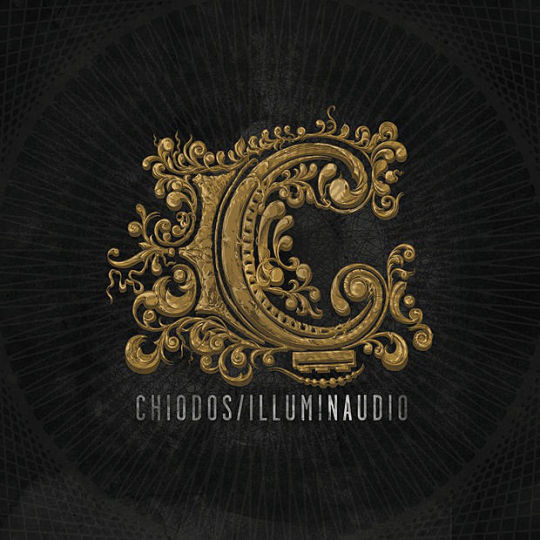
Fronted by the inimitable Craig Owens, Chiodos was a trailblazing post-hardcore band whose 2005 sophomore album All's Well That Ends Well served as an entry point to the post-hardcore genre for millions of listeners. In late 2009 Chiodos announced their intention to carry forward as a band without Owens, publicly ousting one of the genre’s most seminal figureheads. Skeptical, cautious, and apprehensive, most fans went into the band’s following album with their guard up; how could the next guy possibly stack up? Like many other fans, I assumed I’d be over the band given the major pivot the comes with the changing of vocalists. In late October of 2010, a friend gave me an impassioned plea to give Illuminaudio a listen, and man am I glad he did. The record is a sprawling, conceptual, and voracious release that aimed high and still managed to surpass every possible expectation.
Much like his predecessor, Brandon Bolmer finds himself handling both clean and screamed vocals throughout the project, managing to reach both high-pitched Owens-esque croons and deep, soul-puncturing screams. The guitar and bass both sound full and rich, providing the perfect counterpoint to Tanner Wayne’s tightly-wound drum patterns. To put it simply, everything is on-point because the band wanted to prove their mettle now that the main star had left. Not only did Chiodos succeed, but they also created the best album in the band’s history and another one of my favorites in the metalcore genre. Owens’ eventual return in 2012 turned Illuminaudio into the unwanted black sheep of the Chiodos family, but in a way that makes this record all the more one-of-a-kind. Truly lighting in a bottle.
Crimson Armada - Guardians (2009)
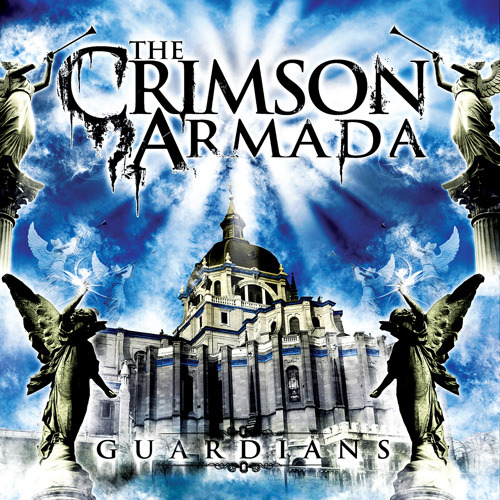
With unrelenting vocals, and brutal machine gun-like instrumentation Crimson Armada’s debut album is a little rough around the edges but worth revisiting. The album’s title track “Guardian” alternates from fierce rapidly-spit screams to deep skull-crushing breakdowns. Similarly, “The Sound, The Flood, The Hour” is an absolutely punishing and ruthless track with a surprising amount of melody and musicality (once you adjust to the band’s vocals).
Dance Gavin Dance - Acceptance Speech (2013)
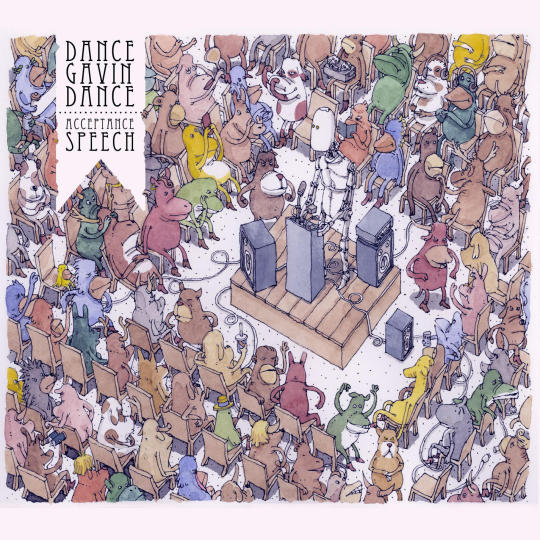
Far and away the most recent album on this list, Acceptance Speech released in the fall of my third year of college. While I’d largely grown out of the post-hardcore scene by 2013, Dance Gavin Dance remains the one group from the genre that I still listen to regularly. After numerous lineup changes, Acceptance Speech marked the band’s first release of its current incarnation featuring Tides of Man’s Tilian Pearson on vocals.
The album kicks off aggressively with “Jesus H. Macy,” luring long-time fans into a sense of familiarity with Jon Mess’ screamed vocals. The album is home to some of the band’s most experimental tracks like a crushing riff on “Carve,” chopped-up vocals on “Demo Team,” and the remix-ready “The Jiggler.” The album also hosts one of the strongest closers that the band has ever had on an album, making for a nice bookend of screamed Mess vocals.
While I didn’t think much of it at first, Acceptance Speech grew to be my favorite from the band. The entire record has a beautiful feeling uniformity and wholeness to it, making for one of the most pointed albums in the band’s discography. The whole thing has a wonderful haze to it, like it’s been filtered through a cold December night in the city. There are warm glowing lights, and you can practically see the steam rising off the band as they play. It was proof that Dance Gavin Dance wasn’t going to let one member stop them. I’m glad that they’ve continued with this lineup for so many fantastic releases now because this album only represented a new creative peak that the group set for themselves.
A Day To Remember - And Their Name Was Treason (2005)

A Day To Remember made a name for themselves in 2005 by embracing a unique mixture of metalcore leanings and bouncy pop-punk influences. While later albums are far more polished, fleshed-out, and nuanced, there’s something undeniably charming about the group’s debut. Every band member is still so young and green here, it’s endearing and inspiring to hear such a massively-successful and influential band in such a rough state.
Starting off aggressively with “Heartless,” the band eventually winds its way to the light with “You Should Have Killed Me When You Had the Chance” and “1958,” songs that offered glimmers of the group’s later brilliance. Even in this underdeveloped, underproduced, and underwritten state, there’s an undeniable appeal and magic at play on And Their Name Was Treason, and it’s easy to see how the band made a career out of jumping from pop-punk choruses to metalcore breakdowns. The first of many successful outings in an incredibly-fruitful career.
Dead and Divine - What Really Happened at Lover's Lane (2005)
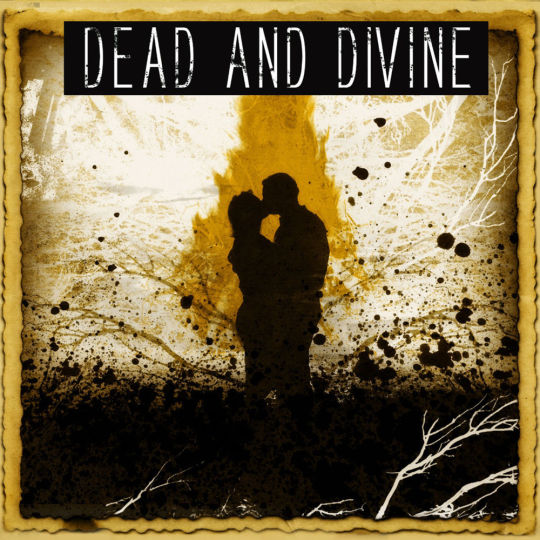
Much like A Day To Remember’s debut album, Dead and Divine’s 2005 EP captures a band in its charming infancy. While their later full-lengths would go on to favor (and hone) a much more aggressive post-hardcore sound, What Really Happened at Lover's Lane features a softer, more careful approach to the genre. With crisp cleans and deeply-growled screams, each song explodes into brutal crescendos of original storytelling. The band’s masterful approach to the build-up is best exemplified by the album’s closing track “Goodnight, Quiet City,” an acoustic ballad that suddenly erupts into a fierce wall of grief before finishing in an orchestral swell accompanied by piercing anguished growls.
Emarosa - Emarosa (2010)

Things seemed to be trending upward for Jonny Craig in 2010, he’d rejoined Dance Gavin Dance after a two-album absence and mended fences with Emarosa in order to helm the group’s killer sophomore album. While things came off the rails quickly after its release, Emarosa’s self-titled record took every sound developed from the band’s earlier works and improved on them markedly.
This is the first time the band congealed into a fully-formed, standalone entity. While many of his other projects see Craig’s vocals taking the lion’s share of the spotlight, on this release the band figured out how to fit his singing into the instrumentation in a way that everything folds together into one presentable package. It’s a record of constant forward momentum, and one of the best uses of Craig’s incredibly-distinct vocals.
Issues - Black Diamonds (2012)

Formed after the spiteful dissolution of the groundbreaking Woe, Is Me, Issues features a nearly-identical lineup of musicians with a few welcome additions. The group’s 23-minute Black Diamonds EP officially announced the members reuniting, addressed the previous group’s turbulence, and outlined their resolution to move forward with positivity.
After addressing the extra-musical drama, the remainder of the EP is simply overflowing with unique ideas, bringing dozens of fresh elements to a genre that had become stale within the space of a few years. By infusing metalcore with electronic elements, R&B, pop, hip-hop, and much more, the group managed to create something far greater than the sum of its parts: something wholly original and different in a scene where such concepts are often rejected and deemed unmarketable.
Featuring poppy cleans by Tyler Carter and deep fight-inducing screams from Michael Bohn, Issues added some much-needed excitement to the metalcore scene, and Issues’ originality helped differentiate them not only from their previous group but also from the rest of the genre. Two years later the band had released their first full-length, and an accompanying EP that reworked 8 of the band’s songs into newly-formed acoustic tracks. These acoustic versions managed to breathe new life into these already-great songs while also serving as further proof of the band’s musical versatility. These releases represented a positive turning point in my view of the genre and definitive evidence that there’s room for growth in this industry and in life.
Secret and Whisper - Teenage Fantasy (2010)

As with any other popular music scene, bands are born, break up, and then disappear forever. Throughout the early 2000’s literally hundreds of post-hardcore groups got together, created a Myspace, released some music, and then vanished as quickly as they’d appeared. Of all the bands from this era that released music and died out, the one that I miss the most is Secret and Whisper. If anything, I suppose we should consider ourselves lucky that they worked together long enough to leave us something as heartbreakingly beautiful as Teenage Fantasy.
Probably the least “hardcore” of all the bands on this list, this would be my one recommendation to anyone reading this list who is not interested in the scene. It’s one of the most out-there and original approaches to the post-hardcore genre, and an entry I hesitated to include with the other entries on this list.
For 44 minutes Teenage Fantasy shines, glimmers, and brims over the top with fresh ideas. Simultaneously otherworldly and down-to-earth, the album is a glossy and emotional journey into the depths of frontman Charles Furney’s psyche. “Youth Cats” opens the album with a snarling guitar riff and a mythical lyric about the ‘lady of miracles’ who commands the river. Straight out of the gates Furney’s voice is volcanic, straining and stretching, brushing his upper register as the bass bounces back and forth beneath it. “Youth Cats” kicks the entire record off with an unrelenting forward momentum that gives the whole album a sense of immediacy and spectacle.
From there literally every. single. track. hits. Throughout the 44-minute running time the vocals soar, the drums hit hard, and the guitar rumbles, all of which swirl together like paint on a well-worn wooden palette, resulting in one singularly flawless record. Even the slower songs like “Upset Seventeen” have a Daniel Johnston-esque charm to them that make them more personable than nearly every other post-hardcore song you’ve ever heard. There are weird electronic diversions like “Pretty Snarl,” and even typically-boring song topics like love and death are addressed in surprisingly eloquent and thoughtful ways. Sometimes the group ventures out even further than expected, addressing topics like animal testing on “Star Blankets” and drawing parallels between serial killers and stardom on “Famous For a Century.” Everything is handled with a surprising level of tact, but also in a way that nothing sticks out as a poor fit. The entire record is unreal, cavernous, and dream-like. It impacts you once and then slowly envelops your body like warm sand. Truly unlike anything I’ve ever heard before or since. A wonderful and underappreciated masterpiece.
We’re Not Friends Anymore - You Are Television (2010)
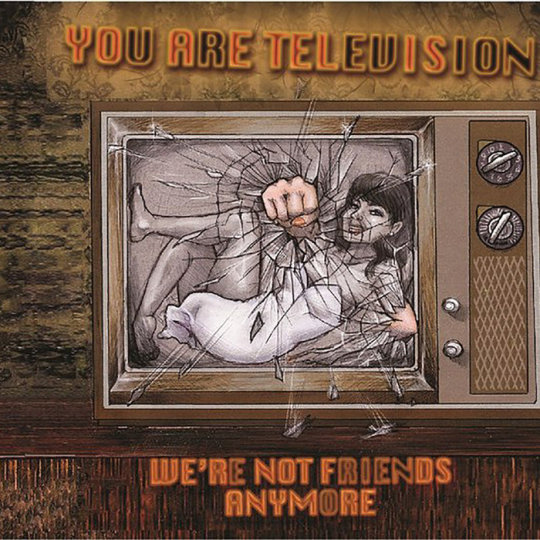
Clocking in at a blazing 13 minutes, We’re Not Friends Anymore’s second (and final) EP finds a band that is hungry for success. The vocals explode and smolder, and the instrumentation brings a distinct groove and movement, making for surprisingly danceable tracks that spring to life. It is a breakup album, but one that seems as ready to move on as it is willing to dwell in the past. I’ve never heard anything like it, and the EP’s punctuality makes for a breezy listen that will quickly embed itself in your brain and worm its way to your heart.
This is only an abridged list of my favorites, you can listen to these albums and many others through this Spotify Playlist.
#Artifex Pereo#bring me the horizon#A Bullet for pretty Boy#Chiodos#crimson armada#dance gavin dance#a day to remember#Dead and Divine#Emarosa#issues#Secret and whisper#We're not friends anymore#metalcore#post-hardcore#music
0 notes
Text
I Liked Them Before They Were Cool: A Portugal. The Man Discography Ranking

Within the last decade we’ve witnessed the rise of a new saying. A disgusting, insulting, and nasty set of words that are designed to provoke and disturb. Almost instantly, the phrase caught fire and took on a life of its own, infiltrating the popular lexicon within a matter of months. It’s a sentence I almost hesitate to write here, even as an example.
I liked them before they were cool.
Simultaneously a criticism, a concern, and a commentary, the loaded phrase triggers parties on both sides of itself. It’s one of the grossest, most overused, and hopelessly cliched sentiments to surface within the past decade of music fandom… Even still, I understand the mentality behind the cred-seeking statement.
While it’s commonly associated with hipsters and the indie elite, you can see the same attitude emerge any time a once-small underground artist hits critical mass and gains enough popularity to make a “mainstream transition.” In some cases (like Nirvana) this transition is out of even the artist’s hands. For fans though, liking an artist “before they were cool” is a concern that the artist will “sell-out” but also an attention-seeking claim in which the speaker is probing for recognition that they are “with it.” It’s simultaneously self-validation and a worry that money will eclipse purity in the heart of the artist.
It’s a double-edged sword because, yeah, any band’s goal is to gain more fans, sell more records, and play bigger shows. It is a career after all, and a hard one at that. Fans should want a band’s success and relish being a part of their rise, but at the same time, it’s also hard not to feel a little bit of ownership. After all, you’re part of the reason they’ve come this far. Your merch is a testament to your commitment. The ratty t-shirts from bygone tours proving unequivocally that you’re no fairweather fan.
Meanwhile, the band that you once felt an intimate relationship with is now on the radio every hour, perched dominantly atop the charts, being lip-synched on Jimmy Fallon, and a staple of every Millennial's “Chill Vibes” Spotify playlist. It’s easy to see how this dichotomy can evoke contradictory emotions within even the most devoted fan.
A bit of a pivot, but (if I were a sports guy) I would guess that this is what it feels like to see your team make it to the playoffs. You’re happy for their success, and you’re absolutely rooting for them, but there’s also a suspicious number of “diehard” fans that seem to have come out of the woodwork. Where were you all last year when we were the underdogs getting our asses kicked? Suddenly the fanbase that you once identified with (or even built your personality around) is now comprised of people that you don’t recognize or actively dislike. If they aren’t as religiously devoted as you, so how can you even relate?

If it wasn’t evident by the title of this article or the Miley Cyrus-laden lip synching clip, I’m talking specifically about Portugal. The Man. The Alaskan-born, Portland-based rock band has reached absolutely astronomical heights this year following the crossover success of Woodstock their eighth LP.
Detailed in this post, Portugal. The Man has been in my life for nearly a decade at this point. Their first release served as one of a half-dozen albums that opened me up to the world of indie music back in high school, and the band has been a fundamental force in both my musical and artistic taste ever since. At the time of writing, various Portugal. The Man albums have been the soundtrack to nearly half of my life, which seems grandiose, but I say without hesitation.
I consider myself lucky to have been a fan of Portugal. The Man from the beginning, and watching their rise in 2017 has been nothing short of extraordinary. Their breakout hit “Feel It Still” has gone platinum, charted in every country under the sun, and most recently made history as rock’s biggest crossover hit in five years. On top of this commercial success, the song has also seen literal commercial success (multiple times), soundtracked trailers, and been remixed to high-heaven. At this point, “sensation” is almost under-selling it.
It’s easy to see why “Feel it Still” has seen such success; the song is groovy, unique, and dancy as all get-out. At a certain point, I began to wonder why it’s taken P.TM this long to chart because “Feel It Still” is far from their best or most catchy song. Yet since it’s release in early 2017, the single has become a cultural landmark that’s sent the band on a path to the pop music stratosphere and forever cemented them as alternative rock mainstays.
youtube
For six years straight Portugal. The Man worked diligently, releasing one album a year from their inception in the mid-2000’s. As if that output wasn't impressive enough, they also managed to challenge fans and themselves alike by switching up their style significantly from one record to the next. While the band flew under the mainstream radar for the most part, P.TM still managed to garner a devoted following over time. Year after year, album after album, the band slowly began expanding their fan base, touring, and cutting their teeth with a seemingly endless stream of creativity.
As a result, the Portugal. The Man’s discography is rich, complex, and rewarding to dive into. The band’s newfound success and proliferation has found me reflecting on their decade-plus history and (now) deep discography. For years you could find me online championing the band as having one of the “best discographies in indie rock, ” and I still stand by that statement to some degree. If anything, “indie rock” is probably the most questionable part of that claim, but we’ll get to that soon.
The band’s most recent press tour has found them questioning the same thing. Cemented by a hyper-self-aware t-shirt, Portugal. The Man has found themselves at a crossroads, now the center of debates about success, selling out, and the “pureness” of artistry. This isn’t a post about that. I may have already talked about it too much, but I’m not here to debate whether or not the band has sold out because either way, I liked them before they were cool. Just kidding.
No, this is a celebration. A chance to put this band’s fantastic work on a pedestal and explain why each record is wonderful on its own merits. There’s an argument to be made for each album’s greatness, and ranking them all was a legitimate challenge. At any rate, this is my definitive, official ranking of Portugal. The Man’s releases. Feel free to hash things out with me on (our brand new) Twitter, or just tell me which album your favorite is. Here’s to another decade of selling out!
9 - American Ghetto (2010)

For their fifth LP Portugal. The Man opted for an “Old Testament Approach” deciding to record American Ghetto in just ten days. Unfortunately, the brevity shows and ended up resulting in one of the band’s most forgettable albums. At this point in 2010 the band was still releasing one album a year, and (maybe I’m just projecting, but) American Ghetto ends up feeling more like rushed experimentation in order to meet a self-imposed deadline than a well-crafted album.
Even with this time crunch, the band still manages to strike some occasional gold. The glitchy hip-hop-infused opener “The Dead Dog” sets the tone of the album flawlessly, indicating that this album (like the ones before it) represented yet another pivot in the band’s sound. Mid-album cut “Do What We Do” is a luxuriant beat-driven track with a catchy group chant that inspires the listener to join in. Even better the album’s closer, “When The War Ends” is a simply undeniable song that remains one of the best in the band’s discography. The track’s joyful chorus will find you reverting to a childlike state of bliss as you belt out “I've got soulful days” without a care in the world. It ends up feeling more like a life-affirming mission statement than just another lyric. It’s a way to live life.
Despite these high points, the biggest sin that American Ghetto commits is familiarity. The middle of the album blends into one giant blur of drum and bass that ends up coming off as by-the-numbers. Looking back, the album served as a necessary stepping stone to their later more hip-hop-influenced work, and while it may not be the best in their discography, if AG’s shortened recording process gave the band more time for later albums on the list, then it was worth it. The record’s half-hour running time and spectacular closing track more than make up for its slightly-saggier middle.
8 - Woodstock (2017)

True to its name, Woodstock starts off with a sample of Richie Havens’ “Freedom,” the very first song to be played at Woodstock in 1969. Soon a booming (distinctly modern) bass and set of drums enter the mix, and John Gourley swaggers into frame with a set of dreary and world-weary lyrics. By the time the song’s outro rolls around the band seems to be back in high spirits, a perspective from which they’ll be singing for the remainder of the record.
Emerging after a four-year period of Soundcloud loosies, soundtrack contributions, and trickled singles, Woodstock is the product of the longest album gap in the band’s history. Although the group was far from silent during this four year period hype began to mount late in 2014. Initially teasing the name of their 8th LP as Gloomin’ + Doomin’, the group recorded most of an album under the supervision of the Beastie Boy’s Mike D, but eventually decided to scrap G+D and go back to the drawing board. What they came back with was Woodstock, an album featuring some of the most clean, crisp, and well-produced songs in the band’s repertoire.
Woodstock is far from the band’s most profound or obscure record in fact if we continue the “each album adopts a different genre” train of thought, Woodstock is the band’s straight-up pop effort. Bolstered by commercial-ready songs like “Live in the Moment” and the aforementioned “Feel It Still,” the album has elevated the band to new heights, inspired a thousand memes, and increased the band’s audience by ten-fold through sheer earwormy approachability.
There are a few moments that fall flat like an out-of-place verse from Fat Lip, some intentionally dumb songwriting, and a couple of roast-worthy lyrics on “Rich Friends,” but as a whole Woodstock hangs together as a strong pop outing from the boys in blue. If nothing else, this album is commendable for how well the group was able to craft an approachable smash hit like ���Feel it Still” and still managed to scratch older fan’s need for something deeper and more psychedelic. It’s radio-ready but also artistically fulfilling. It’s a phenomenon. Full stop.
7 - Censored Colors (2008)

This is where things get interesting. I’ll admit I’m not the biggest fan of American Ghetto or Woodstock, but rather than blame it on the quality of those albums, I’d instead chalk it up to the absolutely staggering quality of the remainder of the band’s discography.
Censored Colors, Portugal. The Man’s third full-length marks the most effortless and full transition in the band’s entire discography. Building on the bluesy sound of their previous record, the group injected gobs of jazzy psychedelic instrumentation and first-person narratives, making for one of the most personal and impactful narrative pieces in their history.
The record’s jaw-dropping opening three track stretch showcases a newly-matured band that’s now honed to a fine point. Things kick off with the (surprisingly cheery) death meditation “Lay Me Back Down” and wind from the choral “Colors” towards the tender, smoldering “And I.” Censored Color’s opening 15 minutes serve as the perfect encapsulation of the expansive and kaleidoscopic odyssey that the listener is about to embark upon.
Later album cuts like “All Mine” and “1989” all bleed into each other seamlessly for a spellbinding medley that rivals the back half of Abbey Road. It’s a soulful expedition that ends up being a showcase for Gourley’s vocals and the band’s more jam-based experimental rock. It’s a record full of sound, life, and heart. Like a warm bowl of soup on a cold day, Censored Colors is guaranteed to light your fire and heat your soul.
6 - It's Complicated Being a Wizard (2007)

In case the cover didn’t tip you off, It’s Complicated Being a Wizard is Portugal. The Man’s tripped-out attempt at their own Kid A. Recorded in the wake of the band’s first record, this self-described “mini album” began as Gourley tinkering with vocals laid over electronic beats. Eventually, the project snowballed and ballooned to a 23-minute running time (a sly reference to Michael Jordan’s tenure with the Washington Wizards), and the songs evolved from scraps and sketches into an official EP.
While Gourley’s distinct vocals remain prominent throughout, Wizard stands alone as the only P.TM record that’s largely devoid of any traditional instrumentation. As if the curveball of a primarily-electronic release wasn’t enough, Wizard also came with an additional conceptual wrinkle: the record was designed to be listened to twice in a row. The track listing is comprised of ten songs, featuring one single 23-minute song followed by an identical stretch of 9 smaller tracks that are just the first one broken up.
Just as the cover would suggest, Wizard is an album comprised of peaks and valleys. There are long, dissonant stretches where the beat sounds like the number pad of an old phone. There are other parts where clicking glitchy claps are paired with a single desolate bass groove for minutes on end. Occasionally these lumbering experimental stretches explode into beautiful moments where the instrumentation, vocals, and ambient background noise all swell together, creating one singular moment of catchy well-polished beauty. And then, as soon as that moment emerged, the “band” falls away again and lets the electronic soundscape consume them.
It’s a lovely, short, and experimental EP that shows a band who’s not afraid to get weird, try new things, and “test” their fanbase. Though now knowing their propensity to shake things up, Wizard ends up coming off as the band’s “electronic” release. Little did we know it at the time, but this EP was just the first curveball in a series of never-ending unexpected pitches. A captivating, wandering, and endlessly-looping computerized treasure.
5 - Waiter: "You Vultures!" (2006)
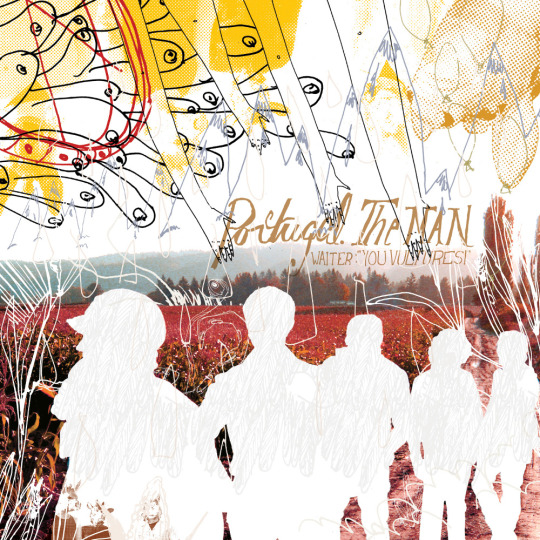
Following the dissolution of Portugal. The Man’s post-hardcore predecessor Anatomy of a Ghost, John Gourley and Zachary Carothers left to start their own band. After a slew of demos and EPs the group we now know and love announced themselves to the world in 2006 with the release of their first album, the punctuation-abusing Waiter: "You Vultures!"
Still bearing many of the post-hardcore characteristics of the duo’s previous band, Waiter contains the most extensive array of sounds ever captured on any of P.TM‘s records. The sounds range from jazzy downbeat late-night tracks like “AKA M80 The Wolf”, to Mars Volta-esque prog rock on “Horse Warming Party”, and even some mosh-worthy Blood Brothers-like instrumentation on “Chicago.”
It’s a sight to behold, and the end result is a debut album that’s more fleshed-out and varied than anyone could have ever expected. It’s clear from the beginning that the band is already a well-oiled machine with a defined vision and an insatiable desire to achieve it. In a way, Waiter makes their later “pop” albums that much more impressive just because the band evolved from something this experimental and vast. As mentioned above, on top of the feat that is this album, Waiter was one of my gateway indie albums, and it will always have a special place in my heart just for that.
4 - Evil Friends (2013)

Back in 2013 hipsters and indieheads alike were sent reeling as Portugal. The Man announced that Danger Mouse would be producing their upcoming seventh studio album. While there’s nothing inherently wrong with Danger Mouse’s production style, it carries a very distinct sound that impresses itself on (or in some cases, eclipses) the band that’s being filtered through it.
Additionally, back in 2013 music fans found themselves wading through a sea of Danger Mouse-helmed records. Between Broken Bells and The Black Keys alone, many fans (myself included) found themselves experiencing “Danger Mouse Fatigue” around this time. Worried his production would homogenize, defang, or sap the life out of the typically-soulful Portugal. The Man, the worst outcome would be for the band to morph into “just another” radio act in a glut of similar-sounding late-2010’s alt-rock.
More importantly, (and pertinent to this article’s intro) Evil Friends marked the first time that a majority of fans worried the band was selling out. Danger Mouse production could only mean one thing: a grab for that sweet alternative radio money. While “Purple Yellow Red and Blue” did receive moderate success on the charts (and presumably queued the band up for their later success) it’s now clear that fan’s fears were unfounded for the most part.
While we were busy worrying that Portugal. The Man was trying to manufacture an overly-accessible album, the band busied themselves with birthing one of the best, tightest, and catchiest records of their entire career.
Released in June of 2013, just in time for summer, Evil Friends is front-to-back brilliance. In retrospect, the album undoubtedly represents a shift towards a more accessible sound, but it’s also a near-perfect marriage of the band’s more recent pop style and their earlier psychedelic leanings.
I’ll admit I went in with my guard up, but slowly, track by track, the album disarmed me. Eventually, my initial disappointment gave way to complete awe and utter reverence. With each listen I found myself savoring the record’s catchy tunes and sunny balladry. Every track is a stone-cold classic, but songs like “Holy Roller,” “Hip Hop Kids,” and the aforementioned “Purple Yellow Red and Blue” remain lively and infinitely singable, even after hundreds of listens.
Especially after the release of Woodstock, it’s clear that Evil Friends wasn’t the band’s “pop” album, but their “Danger Mouse” album. That is to say, it’s a (mostly) radio-friendly alternative rock album with an unmistakable production style that’s very tied to 2013. However, the most critical and most admirable thing is that the band managed to retain their identity. It’s easy to sell your soul for a radio hit, and it’s even easier when someone with a proven track record like Danger Mouse is behind the wheel, but on Evil Friends, Portugal. The Man harnessed DM’s powers and used them for good instead of evil.
Luckily for both parties, the band’s 2013 album ended up one of their best and most accessible albums with an immaculate 100% hit ratio. Every chorus is perfection. Every guitar strum is well-placed. Every word is singable. The whole record feels lived-in. While their early work felt natural and distinct like a hand-crafted piece of woodwork, Evil Friends feels like the polar opposite in the best way: it’s clean and sharp and sleek like a MacBook or a brand new car. It’s a marvel of a later-career work, and the band (and Danger Mouse) really made me and the other doubters eat crow. I really should have known better by this point.
3 - Church Mouth (2007)

Jumping from the band’s second most recent album back to their second ever album, Church Mouth is the band’s bluesy sophomore effort. Released just a year and a half after their debut, Church Mouth represents the first time Portugal. The Man worked their genre-pivoting magic on their fans. Going from the prog-fueled indie rock that we saw on Waiter to the jangly hard rock we hear on Church was quite a surprise to behold back in 2007.
The album opens with a single trebly guitar strum accompanied by one of the best opening lyrics to any record that I’ve ever heard: “Sell me, I'm a skeptical boy.” The following line comes with a cacophonous crash of cymbals, and then, just as Gourley blurts out the name of the record, every instrument whirs to top speed resulting in a groovy roar of fuzzed-out blues rock.
Things only get better from there with the bouncy “Sugar Cinnamon, ” and the summery “Telling Tellers Tell Me,” all of which make for an impossibly-great stretch of three songs at the top of the album that rivals that of Censored Colors.
Throughout this album the bass is cranked all the way up, the guitar is at its most jangly, Gourley is more distorted than we’ve ever heard him, and the drums sound absolutely Bonham-esque. The whole thing comes together to affect a bright, warm, summertime glow that imprints on the listener like an amber-coated childhood memory. The entire record is like a wide-open wheat field with a sun setting behind it. There’s a slight swaying motion to the whole thing that gently rocks the listener downstream for a blissful 43 minutes.
Midway through the back half of the record lies a song called “Children.” Slipped in unassuming as the Church Mouth’s 9th track, this song is, for my money, the best in the band’s discography and one of my favorites of all time. Featuring blistering guitars, a monumental riff, and some of Gourley’s most snarling and swagger-worthy lines, “Children” is the heaviest song Portugal. The Man has ever recorded. A borderline stoner rock with multiple heart-stopping fakeouts, “Children” is one of the band’s absolute best, and the rest of the record isn’t far behind.
2 - In The Mountain In the Cloud (2011)

I’ll admit after American Ghetto I was worried that I had grown out of Portugal. The Man. I’m glad that I gave In The Mountain In the Cloud a fair shake, because the album was, and probably still is the band’s most inventive, and innovative record to date. Brimming with sound and color, the album lures the listener in with “So American” a slowly-unwinding ballad of warmth, inclusivity, and happiness.
From there the band pulls out all the stops, utilizing every trick and every idea that they’ve ever conceived. Nearly every other song on In the Mountain features two halves, as if the band had so many different ideas that they couldn’t decide on one. As a result, we get an album that’s jam-packed with brilliant, bright, memorable ideas and standout moments. No second on this album is wasted. There’s never a stretch that repeats itself long enough to bore the listener because as soon as the band builds out one idea, they’re already off on the next. Each song has multiple distinct choruses, all of which are impeccable, and each of which I can call to mind just by reading the titles. That is a feat of songwriting and craftsmanship.
In The Mountain In The Cloud is a massive, swirling, trip that boasts wall-to-wall originality. As a whole it’s simply one of their most listenable, and easily-enjoyable records. It hangs together beautifully as an album, and there’s never a dull moment in its 44-minute running time. The cherry on top comes at the end with “Sleep Forever” Portugal’s gorgeous, heart-aching, existential magnum opus. It’s a synthesis, incorporation, and realization of every sound, topic, and style that the band has ever touched on. A slowly-building masterpiece that explodes with life. It’s flawless.
1 - The Satanic Satanist (2009)

Here we are at number one. I mean what can be better than ‘flawless’? Obviously I have a love in my heart for each of these records, and for the longest time In The Mountain actually was my favorite Portugal. The Man release, but within the past few years I’ve come back around to an album that I never thought I would: the group’s fourth LP The Satanic Satanist.
While In The Mountain represents an undeniable creative peak for the band, Satanist represents a near-inverse. It’s a record that manages to be incredibly original, wholesome, and wonderful, all within a traditional and understated way. There are no tricks on this album, no fancy electronic passages, no masturbatory solos, no grandiosity, and no gimmicks, only straightforward songs of love and life. It borrows heavily from the narrative approach of Censored Colors, takes a pinch of Church Mouth’s grooviness, and uses a just little bit of Waiter’s electronic elements. And more importantly, it also adds just enough originality to stand on its own.
The songs oscillate between explosive colorful sprints of joy and delicate personal intricacies. The final result is something that feels much like the album’s cover: a morphed representation of humanity that bleeds emotion and feeling like watercolor over an eggshell page.
Even better, the album was released alongside The Majestic Majesty, an acoustic accompaniment that reworks the entire LP in a more intimate, stripped-down setup. When performed acoustically, these songs only further reveal how well-written they are. They stand bare in front of the listener, stripped down to the essential components, and somehow, still manage to work just as well (if not better) than on the full album.
The fact that the band manages to pack all this into an airy 30-minute record is a testament to how far (and how fast) their songwriting has evolved. It’s a showcase for every member, every instrument, and every word. The messages shine through, the production is clean, and there’s a perfect balance of early psychedelia and grounded realism. Each song stands on its own, but also adds to the greater context of the album. It depicts a world fleshed out by the band over the course of years. A mythos in the making.
Every beat is a lush tapestry that pangs forward directly from the hearts of its performers. The Satanic Satanist is heartfelt and violent. Simultaneously weary and cheerful. An oceanic presentation of the human condition and what it means to grow up. It’s a mastercraft and achievement of the genre. It’s the culmination of everything that Portugal. The Man had learned, and everything they were about to learn.
Any way you split it, Portugal. The Man has an absolutely incredible discography. With albums that touch on every genre from electronic and post-hardcore to blues and pop, there’s something here for everyone. After seeing them live twice this year, my belief that they’re one of the best indie bands has only been solidified. Their approach to music is humbling and life-affirming. I can’t help but adore what they’ve created. These albums are nothing short of a gift to the world. The band has earned every ounce of their success, and we should consider ourselves lucky as a society to have such a spectacular music force in our midst.
Everyone is golden.
Thank you for everything.

#portugal. the man#Feel it still#indie rock#discography#ranking#waiter you vultures#it's complicated being a wizard#church mouth#censored colors#The Majestic Majesty#The Satanic Satanist#american ghetto#evil friends#woodstock#portland#alaska#music#john gourley#in the mountain in the cloud
0 notes
Text
U Talkin' U2 To Me? - An Album-by-album Descent into Insanity
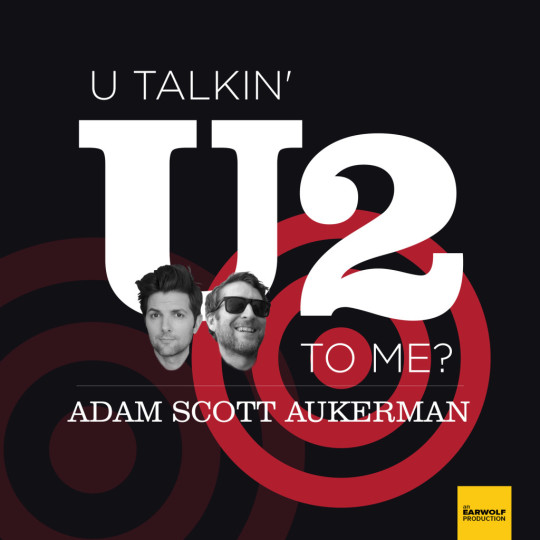
U Talkin' U2 To Me? is a podcast that wades the listener into the warm embrace of insanity over the course of multiple hours. Billed as a "comprehensive and encyclopedic" look at U2, the podcast is an epic album-by-album exploration of the Irish rock band’s discography and decades-long history. It’s a deep dive into the bleeding emotion behind artistry and the raw humanity that it takes to create a lasting piece of culture. Just kidding. While UTU2TM may not be that serious, it still manages to be one of the most hilarious, endearing, and (occasionally) earnest podcasts that I’ve ever listened to.
Hosted by Scott Aukerman (Comedy Bang! Bang!) and Adam Scott (Parks and Recreation), U Talkin’ U2 To Me? is a spiritual successor to Analyze Phish, a show taking place in the same "podcast universe" in which comedian Harris Wittels tries to convince Scott Aukerman why he should like the band Phish. The conceit of UTU2TM is similarly simple: Scott likes U2. So does Adam. Together, they combine comedic powers to systematically walk the listener through the band's discography in an effort to expel all of the U2-related information in their heads.

Forecasted by a teaser clip that found Adam Scott recounting a childhood memory of the 1983 US Festival, U Talkin’ U2 To Me? officially launched one week later in February of 2014. The first episode began humbly enough as the duo laid out their plan to discuss three albums per episode in the lead-up to U2’s then-unnamed thirteenth studio album. Within several minutes it became clear that things were destined to go off-track as Scott and Scott venture off on multiple tangents all while simply trying to describe the conceit of the podcast. Eventually, they settle on a rambling half-serious mission statement:
What we want this podcast to be is the definitive, comprehensive encyclopedic compendium of all things U2. In other words we are going to talk about it all. If you have never heard of U2, you will feel like you have heard of U2.
No less than a minute after outlining this semi-lasting objective, the two stumble across the podcast’s first great recurring bit: saying “Achtung Baby” over and over again for minutes on end. Sprang from a moment of improvisation while listing off the band’s discography, Aukerman goofily pronounced the name of the 1991 album with a full-throated bellow which prompted Adam Scott to respond similarly. Eventually, the two find themselves volleying increasingly-accented shouts of “ACHTUNG baby” back and forth at each other like a vocal tennis match. It’s absolutely absurd to behold.
youtube
Eventually Scott and Scott emerge from their tears of laughter long enough to move the podcast forward, but this is the moment that (less than ten minutes into their inaugural episode) forever sets the tone of the show and gave the listener a glimpse of the beautiful insanity that was about to unfold on a weekly basis.
The Achtung Baby bit sounds so nonsensical to write out on paper (and it is nonsensical, even in the context of the show) because it’s a joke that defies logic. It’s abjectly stupid, yet somehow this string of cartoonish exclamations feels right at home on U Talkin’ U2 To Me? It’s so mind-bogglingly silly that you begin to crack up by proxy just witnessing to these two grown men entertain each other as they break down into complete hysteria.

The podcast’s initial plan of three-albums per episode quickly deteriorates to one album per episode (and eventually no album per episode) simply because the hosts end up going on so many diversions. Often recorded late at night after a full day of work, the recordings begin to sprawl into hilariously-rudderless, sleep-deprived ramblings. Even so, the most charming element of U Talkin’ U2 To Me? (and the thing that will keep you coming back) is the chemistry between the two hosts. As the episodes pile up, the Scotts quickly develop their own in-jokes, references, and everything short of a unique language.
Scott Aukerman and Adam Scott clearly enjoy each other’s company, and eventually, the podcast morphs into two friends recording multi-hour dick joke-laden podcasts only loosely centered around an album. This artificial extension ended up working in their favor because after several months of episodes U2’s album was still nowhere in sight. The show then became the podcast equivalent of a stalling tactic, killing time until the band released their highly-anticipated thirteenth album.
Over the course of several episodes, the show’s scope gradually expands into its own self-referential universe. The Scotts bring guests into the mix, record a segment in the white house, and create a punch-drunk 2-hour podcast based on a one-off joke from an earlier episode. Listening to the pair's spiral into madness over the course of 20-some episodes is a thing of beauty and something that I've never seen accomplished in the medium of podcasting.
The show’s first act culminated in June with the sixteenth episode, a “commentary special” in which Scott and Scott host a new podcast laid over the top of their first episode. It’s a mind-bending experience that served as a conceptual high point to the show’s already-meta narrative. With the U2’s new album still an unknown, the podcast went on hiatus until the record’s release. This was the end. For now.

In September of 2014, Apple held their yearly press conference. The tech giant announced their new iPhone, unveiled the Apple Watch, and made wallets obsolete with Apple Pay. At the tail end of the presentation, after nearly two hours of incredible, amazing, awesome products, Tim Cook threw the audience for a loop and introduced U2.
The lights dimmed, and the band came out to play “The Miracle of Joey Ramone.” After the performance, Tim Cook joined the band on stage for one of the most awkward conference exchanges in recent memory and revealed that the band’s albumless five-year drought was about to come to an end. After some back and forth, the two parties announced that U2’s thirteenth album was out now. Not only that, it was free, and it was already on everyone’s iPhone.
I was at work during the conference, and as excited as I was about the prospect of upgrading my phone, my biggest takeaway was the fact that this meant we would have a new episode of U Talkin’ U2 To Me soon. I raced to the /r/earwolf subreddit and joined hundreds of other podcast nerds who all found themselves excited by-proxy at a new U2 album because it represented the payoff the entire podcast’s run.
It’s worth mentioning at this point that I don’t even like U2.
Even in my fanboyish excitement at new Apple devices, all I cared about was that a band I’m lukewarm on was releasing an album, just because it meant I’d get a new podcast. It’s probably the weirdest string of events that I’ve ever found myself excited at, but I was ecstatic nonetheless.
And sure enough, the UTU2TM hosts met up the following day and released their celebratory, 2.5-hour Songs of Innocence episode only two days after the album’s release. I was overjoyed.
The album’s release was a total surprise, a highly-publicized rollout, and it harkened back to an earlier collaboration that warmed my heart. The internet hated it. Eventually, the Scotts got back together several weeks later to discuss how the album was sitting with them, and the internet’s overwhelmingly negative reaction to the album showing up on their phones. The episode that came out after the album’s release was a (seemingly) single bright spot in a sea of negativity as people complained that a free album showed up on their phones.
From there the podcast seemed over. The band’s new album was released, and the duo had (more or less) achieved their goal of discussing each album. They surprised us a few more sporadic episodes including a Christmas special, a live podcast, and a concert review. Each of these came after month-long breaks, so they were all pleasant surprises that I devoured almost immediately once they manifested in my podcast feed.
Then, in August of 2015, it happened.
I refreshed my podcast app and saw a mysterious download titled “U2 Talk 2 U.” Initially thinking it was a typo or that I was misreading it. I scanned the episode’s description to make sure that I understood it correctly. My eyes started watering. Adam Scott and Scott Aukerman had interviewed U2.
It was the climax of the entire show. A podcast that started out nearly two years ago with a period joke in the first two minutes now somehow found itself talking to one of the biggest bands in the world. It’s a journey that has to be experienced from the beginning, and one that I’m not even spoiling by talking about here because it pays off so many of the shows different in-jokes. It’s the heart-warming culmination of a two-year journey. Something that started out as an unassuming gag between two friends instantly became legitimized. Every dick joke had led to this.

U Talkin’ U2 To Me? is abject stupidity, and I mean that in the most complimentary way possible. This podcast came out at a pivotal time in my life where nearly everything seemed to be falling into place and shifting for the better. I credit UTU2TM with not only entertaining me for hours upon hours, but for improving my outlook on life and giving me a formative crash course in this silly comedic tone.
It’s one of the few podcasts that I’ve listened to multiple times in its entirety, and it benefits from both its limited run nature and the 22nd episode’s payoff. I still can't describe how elated I was when I saw that episode pop up in my iTunes. The podcast has more surprises, inside jokes, and humor than almost everything else out right now. And it’ interesting to see how the little things (like recording late at night) led to a memorable and impactful experience. It’s an unlikely pairing and an unlikely topic that I ended up caring about way more than I ever thought I would.
The real beauty of the podcast comes from how often and how abruptly the hosts can fluctuate between moments of genuine, unbridled fandom, and delirious, unhinged absurdity. It became a blueprint for my recent sense of humor and willingness to embrace the absurd and stupid. And, it’s a horrible segue, but I did end up coming out of the podcast liking U2, if for no other reason than the music’s association with dozens of jokes.
U Talkin’ U2 To Me? is a force for good. An impossibly-dense multi-hour dive into the depths of exponentially-increasing goofiness. And more importantly, an honest showcase of genuine fandom. It’s something to aspire to on an artistic level, and a journey that is worth embarking on whether you like U2 or not. It’s an achievement of the medium and should be required listening for any podcast, music, or comedy fans.
It’s something that must be heard to be believed.
It’s a good rock and roll uhh podcast.

56 notes
·
View notes
Text
Female-Fronted 2017: A Guide to This Year’s Best Music Made By Women
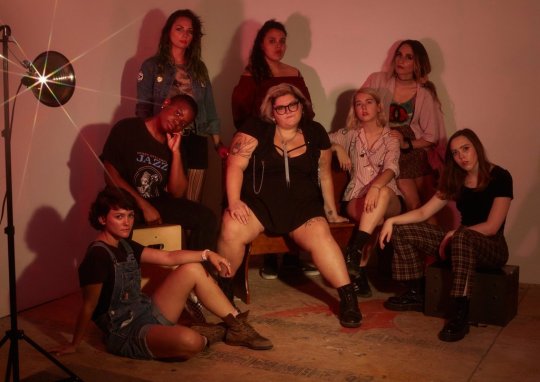
2017 has been regressive in more ways than I can count. Despite an oppressive political landscape and a constantly-overwhelming news cycle, it’s also been heartening to watch people band together in the face of bigotry, and hatred.
This feeling of resistance has also bled over into art. We’ve finally got a legitimately great female-led superhero movie as well as multiple strong female-centered TV shows (Orange, Veep, Kimmy Schmidt, The Mindy Project, Broad City, Take My Wife). More germane to this blog; the same shift can also be felt in this year’s music. Alongside 2017’s many excellent female-fronted albums, this past month Cardi B become the first solo female rap artist to top the Billboard charts since 1998. Whether it’s a movement or just a sign of the times, we’re witnessing an undeniable change in our culture.
Chalk it up to the political climate, toxic masculinity, or whatever term you prefer; lately I’ve been feeling “over” hyper-masculine music. Maybe it’s a byproduct of a free TIDAL subscription or seeing 20+ concerts in 12 months, but this year I’ve been exposed to a wider variety of music than ever before. Projecting myself onto machismo music has carried me far in life, and that type of music still has a place in my heart (and my iPod), but it’s been connecting with me less and less as time goes on.
I’ve also gotten away from this testosterone-fueled perspective because the alternatives feel infinitely more refreshing than an imitation of something I’ve heard a dozen times before. Even within typically-masculine genres like hip-hop, we now have people like Young Thug and Kevin Abstract who are slowly (but actively) dismantling long-entrenched negative tropes of the scene. This year I’ve found solace and comfort in these unique takes on the human perspective.
Serendipitously, 2017 also happens to be an incredible year for women in music. From vibrant radio bops to hazy bedroom indie, we’ve seen an absolute barrage of impeccable releases this year from female artists. So I wanted to highlight some of the projects that I’ve found myself coming back over and over again. These artists are making some of the freshest, most unique, and lived-in records of recent memory, so let’s take a moment to celebrate these creators and make a toast to new perspectives in art.
Julien Baker

Funnily enough, one of my favorite discoveries of 2017 turned out to be an album from 2015. I’ve already detailed my affection for Julen Baker’s Sprained Ankle in this loving write-up from earlier in the year, but in short, I’m embarrassed that it took me this long to discover it. Baker’s debut record has been lingering with me all year like a specter. I’ve read interviews, watched live performances, and my Julien Baker-related obsession will likely peak when I see her live this December.
Julien Baker has already had an eventful 2017 as she signed to Matador Records, released a haunting 7-inch, and is currently revving up to drop her Sprained Ankle follow-up Turn Out the Lights. I’m willing to admit her music has now fallen into utterly un-objective fandom territory for me, but even the three songs she’s released this year have been spectacular, and I’m fully expecting her album to worm its way onto my end-of-the-year list. Baker’s brand of somber folky slowcore has a way of hooking directly into my brain and violently wrenching on my heartstrings. I’ve already got my tissues stockpiled for her upcoming October 27th release, and I fully expect to cry in public at her concert in December.
Angel Olsen

This November singer/songwriter/guitarist Angel Olsen is treating us to a career-spanning album of loosies, B-Sides, and rarities. I’ve already expressed my love for 2016’s My Woman (which landed at #5 on my end-of-the-year list for 2016), and if Phases’ first single is any indication, we’re in for an equally-great collection of moody guitar-centered folk tracks.
Japanese Breakfast

Japanese Breakfast is the Philadelphia-based solo project of Michelle Zauner. In 2016 she released the grief-stricken 25-minute LP Psychopomp which featured a collection of tracks written in the wake of her mother’s battle with cancer. This year’s Soft Sounds From Another Planet essentially acts as an update. A group of 12 adventurous tracks that offer an honest depiction of what happens after the most important person in your life passes.
Aside from the personal update, Soft Sounds finds itself standing musically above Psychopomp thanks to improved production and added fullness of her now-honed backing band. All of these pieces come together neatly for a more fleshed-out, but less personal album than her debut. The tracks range from saxophone-laden danciness (Machinist) to Roy Orbison-esque balladry (Boyish), but Michelle’s personality shines through each and every moment, making for a hopeful space-themed journey.
Half Waif

Half Waif is the icy electronic side-project of Pinegrove’s resident keyboardist Nandi Plunkett. This year she’s found a voice speaking out against the internet (and the music industry's) inherent sexism, but Half Waif’s form/a EP is all the proof you need that she’s a musical force all her own.
Often taking a more dark and honest approach than Pinegrove’s good-spirited group-based cheeriness, Half Waif allows Plunkett to explore deeply-personal stories and exercise the demons of her past. With disarming vocals, swaying melodies, and sprawling instrumentation, form/a is one of the most unique EPs this year.
Camp Cope

Camp Cope is a trio of Melburnians creating emotionally-punchy emo rock. In 2016 they released an impeccable self-titled debut that tackled everything from relationship nostalgia to police brutality, all in a little over half an hour. It’s a record of forward momentum, and Georgia Maq’s unmistakably Australian accent adds a unique tinge to the band’s already-memorable songs.
This year they’ve signed to Run For Cover, released a split with Cayetana, and done an Audiotree session. As they rev up for a tour, it’s unlikely we’ll get a sophomore album from them this year, but it seems like these girls are poised to segue this momentum into something really special within the next year.
Snail Mail

Out of the dozens of concerts I’ve seen this year, a select few have resonated with me deeply, and Snail Mail is one of them. The first time I’d heard of the band was minutes before they were about to take the stage as Girlpool’s second opener. I stood in the crowd, about ten feet from the mic, enjoying my beer and reserving my prime spot for the main act. As Snail Mail took the stage and played their first song, I became slowly disarmed. The singer couldn’t have been older than twenty (she wasn’t) but every song shimmered with a level of maturity and hazy emo malaise.
I found myself hanging on every word, losing track of time, and as soon as it started, it was over. Before their set ended, the bassist and drummer stood and disappeared backstage, leaving frontwoman Lindsey Jordan alone with the crowd. Illuminated by a single spotlight, it was her, a guitar, a mic, and a crowd full of silent people. She played “Anytime,” a (still-unreleased) wandering emo ballad in which she guides you, at first by hand, then by force, deeper into your own emotional rabbit hole.
To put it simply: I was awestruck. It was one of the most powerful things I’ve seen all year. The band has recreated this (to an obviously less personal degree) in their 2017 Tiny Desk performance which dropped the same day the band announced they were signing to Matador records. It’s spectacular, inspiring, and a little jealousy-inducing that this 17-year-old is achieving artistic heights that I could only dream of, but I am so glad to have been here on the ground floor. Snail Mail’s growth will only be exponential from here on out, mark my words.
Diet Cig

High kicks, pom-pom earrings, and pictures of doggos. These are just a few of the characteristics that make New York-based Diet Cig a compelling duo. Aside from an infinitely-goofy and endearing social media presence, the band puts on one of the most energetic live shows I’ve ever witnessed. Fueled by nothing but pop-punk ferocity, guitarist and singer Alex Luciano slides across the stage, jumping, kicking, and diving off equipment all while Noah Bowman lays down a steady beat on the drums.
Their 2017 debut album Swear I'm Good At This opens with a humming guitar and a heart aching delivery as Luciano details her teenage attempts to sleep with a guy that shares her name. Within a minute the album quickly whirs into top speed and remains there until its final notes. Their confetti-filled Tiny Desk session captures their on-stage charm and energy quite well and earned the band a deserved spot in a New York Times profile over the summer.
BABY!

The emphatically-named BABY! is a Florida-based pop-punk group helmed by Kaley Honeycutt. Fittingly enough, the eternally-hair-dyed Orlandoan released her debut album Sunny, F . L., at the tail end of summer. The record is a breezy marriage of intimate bedroom pop vocals and delicate shimmering instrumentation.
Signed to ex-Japanese Breakfast’s Yellow K Records, BABY! is a prime example of killing it in a local scene. From touring the east coast to hand-making shirts and buttons, Honeycutt is an exemplar of an old-school punk DIY mentality wrapped in a sunny Floridian package.
Lorde

You’d have to have been living under a soundproof rock to have not heard Lorde’s chart-topping “Royals” back in 2013. After making waves with her (nearly-undisputed) song of the summer, she went six-times platinum and then dropped her debut album Pure Heroine, all by the age of 17. After years of touring, writing, and working on other projects, Lorde simply took some time away from the spotlight to live her life.
In 2017, four years after she first introduced herself to the world, Lorde returned to music, ready to reflect on the remainder of her teenage years. She paired up with Bleachers’ Jack Antonoff and released Melodrama, a markedly more mature and thoughtful record. This highly-anticipated sophomore album utilized real instrumentation and found Lorde grappling with a recent breakup. With 11 tracks stretched over 40 minutes, Melodrama offers a wide variety of explosive sounds centered around grounded slice-of-life stories from the worldly New Zealander. It also happens to contain some of the most infectious, ear-wormiest tracks of the year and has slowly crept up against E•MO•TION as one of my favorite pop albums of all time.
Girlpool

Often categorized as “folk punk,” Girlpool is a duo comprised of Cleo Tucker on guitar and Harmony Tividad on bass. The two swap instruments and share vocal duties, which led to the creation of their one-of-a-kind debut Before the World Was Big. This year they added a drummer, second guitarist, and released Powerplant, a more full-bodied follow-up.
The dynamic between the two remains strong as ever, and once the opening track “123” clicks into place, it’s clear the drums are there only to support our two leads. They get dark on tracks like “Soup” and eventually send the listener off smiling with “Static Somewhere.” I personally think the band lost a little bit of personality in going from just guitar and bass to adding drums, but there’s still some great charming moments on this record.
Jay Som

Melina Duterte is a 22-year-old Polyvinyl signee who first made waves in 2016 with her excellent debut Turn Into. This year, amid seemingly-constant touring, she’s already released her official follow-up Everybody Works. The album is packed with clear-eyed songs that depict a single life on an ever-shifting scale. Sometimes zooming down to interpersonal levels, other times peeling back to the cosmic scale, Everybody Works is a crystallization of Duterte as a human. The penultimate title track drills the album’s immensely-catchy title into your head, serving as the first hit of a one-two punch, followed by an epic 7-minute closer that will leave you breathless.
Courtney Barnett

Courtney Barnett is an indie rocker from Australia who charms the listener through witty self-deprecation. Her debut album, 2015’s Sometimes I Sit and Think, and Sometimes I Just Sit gained her attention for her deadpan delivery and slacker approach to writing. Sometimes I Sit is wall-to-wall memorable tracks that range in topics from biting punk to suburban settling and environmental helplessness. The album quickly became a critical darling, and Barnett earned a well-deserved spot on many end of the year lists.
This year, Courtney Barnett has released one well-received one-off single and has an upcoming collaborative album with equally-mellow pier Kurt Vile. Seeing how their slacker rock styles commingle this fall will be a treat.
Haim

After releasing one of the best pop albums of 2013, Haim has returned to shake up the musical landscape with Something to Tell You. With more of a retro sound than their debut, the three sisters pull influence from Stevie Nicks, The Eagles, and even Michael Jackson at certain points. The songs on Something to Tell You rattle on in a way that evokes an old Chevy: it’s got a little bit of dust and grit on it, but that dirt is just the countryside, there’s still a shiny hard-working body underneath it all.
Kacy Hill

G.O.O.D. Music’s resident female vocalist, Kacy Hill is a dreamy redhead with an incredible voice and a singular vision. Her 2015 EP Bloo first gave the world a taste of her offering, but this year’s Like a Woman is a sensual, slow, and occasionally violent exploration of the singer’s sexuality and what it means to be “a woman” in 2017. Alongside the album’s launch, Hill played up the sex angle with multiple steamy music videos and a pornographic parody website dirtylittleredhead.com. On Twitter, she’s just a goofy personality that seems genuinely awestruck and appreciative of her fans.
Lana Del Rey

Existing on the periphery of the pop music scene for over a decade, Lana Del Rey has steadily been making some of the most interesting pop music since 2010. Unflinchingly tackling topics like domestic abuse and drug addiction, Lana’s music is often a touch too edgy for radio play, but she’s garnered a sizeable audience since 2010 through a deft understanding of social media and several iconic breakout tracks like “Video Games.”
Her 2017 release Lust for Life finds her, for the first time ever, on the cover of her album smiling. Hair adorned with flowers, this happier Lana finds herself circling familiar topics like summer, and spontaneous beach trips, but manages to add some interesting wrinkles. Featuring guest appearances from the likes of Sean Lennon and Stevie Nicks, Lust for Life also seems to be grappling with some bigger, more existential issues like entertainment in the face of destruction and her own image. The record ends up being a nice offering of sultry, self-contained tracks that expand the world and mythos of miss Del Rey while leaving just enough to keep us hooked.
Paramore

After releasing some of the most important female-fronted emo albums of the 2000’s, Paramore could have gone anywhere. After various lineup changes, a couple monster mainstream hits, and soul-draining complicated legal battles, Hayley Williams decided to ditch the hair dye and embrace a vibrant 80’s throwback vibe. Featuring more engaging and personable songs, After Laughter is a colorful and cheery listen. Anyone paying close attention to the lyrics will quickly notice that the album’s joyful filter is simply a facade used to mask the uncomfortable personnel issues that the album tackles. Despite the lyrical bait and switch, Laughter ends up being a breezy and joyful listen, as long as you don’t spend too much time with the lyric sheet.
St. Vincent

Indie rocker and multi-instrumentalist St. Vincent has too much on her mind. The other-worldly guitar-player won a Grammy in 2014 for her excellent self-titled album that saw her assume the role of a “near-future cult leader.” St. Vincent (whose real name is Annie Clark) has been relatively quiet in the years since her last record, but in the lead-up to her upcoming Masseducation, Clark has rebranded herself as a straight-haired, plastic sex symbol. Perhaps pulling from her stint as a horror director early in the year, St. Vincent’s forthcoming album seems poised to dismantle institutions and send her on a years-long tour.
SZA

Much like Kacy Hill, SZA is the resident female artist of California-based Top Dawg Entertainment. Since 2012 she’s been releasing a string of quality PR&B mixtapes, gradually building a fanbase and expectations for her full-length debut. Featuring Blonde-esque instrumentation and more relationship strife than you can shake a stick at, SZA’s Ctrl is a bright, sexy, and honest portrait of a 20-something who just can’t seem to get things right but has all the best intentions.
Taylor Swift

Controversy seems to follow Taylor Swift around like the Coppertone dog. After a highly-publicized lawsuit, an exposing series of Snapchats, and too many beefs to count, the undisputed queen of pop is back with… something. Forecasted by a social media wipe and “dark” rebranding Reputation sees Swift at her most aggressive to date. Seemingly out for blood, this new sound springboards off her 1989 full-pop sound, updating things to be a little bit more modern. While I found “Look What You Made Me Do” to be an initially repulsive song, the video helps add a much-needed layer of context and rich visuals that make the song better retroactively. Whether it’s good or not, Reputation is bound to be one of the biggest and most-talked-about albums of the year, and will undoubtedly dictate Swift’s place in the pop culture landscape for years to come.
Tiger’s Jaw
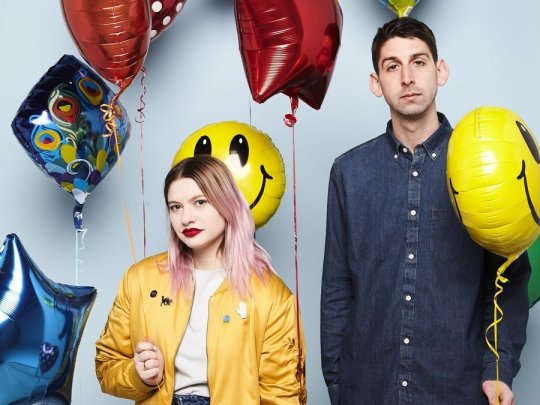
After the departure of every other band member, pop-punk iconoclasts Ben Walsh and Brianna Collins have returned with Spin, a record proving that they still have much to say. While Tiger’s Jaw is primarily sung from the perspective of Ben, “June” marks the first entirely-Brianna-helmed track in the band’s discography. The song provides a nice sunny break in an otherwise homogeneous and similar-sounding record and earned the band some well-deserved attention after a few years away from the spotlight.
Carly Rae Jepsen
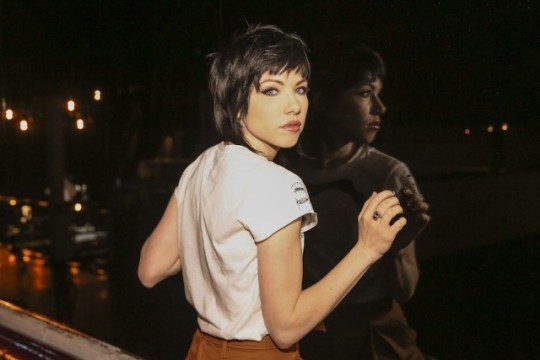
Taylor Swift may be the reigning queen of pop, but for my money, Carly Rae Jepsen should be the one on that throne. As we all remember, in 2012 each member of the human race was forced to listen to “Call Me Maybe” at gunpoint, and thanks to the song’s oversaturation many listeners came to either actively disliked Jepsen or assumed she was a one-hit-wonder. 2015’s E•MO•TION was a critical success and a commercial failure, but to this day remains one of the best pop albums ever recorded. Lovingly detailed in Max Landis’ 150-page dissertation, CRJ is an artist of darkness and surprising depth. After expelling the rest of the E•MO•TION-era work with a B-sides album, Jepsen dropped a single early in the year that snatched wigs the world over. The fact that a single song invigorated me this much and made such relative waves only excited me more for her next album. Hopefully this time the world sees the light and comes back around to the Canadian goddess because she deserves to be listed up there with the greats.
Phoebe Bridgers

Finally, for the sake of some kind of bookending, Phoebe Bridgers is an LA-based indie folk artist much akin to Julien Baker. Despite a disarmingly-goofy social media presence, Bridgers’ Big Lebowski-referencing debut Stranger in the Alps is a heart-breaking, foggy, first-person recounting of individual experiences. The album has already received co-signs from Hayley Williams, Tiger’s Jaw, Julien Baker, Best Coast, Dan Campbell, and Grimes. She’s currently tearing it up on a tour War on Drugs, but I expect this album to show up on a good number of end of the year lists. If you want to hear a unique collection of stories on heartbreak, you’d be hard-pressed to do better than Stranger.
Additional Artists
This ended up being way longer than I originally intended, but the above albums are some of my favorites this year. There have also been some other great releases this year that I just don’t have the time, knowledge, or words to detail as lovingly as the ones above, so for the sake of keeping this relatively brief, here’s a quick-hit version of some other kickass female artists who dropped some great albums this year.

• Beach House: The dream pop duo follow up their excellent 2015 releases with a collection of equally-listless B-Sides and Rarities.
• Feist: After a fluke pop megahit in 2007, Feist hits a new artistic peak with the guitar-drenched Pleasure.
• Cayetana: The self-described “boisterous Philadelphians” released a sophomore album of 12 punchy rock tracks.
• Banks: After an alarmingly-sexy 2014 debut, Banks seems to be ramping up to a new album after dropping two steamy singles this year.
• Jetty Bones: Clearly-delivered indie rock that transparently showcases the struggles of one person’s life.
• Mannequin Pussy: The band revisits their blistering 2016 breakthrough album in an explosive 14-minute Audiotree Session.
• The Japanese House: On her fourth EP as Japanese House, Amber Bain serves up four hypnotic synth-drenched love songs.
• Daddy Issues: Grunge isn’t dead, it’s just been lying dormant until bands like Daddy Issues arrived to bring it back to life.
• Who Is She?: A Seattle-based supergroup consisting of members from Lisa Prank, Chastity Belt, and Tacocat who combine powers to create infectious pop-punk songs dripping with 2000’s-era nostalgia.
• Torres: Three Futures is a mature and careful album that finds Mackenzie Scott at the helm, steering the ship more sure of herself than ever.
• Charly Bliss: On Guppy Charly Bliss is a charming mess of broken humanity featuring the unmistakable vocal stylings of Eva Hendricks.
• Alvvays: The antisocial Canadian indie group utilizes fuzzed-out instrumentals and rich layering to create an enchanting and memorable indie experience.
• Small Circle: backed by three members of Sorority Noise, this Marissa D’elia-fronted emo supergroup effortlessly created one of the years most hard-hitting and emotionally-impactful albums.
• Marika Hackman: I’m Not Your Man begins with the welcoming sound of laughter and immediately launches into a tale of infidelity. The rest unfolds from there.
• Sheer Mag: This summer, the jangly and soulful rock group finally unleashed their long-awaited full-length Need to Feel Your Love.
And
There you have it. You take the good with the bad, and for all that 2017 has taken from us, it’s amazing to see artists and creators like the ones above adding some beauty to the world. Theirs is a perspective that’s sought, appreciated, loved, and needed now more than ever.
#julien baker#angel olsen#japanese breakfast#half waif#camp cope#snail mail#diet cig#lorde#music#female-fronted#girlpool#jay som#courtney barnett#lana del rey#paramore#st. vincent#SZA#taylor swift#tiger's jaw#carly rae jepsen#phoebe bridgers
27 notes
·
View notes
Text
Poptimism, Complexity, and Musical Stockholm Syndrome: Why Some Albums Grow On Us Over Time and Others Don’t
One of the biggest musical revelations of my life, like many things, came from a podcast. It wasn’t a cool song or the discovery of a new genre, but a conceptual framework that changed how I viewed the entirety of music.
The statement, born of a drunken video game discussion, found one of the hosts outlining his definition of pop music. His parameters weren’t based on the artist’s popularity or the sound of their music, but rather something that you could “hear once and enjoy.” He went on to elaborate “I didn’t even like most of my favorite albums the first time I heard them.”
I’m paraphrasing massively here (because I don’t remember the exact quote, episode, or even year), but this general notion is something that has stuck with me for almost a decade. It’s a bit of a roundabout way to define the pop genre (which I still love and appreciate), but it’s also a slightly snobby framework that looks down on an entire genre while simultaneously glorifying your own taste. So sure it’s problematic, but I also don’t think it’s entirely wrong. Pop music is scientifically designed to be catchy, appealing, and broad, that’s inherent in its DNA.
Still, the more I thought about this framing device, the more I found it to be true. I especially latched onto the host’s claim that most of his favorite albums were “growers” he found himself enjoying more over time. As I searched through my own music library, I realized that nearly all of my favorite albums were ones I’d listened to dozens of times and seemingly got better with each listen. In fact, most of them were records that I thought nothing of or flat-out dismissed at first but eventually grew to love. Oppositely, there were dozens of other albums (pop or otherwise) that I’d listened to once and forgotten almost instantly.
So this theory seemed to hold water, and it’s a filter that I’ve used to view music through for nearly a decade at this point. Recently the idea of albums being “growers” brought up online and spark quite a bit of debate. There’s one side that subscribes to the “grower versus shower” mentality, and another that views this behavior as simply subjecting yourself to an album over and over again until you like it. As with most everything, there’s truth to both sides and neither is truly “right.” So I’ve spent some time mulling over this framework, asking people about it, and gathering opinions from both sides of the fence. I’ve uncovered ten different inter-connected elements that are at play within the “grower” concept. I’m going to outline each point below along with personal examples in hopes that I arrive at some sort of conclusion or thesis statement in the process.
1) Denseness and Complexity

One of the biggest arguments in favor of returning to albums and the concept of “growers” is the idea that some genres/bands/records are so musically complex that they encourage it. Whether it’s lyrical, instrumental, or contextual, sometimes there is so much going on in a record that it’s impossible to take everything in on first listen. Take something like Pet Sounds or The Seer where at any given moment there are dozens of individual components all fighting for the same sonic landscape. You can listen to Pet Sounds once and “get it,” but repeated listens reward the listener by allowing them to slowly discover everything at play in these carefully-layered songs. It’s like crossing things off a list; once you know the lyrics you can pay less attention to the vocalist and focus on a different element of the arrangement. You can keep revising an album and delve deeper each time until you have the full picture; one that was impossible to see the first time you listened.
Meanwhile, pop music is almost always internationally bare. By remaining surface-level (both lyrically and instrumentally) pop songs are easier to grasp at first pass. This allows pop artists to more easily fulfill their primary purpose by transporting a single supremely-catchy hook or chorus into the listener’s brain. As a result, the pop genre as a whole actively avoids things that could “distract” the listener because those experimentations and imperfections are often things that risk detracting from the core message that’s being delivered. That’s not to say pop songs don’t require skill to make, just that they avoid anything too “out there.”

Take Katy Perry’s “California Gurls”: it’s a song that I adore, but I’ll be the first to admit there’s almost no substance to it. The main elements at play here are Katy Perry’s voice and a warm radiating synth line. There’s a guitar and bass laid underneath these primary elements along with a handful of ad-libs from both Mrs. Perry and Mr. Dogg, but those the closest thing to musical depth that this track offers. Much like the music video, “California Gurls” is a synthetic and sugary-sweet pop song that exists to convey a single straight-forward message. As a result, you have a song that’s catchy due in large part to the fact that it’s presented in a barebones way. By being lyrically or musically complex you risk immediacy, so you must present your song in a pointed way so as to embrace catchiness.
So obviously sheer mass and complexity are major factors in this debate. Some of my favorite records are indeed sprawling epics that I’ve essentially bonded with over the course of several years. Records that have drawn me back in time and time again and improved my impression of them in the process by developing a unique and ever-changing relationship with me. A musically-dense record will always be more rewarding to return to because it rewards repeated listens and allows the listener to pick up on something new each time. Meanwhile, a pop track may keep a listener coming back for the earworm factor, but won’t necessarily be as deeply rewarding the same way that a “complex” album would be.
2) The Unknown Factor

Sometimes there’s a mysterious, unknowable X-factor that keeps you coming back to a record. Even an album you don’t like can draw you back, if only to pin down its ephemeral magnetism. This has happened to me in 2012 with Carly Rae Jepsen’s megahit “Call Me Maybe” and (after dozens of listens) I’ve since pinned it down to her unique delivery of the goosebump-inducing line “and.. all the other boys.” Early on in his excellent 150-page CRJ-based manifesto, Max Landis does an excellent job of breaking down the song’s undercurrent of distress and subversion, but the point is in 2012 we, as a society, were collectively drawn to this song for some reason.
Sometimes it’s as simple as a weird vocal quirk, other times it’s an attention-grabbing instrumental moment, or a riff that gets stuck in your brain like jelly. In any case, these unique moments aren’t limited to one genre and their ear-worminess plays a huge part in why we return to a piece of art.
I’ve done this with countless songs. Sometimes I’ll find myself listening to an entire album just to experience a single moment in full effect. Sure I can listen to Hamilton’s “Take a Break” in isolation, but it’s only when I listen to the entire play from the beginning that I fully tear up at the song’s implication within the larger narrative. Moments in the song like hearing Phillip’s rap, coupled with Alexander’s growing distance from his family, and dark multi-leveled foreshadowing, are all made more impactful when the piece is taken in as a whole. We don’t get to pick the little things that draw us in, but this search is one of the most rewarding aspects of music appreciation and discovery.

In a third case (I’ll fully-delve into deeper this December), up until last year, Sufjan Stevens has been an artist that I wanted get into. Thanks to a serendipitous iTunes DJ Shuffle back in high school, I became infatuated with exactly three of his songs and I spent literal years listening only to these three tracks until I was ready to explore the rest of his discography.
The Carly Rae Jepsen example proves that there’s still room for these moments in a pop song. Experimentation and subverting expectations can reward the artist in unexpected ways, but if there’s not something there to make the listener curious enough, then it’s unlikely that they’re going to go back and try to figure it out on their own.
3) Critical Acclaim, Message Boards, and Peer Pressure
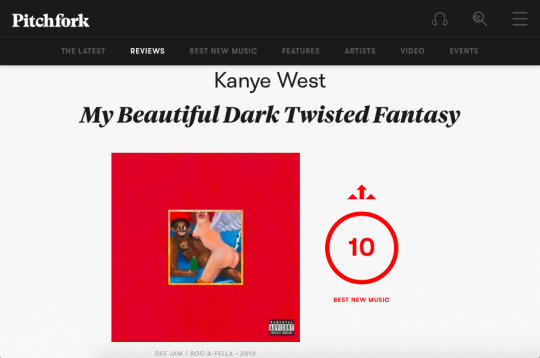
Like it or not, critics play a role in dictating taste within culture. I suppose it’s less like “dictating” and more like influencing, but I think we’ve all been swayed by reviews at one time or another. Whether it was being convinced to stay away from a bad movie, or giving a record a spin based purely on universal acclaim, critics have an undeniable impact on our cultural landscape.
I don’t think that’s necessarily a bad thing. At worst it will make you more hesitant, and at best you might give something a chance that you never would have known about otherwise. I did this with Kanye West in 2010 following the release of My Beautiful Dark Twisted Fantasy, after its perfect Pitchfork score and placement as their best album of 2010. Aside from Eminem, I’d never really listened to any hip-hop in earnest, but this level of praise couldn’t be a coincidence, right? I downloaded the album, gave it a reluctant spin, and came away from it mostly underwhelmed.
As a side note (before I get called out) it’s worth noting that I didn’t have any context for My Beautiful Dark Twisted Fantasy at the time. I had no idea about Kanye’s background, or what the album represented within his career. I also had no real appreciation for the record’s layers upon first listen (circling back to Point #1) but I went on to rediscover and genuinely love it in 2016. The point is I picked up this album solely because of critics.
Continuing the Kanye West anecdotes; I’ve already written about how the internet’s reaction to the release of Yeezus spurred me to give the album a shot. I still didn’t get him. For whatever reason, I gave the album another listen a couple months after its release and suddenly everything clicked. I loved Yeezus and soon found myself venturing back through Kanye’s discography from the beginning. I’d like to think that I came to love Kanye of my own free will, but the reason I gave him a chance in the first place (and the second place) is because of other people. Whether it was a “reputable” journalistic source like Pitchfork, or simply witnessing the unbridled joy of hip-hop heads on an internet message board, I could tell I was missing out on something, and that kept me open.
4) Personal Context, The Language of Genres, and The Passage of Time

After “discovering” Kanye West in 2013, he was the sole hip-hop artist I listened to for some time. I would casually browse forums and keep up on large-scale movements within the genre, but it wasn’t until years later that I would find myself delving deeper into the contemporary rap scene. By the end of 2015, I was listening to everything from leaned-out trap, conceptual double albums, absurdist mixtapes and even Drake. Soon I found myself listening to goofier (then) lesser-known acts like Lil Yachty, Lil Uzi Vert, and Desiigner. I can guarantee you that I never would have latched onto any of those guys if it wasn’t for Kanye breaking down my personal barriers and dismantling my hip-hop-related hangups. It took time for me to go from actively disliking hip-hop to embracing it wholeheartedly, and that’s a journey that can only happen over time.
While your personal journey within individual genres matters, there are also things like general knowledge and maturity at play too. Once I got out of that shitty high school ‘everything that’s popular sucks’ punk mentality I opened myself up to dozens of new artistic directions. I gained a new appreciation for things I’d previously despised, and I began to understand why things like MBDTF were important. It’s a combination of open-mindedness and cultural awareness that comes with age, and one that I hope never slows as I get older.
Maturity is an uncontrollable factor that’s hard to pin down, and impossible to quantify. I’ve experienced “musical maturity” as recently as this year with the Fleet Foxes. They were a member of my generation’s pivotal “indie folk movement” and I consider them one of my gateway groups, but despite their importance, I’d never really considered myself a fan. And it’s not for lack of trying, I own all their albums, gave them multiple chances throughout high school and college, but I had always found them interminably boring. I didn’t see what other people saw in them… until this year. With the multi-month build-up to 2017’s Crack-Up, I found myself giving into the hype and giving their older albums another shot for the first time in years. To my surprise, after a handful of half-passive listens I really liked everything I heard. All three of their previous releases grew on me over the course of several weeks, and I became a fan like that. I can still see why I found them boring in high school, but I think the real reason is a lack of maturity. I now have the patience and appreciation for the kind of careful, measured indie folk they’re making, and that openness has rewarded me with hours of enjoyment.
Circling back to Point #1: it’s often hard to fully grasp an album on first listen, and sometimes a record’s complexity doesn’t allow it to truly grab ahold of you until years down the line. In a way, this is also a point against pop music since so much of it “of the moment” it tends to age worse. It’s a genre that’s by nature the most tapped into pop culture, and as a result, it’s harder to go back and enjoy older songs when A) you’ve heard them thousands of times, and B) there’s more recent stuff that’s more tapped into the current sound. It feels like there’s more of an “expiration” to pop music which means it’s not necessarily as rewarding to venture back to.
5) Streaming, Permanence, and Getting Your Money’s Worth

A semi-recent extra-musical factor at play in this discussion has to do with how we consume music. Up until about a decade ago the process was 1) hear a song 2) go buy the album at the store 3) listen to the album. With the rise of iTunes, YouTube, and more recently, digital streaming platforms the entire process has become flattened. A song can come to mind, and we can pull it up on our phones within 30 seconds. You can hear a song at a bar, Shazam it, and add it to your digital collection within an instant.
As a result of this, albums as a concept have been diminished in both stature and importance. You have people like Chance The Rapper releasing retail mixtapes, Kanye West updating his albums after release, and Drake releasing commercial playlists. But on top of these (somewhat arbitrary) distinctions, there’s a layer of increasingly-pervasive accessibility. You can hear about an artist and have their discography at your fingertips within seconds. You can read about a new release and be streaming it by the time that it takes you to finish this sentence. That freedom has forever changed how we consume music. Comparing this on-demand accessibility with the “old ways” of going to a store and buying a physical record, it’s easy to see how the times have changed.
As a result of this shift, people are less committed to albums. If you don’t like an album you can play another just as quickly. We can jump ship with no loss at all. We’re not connected to the record, so it’s easy to abandon.
Funny enough, with the rise of streaming we’ve seen a near-direct correlation with the rise in the popularity of vinyl as it’s on track to be a billion-dollar industry this year. These are people that want and miss that physical connection with their records. There's an undeniable difference between listening to an album on Spotify and hearing it come out of your vinyl player at home. “Warmth” and all that bullshit aside, this is an example of the format influencing our listening habits. If you’re using Spotify and don’t like an album, you can easily stop streaming and jump to any of the millions of readily-available alternatives.
Most importantly, when streaming, there’s also no reason to “justify” your purchase because we haven’t dropped $20+ on a piece of physical media. If you bought a record and didn’t like you’d damn sure try to listen to it more than a few times because you invested in it, goddammit!
There’s also a pattern of familiarity at play too. Every time you open Spotify you’re given the choice between something new and something that you already like. If you gave an album a shot and didn’t like it, you’re now given a choice between that and something you know you already like. So why would you ever opt for the thing you don’t like?
Reddit user nohoperadio explains this phenomenon and the wealth of choices that we have in the modern music landscape:
“Those pragmatic constraints on our listening habits don't exist, and we have to make conscious decisions about how much time we want to devote to exploring new stuff and how much time we want to devote to digging deeper into stuff we've already heard, but every time you do one of those you have this anxious feeling like maybe you should be doing the other. It's only in this new context that it's possible to worry that you're listening wrong.”
It really is an interesting psychological door that’s opened with our newfound technological access, and analysis paralysis aside, it explains why some songs draw listeners back by the millions. Drake’s “One Dance” is the most streamed Spotify song of all time with 1,330 million plays. It’s a good song, but not that good. It’s an example of a song achieving a balance of accessibility and pervasiveness until it becomes habitual and self-reinforcing. That’s something that only could have happened in the streaming world.
6) Fandom

Up until now, we’ve mostly been talking about this framework within the context of “new” albums, but what about when you already have context? What about a non-accessible release from your favorite artist?
This has happened to me with many albums over the years. I wrote a 7,000-word four-part essay that was mostly just me grappling with my own disappointment of Drake and Travis Scott’s 2016 releases. For the sake of talking about something new: The Wonder Years are one of my all-time favorite bands. I’ve written a loving review of their second album, and I plan on doing the same thing with their third and fourth releases as well. After a trio of impactful, nearly-perfect pop-punk records, the band released their fifth album No Closer to Heaven on September 4th of 2015. While it’s not an “inaccessible” record, it’s easily my least favorite from the band and a far cry from their previous heart-on-sleeve realist pop-punk. It took me months of listening to the album to fully-realize my disappointment, and even longer to figure out why. I’m still not sure I can accurately explain why Heaven doesn’t gel with me, but that’s not what this post is for. The point is I’ve subjected myself to this album dozens of times racking up nearly 700 plays at the time of this writing. In fact, it’s my 19th most-listened-to album of all time according to Last.fm, and that’s for an album that I don’t even enjoy that much!
I was driven to this album partly by my frustration and confusion, but also my love of the band. I’ve enjoyed literally every other piece of music they’ve ever recorded, what made this one so different? I guess 700 plays isn’t something you’d afford even the most promising album, but this is an example of the listener’s history influencing their own behavior and desire to love an album. It’s trying to make an album into a “grower” when it may never be one in the first place. That leads nicely into #7…
7) Instant Gratification, Uncertainty Tolerance, and “Forcing It”

The most common argument I see against the concept of albums as growers is the idea that the listener is “forcing it.” This is problematic mainly because everyone’s definition of “forcing it” is different. Some people have a specific number in mind ‘if you listen to an album three times and don’t like it, then you're forcing yourself’ others base it on feeling ‘if you’re despising every second of an album, then just turn it off. Otherwise, you’re forcing it.’
The idea is you force yourself to like something out of pure habit or by subjecting yourself to it over and over again, eventually becoming hostage to something that you didn’t really like in the first place. To me, this is the meatiest discussion point here because it’s such a multifaceted issue. I’ve already discussed this concept within the context of Drake’s Views, but to briefly recap: I loved his 2015 album If You’re Reading This It’s Too Late, and he had a killer summer with What A Time To Be Alive and a high-profile rap beef. I was beyond hyped for his next release in 2016 but came out of my first listen incredibly disappointed. Over time I grew to like most of the songs, presumably from sheer repetition, but I still recognize it as an album that isn’t good on an objective artistic level. So is this forcing it? I never hated any of those listens, I just grew to like the album more after time had passed, but I still don’t think it’s good.
I’ve done the same thing this year with Father John Misty’s Pure Comedy. After an impeccable 2015 release and a meta months-long interview-laden lead-up to the record’s release in April I, again, emerged from my first listen disappointed. I have come to enjoy the album more over time, especially after giving myself a break from it and seeing some of the songs performed live. So maybe these two cases just have to do with unrealistic built-up expectations and already being a fan (Point #6) but no matter how you look at it, I wanted to like these albums and kept subjecting myself to them.
At any rate, the biggest flaw with this argument is that everyone’s definition of “forcing it” is different. Unless someone’s making you listen at gunpoint, there is no force. You can stop at any time and you shouldn’t feel pressure to like something just because. But I fully recognize someone could see my listening history with Drake’s Views and say “my god, why would you listen to an album you’re lukewarm on that many times? That’s torture!” but I guess what’s torture for some is simply passive listening for another.

For a more scientific perspective, this youtube video details some of the crazy behind-the-scenes factors at play in making pop music particularly pervasive. Everything from the radio to Urban Outfitters to fucking memes spread music and have the ability to make something exponentially more popular. This circles back to “forcing it” because you may have no power in these cases. God knows after years of the same retail job I grew to hate some songs that were otherwise great just from sheer repetition. It would make sense that this then becomes “forcing it” since you have no power, but sometimes even that can circle back to genuine love if you build enough positive associations over time. I may not like “Hotline Bling” as a song, but god knows I’ve upvoted enough memes featuring the turtleneck-clad Drake that I enjoy something about it.
Furthering the pseudo-scientifical discussion of articles I that don’t have the intelligence to write of research: this blog (which cites this study) discusses “addiction economy” and explores the profiles of “explorers” and “exploiters.” The primary difference between the two groups is their propensity for either delayed or instant gratification. The study explores the idea that technology has accelerated this process which (in a music context) circles back to Point #5 of streaming’s role in our listening habits. Why bother trying to listen to something “difficult” or “weird” when you can have the instant hit of euphoria that comes with a bouncy non-offensive Taylor Swift song?
I really think this one comes down to what you’re in the mood for. If you have the attention, time, and necessary background, why not explore something rich that you may love? But if you just want something quick and easy, just put on the Spotify Top 50 for some background noise. It becomes the musical equivalent of a hearty homecooked meal versus a big, greasy fast food burger. One may be objectively “better,” but it’s not always right for the situation.
8) Expectations and The Initial Approach
Another factor that exists outside of the music itself is the listener’s initial approach. If you go into any art with a preconceived notion you’ll either be surprised by the outcome or have your beliefs confirmed. If you go to a shitty movie expecting it to be shitty, you’ll emerge thinking “well duh.” The inverse of this could also be true (a shitty movie turning out good, etc.), but the real discussion here has to do with the viewer’s initial expectation.
I do think with music it’s rare that you’ll do a complete 180 in either direction. The most likely case of a “grower” is generally a record that you go into not knowing anything about and then some unknown factor (Point #2) keeps bringing you back. It’s also true that you could dislike and album and over time come out liking it (as I did with Views). And while it’s a rare occurrence, I suppose an album could also be a “shrinker” that you love on first listen, but grow to dislike more and more.
Circling back to genres, I think pop music tends to be a shrinker more often than not. It’s something that’s (by nature) immediately accessible but slowly drives you mad with each repeated listen like a screw tightening into your skull. We’ve all been there (especially anyone with a retail job) but I can’t think of a single occurrence where I’ve done that to myself of my own free will. Oppositely, I know people that only interact with music by listening to songs until they’re absolutely sick of them. That’s not how I prefer to interact with art mainly because I feel like there’s only so much time in the day and so many other things to listen to, why force that upon yourself?
I think that the listener’s starting point is a huge concept. Reddit user InSearchOfGoodPun outlines his thoughts on the initial approach and the impact of time on your listening experience:
“My personal opinion is that if you listen to almost anything enough times with a receptive attitude, you will start to appreciate it. It might not become one of your favorites, but you'll like it for what it is. In any case, at the end of the day, you like what you like.”
The key phrase here is receptive attitude. If you aren’t listening with a receptive attitude, then you’re forcing yourself. Then you’re just making it unenjoyable no matter what. I think this is one of the biggest points in this whole write-up and a key indicator of who you are as a consumer of art. It’s all about being receptive regardless of your starting point.
9) The Language of Genres

Jumping back to Kanye: it was a long and winding road filled with lots of resistance, but despite my own hangups, I now consider myself a hip-hop head. I listen to the genre constantly, I’m up on the “newcomers” and I find myself devoting an absurd amount of time to researching the realm’s happenings each day. I wouldn’t have cared that much without Kanye, and I wouldn’t have discovered half of the shit that I currently love without Yeezus breaking those barriers down.
I’ve spent this entire time talking about albums as “growers,” but it’s also possible that this concept could be applied to entire genres too. I mean, after all, a genre really is like a language you have to learn, and I was fortunate enough to have Kanye as my teacher. Through his discography, I learned about the genre’s history, who its major players are, as well as the language, cadence, and frameworks that it uses. In another sense, it’s almost like “building up your tolerance” to something you previously didn’t understand or couldn’t grasp.
I’ve detailed my own history wading into genres like hip-hop and indie, but it makes sense that this personal context would impact how we would interact with albums through the broader umbrella of their genre. I wouldn’t have understood hip-hop if I jumped straight to Migos. Everyone has a starting point for their musical taste, and it spreads outward from there. Pop music is an easily-accessible taste, but most other genres take a little bit more of an adjustment to get used to. Certain albums or genres are just objectively less-accessible, and harder to get into as a result.
In fact, it could easily be argued that exploring a genre could be the biggest decider on whether an album is a “grower” or not. Contextualizing a record within a larger space can help the listener and understanding it better and appreciate it more. Listening to one album multiple times might be the exact opposite of the correct approach, because while the listener may not like it, they may find something musically adjacent that’s more up their alley.
10) Songs Versus Albums

For the sake of furthering the discussion outside of albums, it’s also worth zooming down to a micro level to look at individual songs. While I tend to listen (and think of things) in terms of albums, it’s undeniable that songs are the main component at play. In fact, a single song is probably the reason for you checking an album out in the first place. Thinking “hey I like this one thing, maybe I should check out the rest” is how I’ve discovered most of the music in my library.
But this same framework of “growers” can easily be applied to songs too. When listening to an album the first time, occasionally only individual songs will jump out at you right away. I love Lost in the Dream by The War on Drugs, but for the first dozen or so times I played the album, the only song I could remember was the opener “Under the Pressure.” That song had a memorable chorus, a catchy riff, and a driving rhythm. It alone is the sole reason I kept coming back to the record, but each time I put “Under the Pressure” on I’d find myself thinking ‘ah, I’ll just let the rest of the album play.’ Eventually, the rest of the record revealed itself to me and individual songs emerged from what was once an amorphous blob of sun-drenched heartland rock.
I did the exact same thing with Young Thug’s breakthrough 2015 album Barter 6. I’d already had a passing interest in Thug thanks to his previous collaborative efforts with Rich Homie Quan, so I gave Barter a semi-attentive spin and left underwhelmed. After a glowing Pitchfork review (Point #3) I gave the album another shot but couldn’t find myself getting past the first track. In a good way. I kept relistening to the album opener “Constantly Hating” and every time I tried to move onto something else, this transfixing opener drew me back in. Soon Barter 6’s second track grabbed me just as hard. Then the third. Then a single. Then a late album track. Eventually, I was listening to the whole thing front-to-back and enjoying every song. Individual songs are a viable path to an album becoming a grower, and while I don’t like digesting albums piecemeal, sometimes that approach can allow an album to creep up on you over time.
Final Thoughts
At the end of the day, there’s a difference between feeling lukewarm on an album then giving it a few more chances and hating an album but feeling like you’re obligated to listen because you “should” like it. Usually, there’s some redeeming quality that brings you back, God knows there’s plenty of albums I’ve heard once then forgotten forever.
Patience is key, and that receptivity can lead to an album becoming better over time. With pop music, I feel like there’s an individual tipping point that everyone hits where you go from fully-embracing a song to actively combatting it. We don’t all have the time or patience to devote ourselves to “difficult” albums, so sometimes the road less traveled is less appealing.
After writing all of this, I’ve come to the conclusion that my initial theory is a flawed. Like many things, it’s not universal. There’s no one “right” answer or perfect framework that applies to all of music. This theory still works on a case-by-case basis, but there’s nuance to every genre, artist, and song, and this broadness makes it hard to view music through such a broad lens.
If anything, a big takeaway is that there’s no one “better” genre, just different fits for different people. With all these possible elements at play, it’s easier to see how someone could gravitate towards one easier genre meanwhile a different person has cut their teeth in a different genre and has a more developed understanding of its intricacies.
And whether you look at it as “a grower” that gets better over time or a “shrinker” that driver you more insane with each listen, there is a point at which you are “forcing it” but (again) that varies from person to person. The only absolute is that there are no absolutes.
The truly compelling part of music is the way that you interact with it. What you bring to the experience and how you interpret the artist’s work. Whether it’s going track-by-track or listening front-to-back, or listening to one single song until you’re sick of it. Music is special because of what we project onto it. The memories we make around it.
It’s obviously incorrect to view all pop music as shallow, just as it’s incorrect to view all rock as deep, or all rap as thuggish. Everything is on a spectrum, and your perspective within the genre, the artist, your life, and the world all come into play when listening.
I don’t think there’s any defined “conclusion” to arrive at, just many different elements to keep track of. These frameworks can help explain why I like A while you like B. The absolute most important thing to take away from this is to keep an open and receptive mind.
I’ve recently come to the realization that my dream job, the one thing I really want to do, is to share things that I love with other people. To spread art, joy, and love in hopes that someone else is affected by these things the same way that I am.
That requires an objective mind, but you still won’t ever like everything. And that’s okay. You shouldn’t have to.
I think sharing things and spreading love is productive for the world.
It’s the most positive impact we can make on the world around us.
It’s spreading beauty.
Both being able to see why someone likes something and being able to share your own experience. It’s the one universal. The human experience. We all have unique perspectives, thoughts, and lives. Sometimes sharing is the only thing we can do.
Art is a bonding agent.
What we add to it is the special part.
Remain open.
Share your love.
Additional Reading and Citations
As the Roots Undo by Circle Takes the Square Doing Good in the Addiction Economy Internet Explorers (Not Exploiters) Is Pop Music Holding You Hostage? The Mozart-like Complexity of Carly Rae Jepsen’s Biggest Hits Reddit Indieheads Discussion Thread A Scar No One Else Can See The Secret Science of Pop Taster’s Choice: Let’s Talk About Love
#talkradar#podcast#music theory#pop#pop music#radio#indie#alternative#tunes#grower#swans#the seer#pet sounds#beach boys#carly rae jepsen#call me maybe#katy perry#california#hamilton#sufjan stevens#michigan#kanye west#my beautiful dark twisted fantasy#yeezus#rap#hip-hop#hiphop#future#vince staples#drake
2 notes
·
View notes